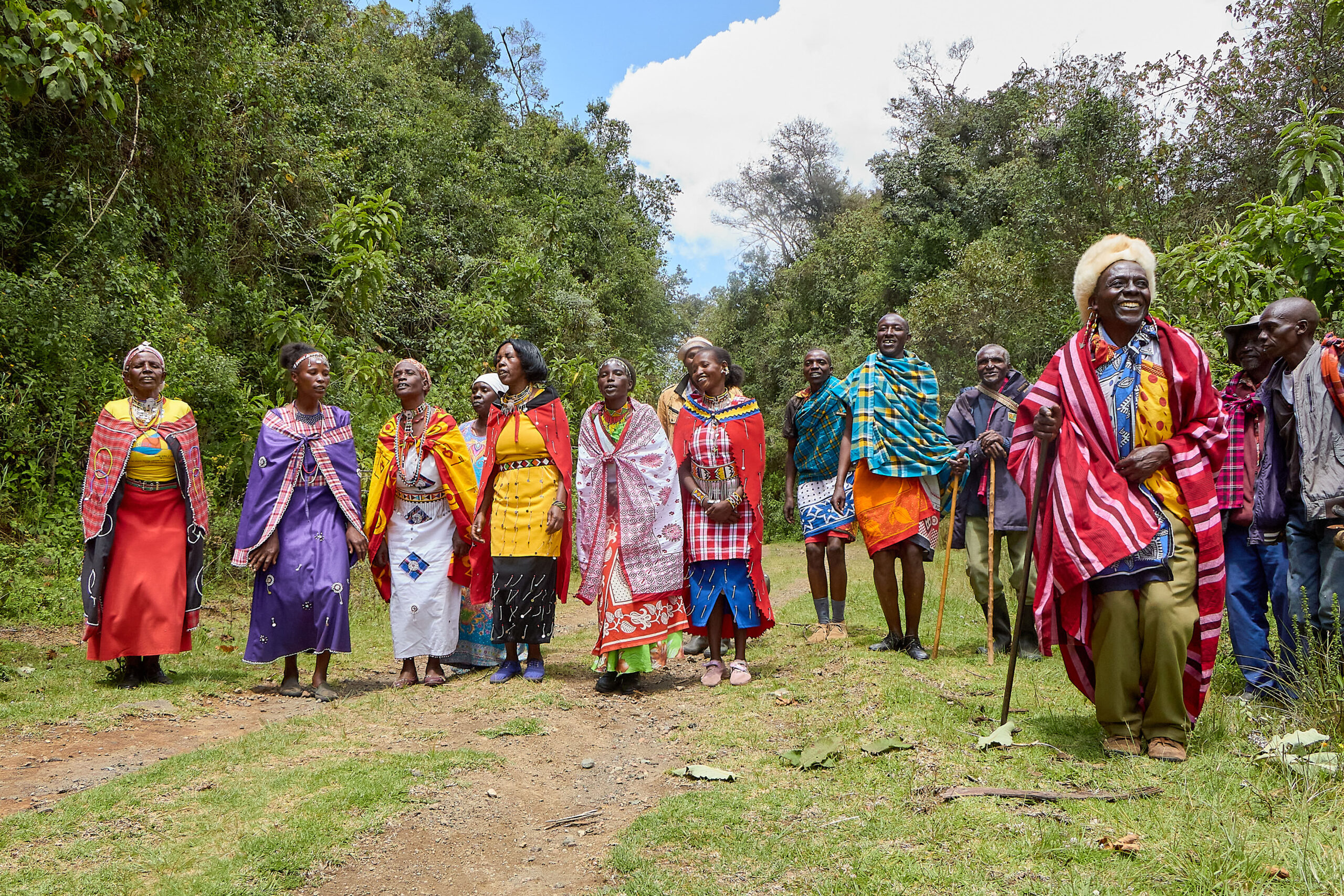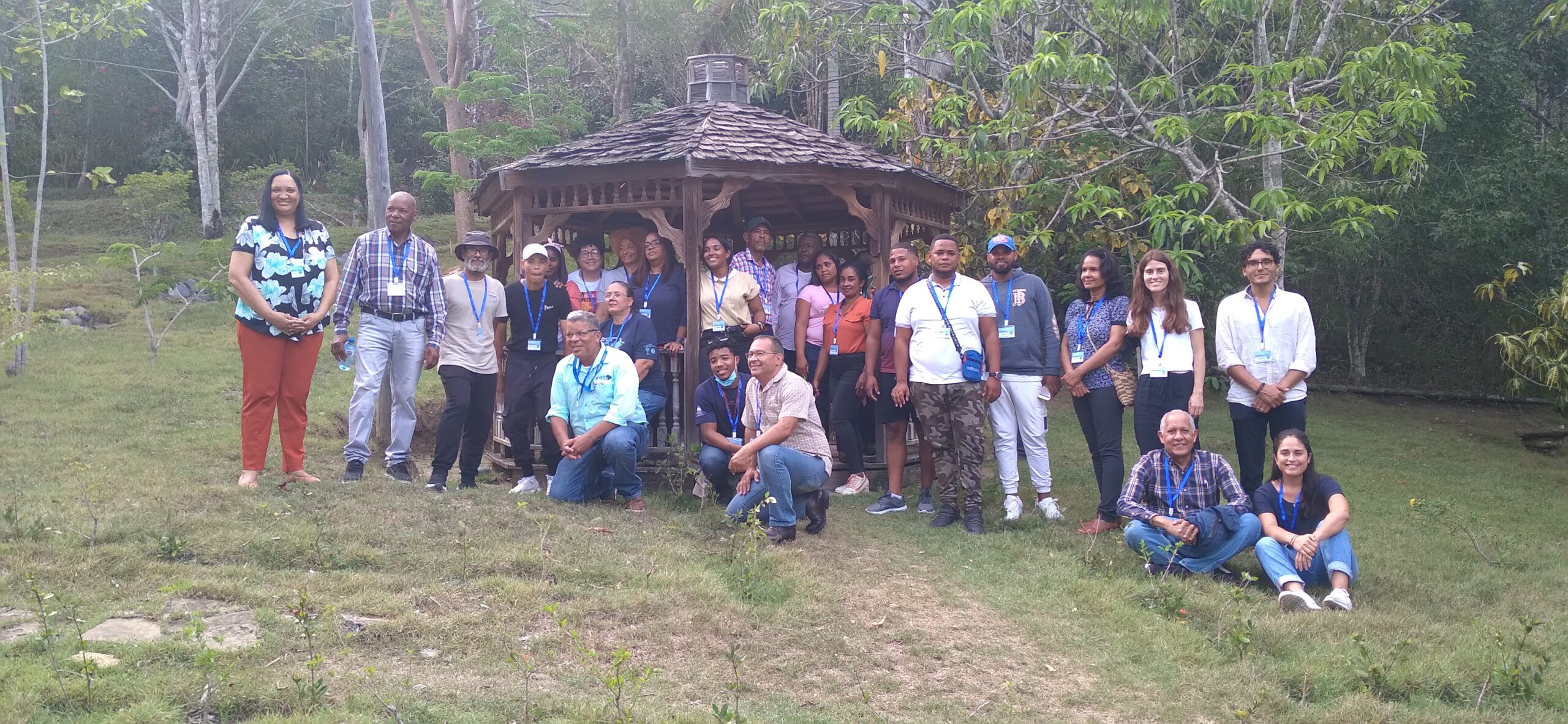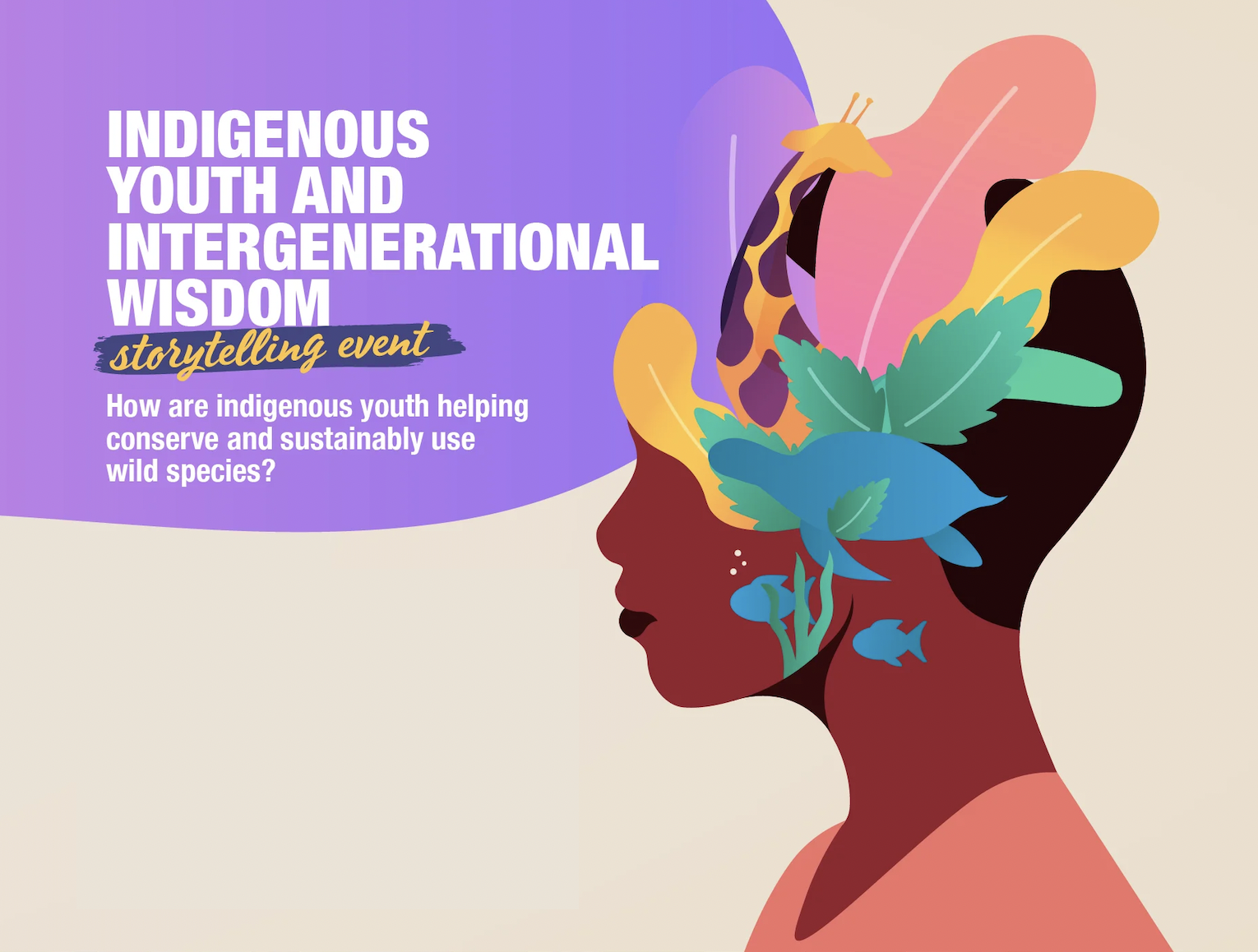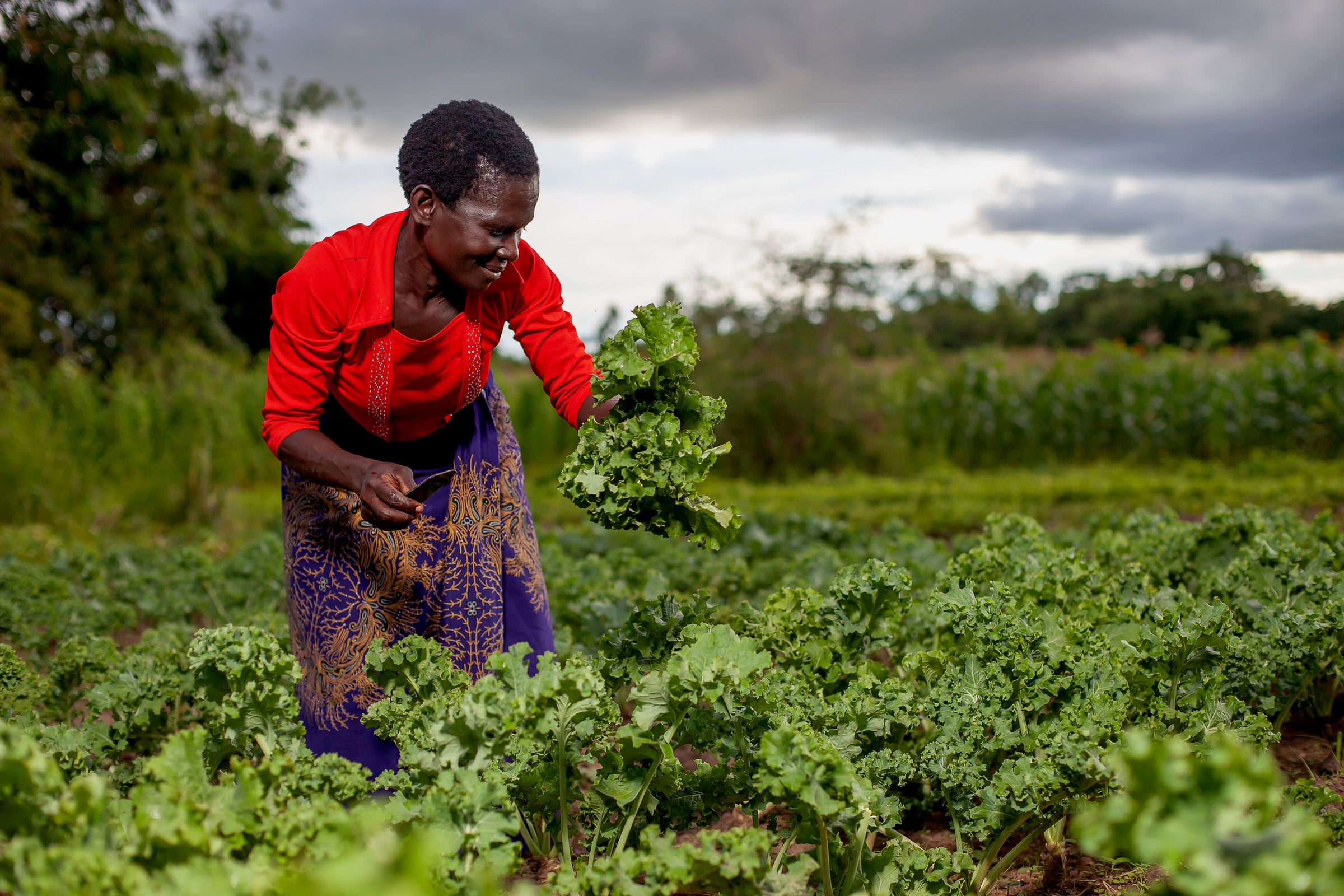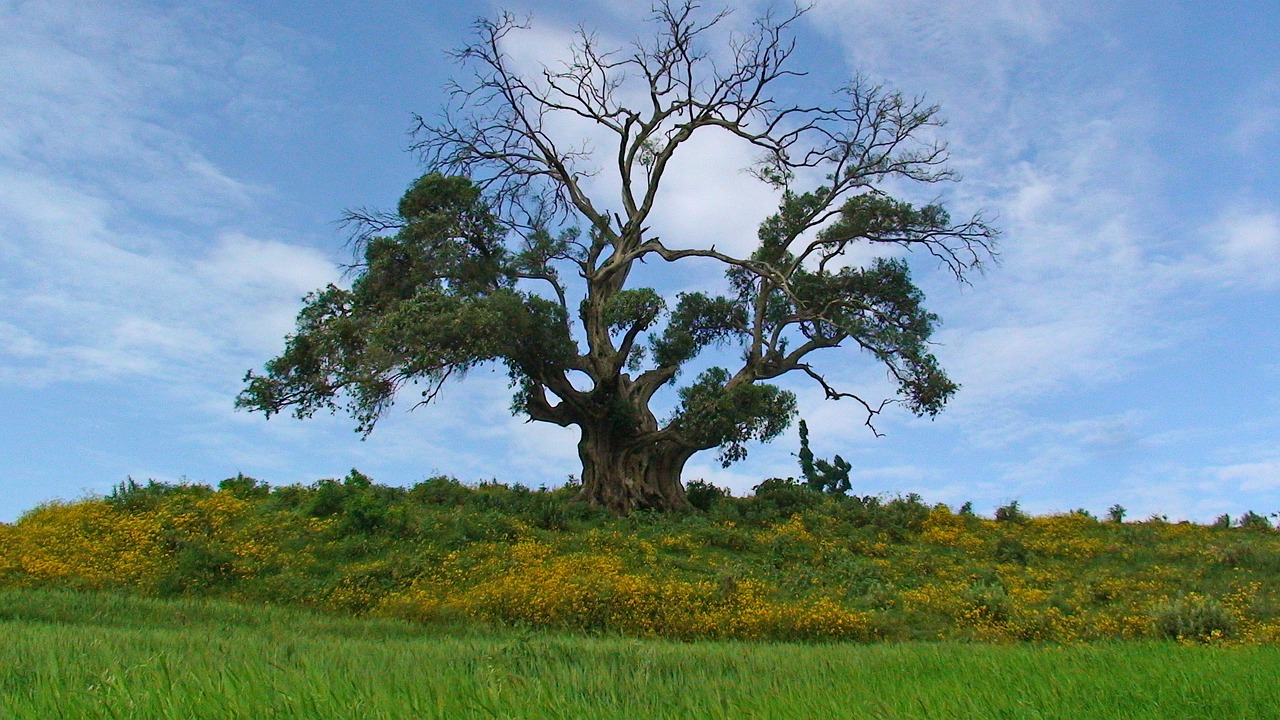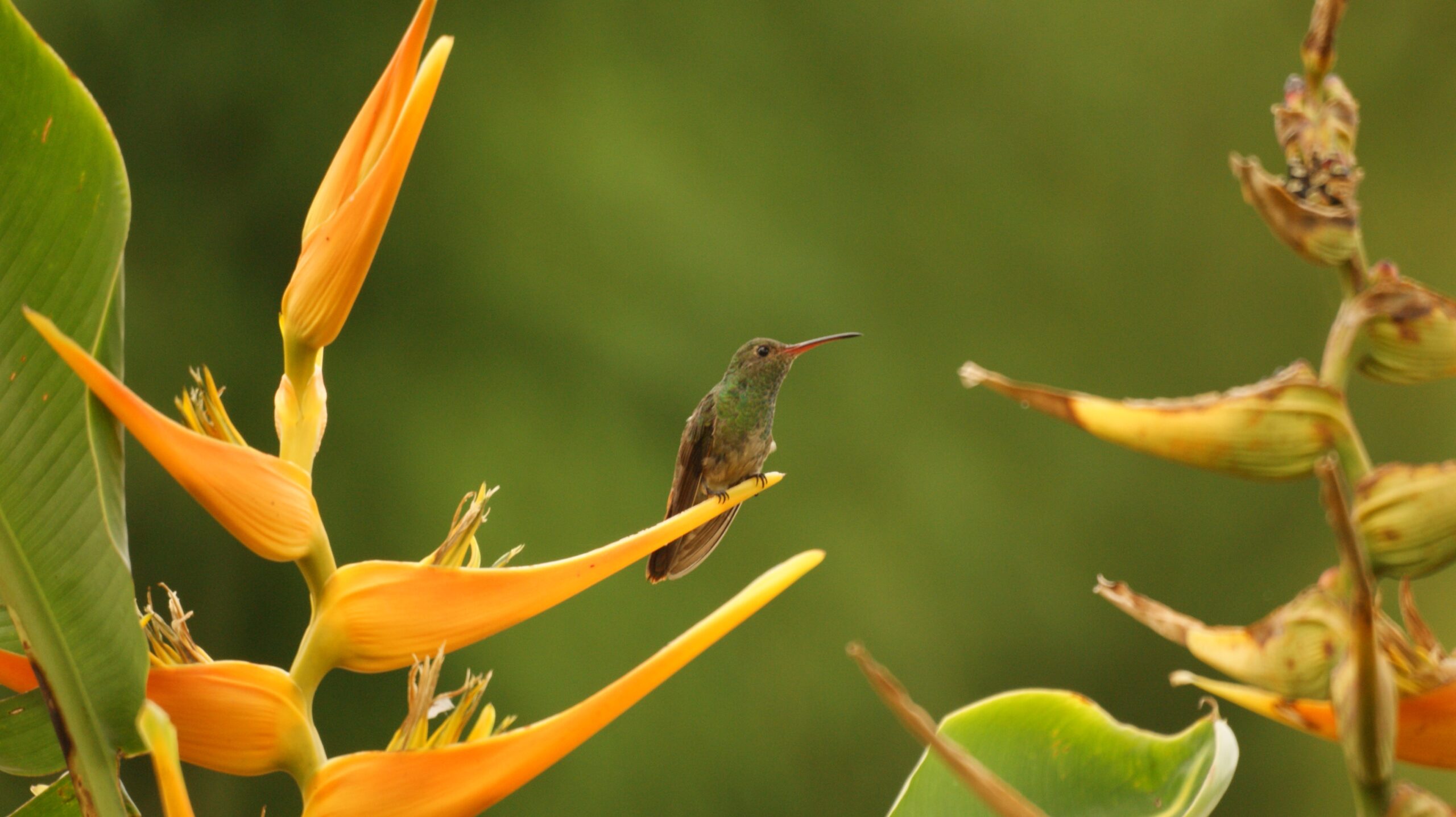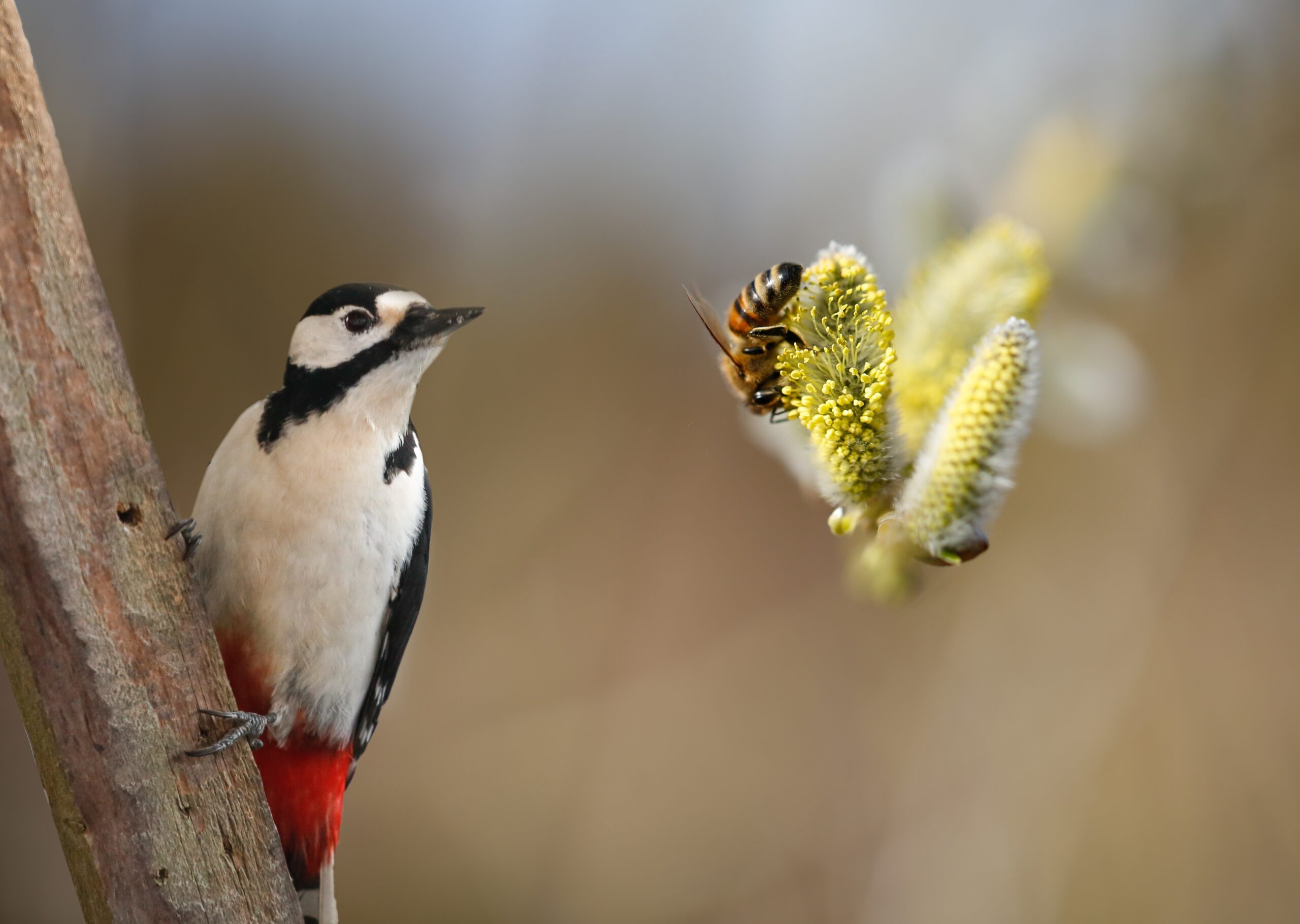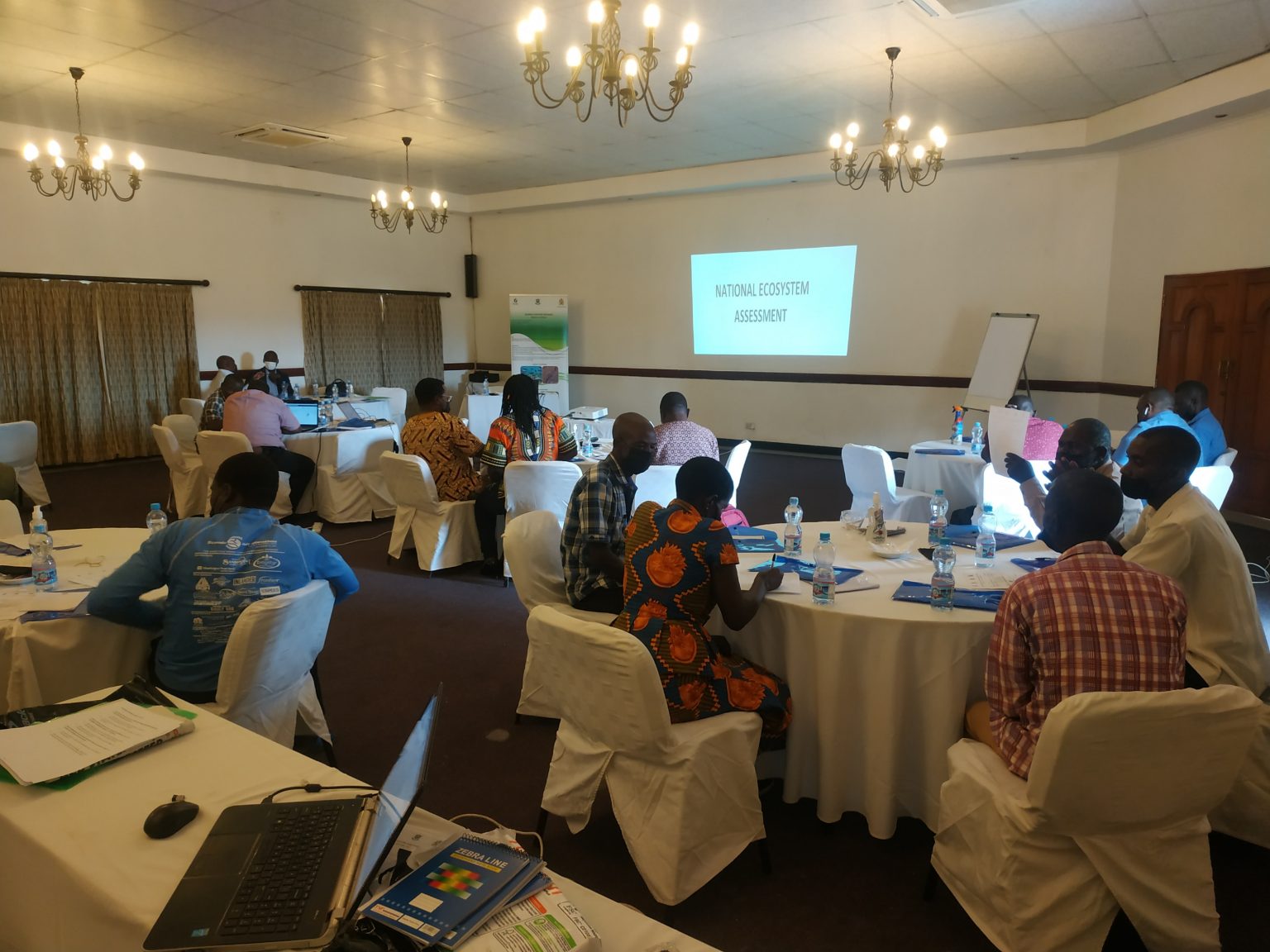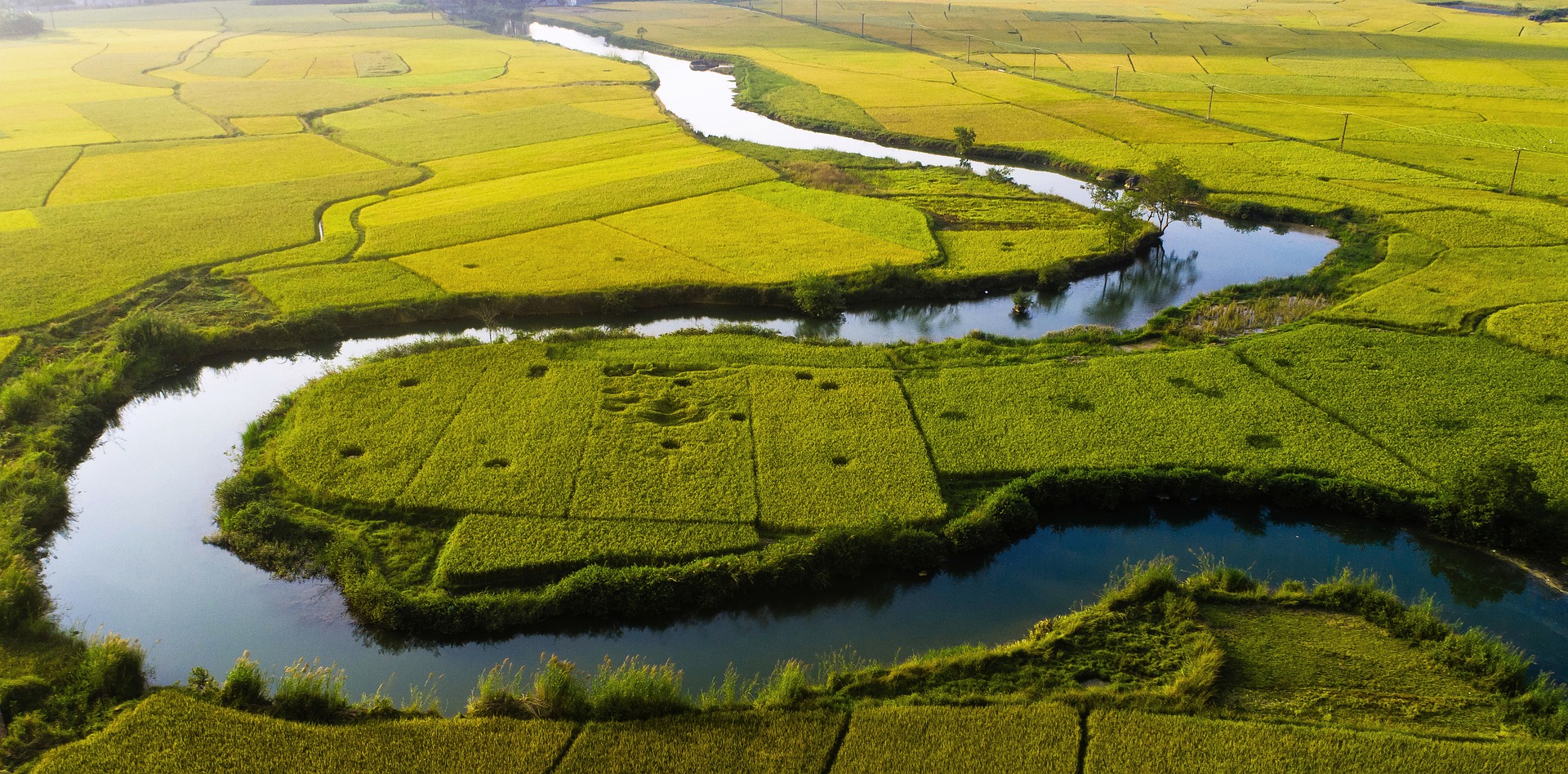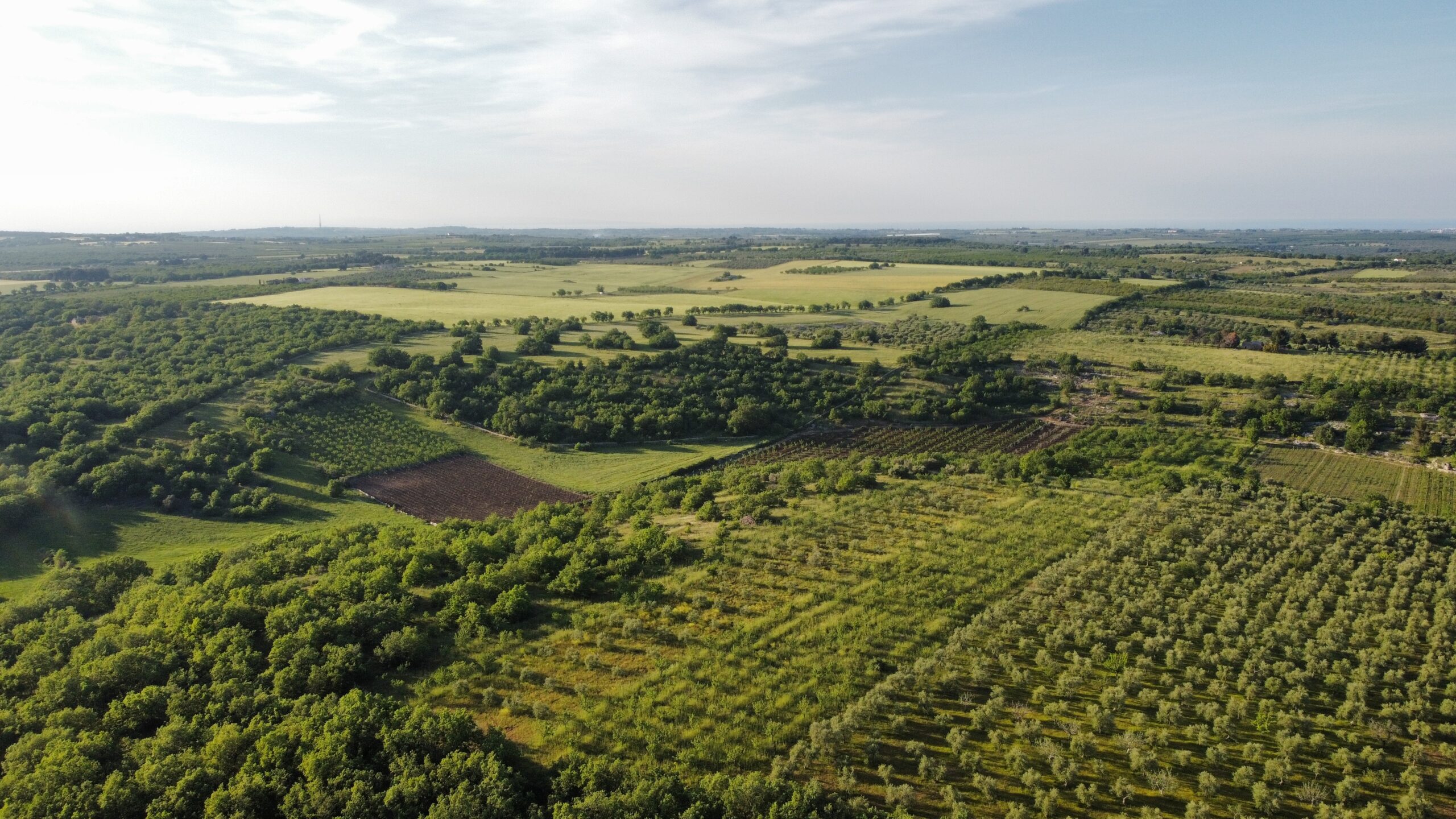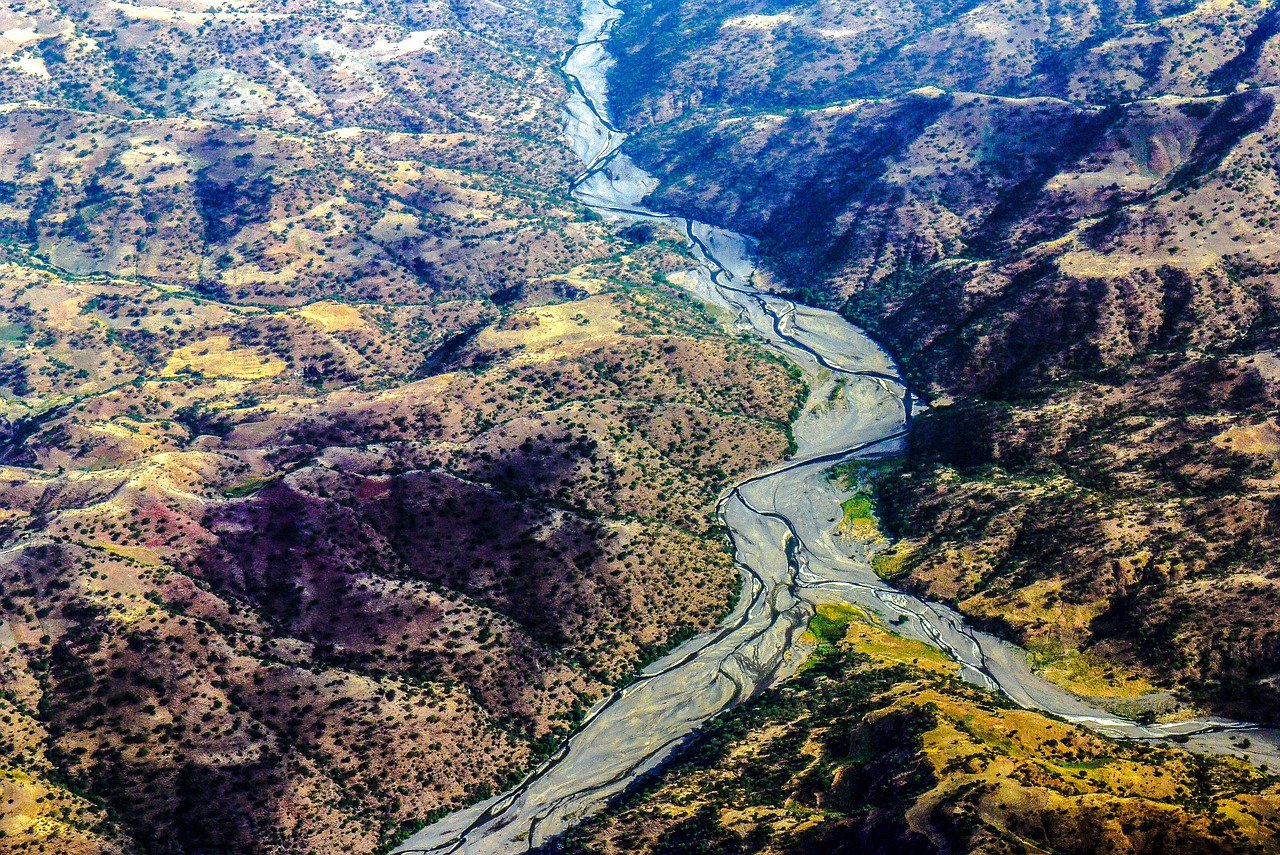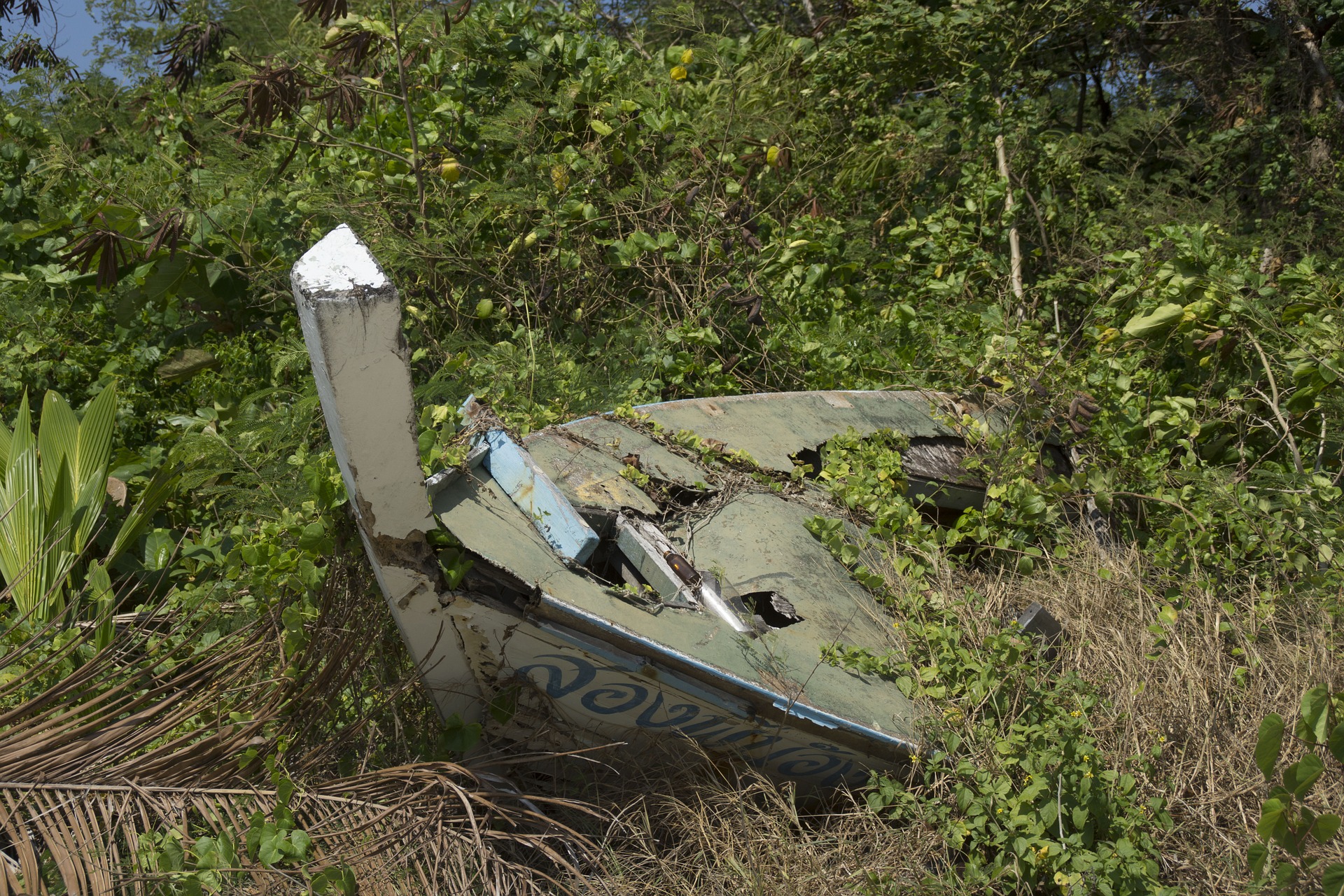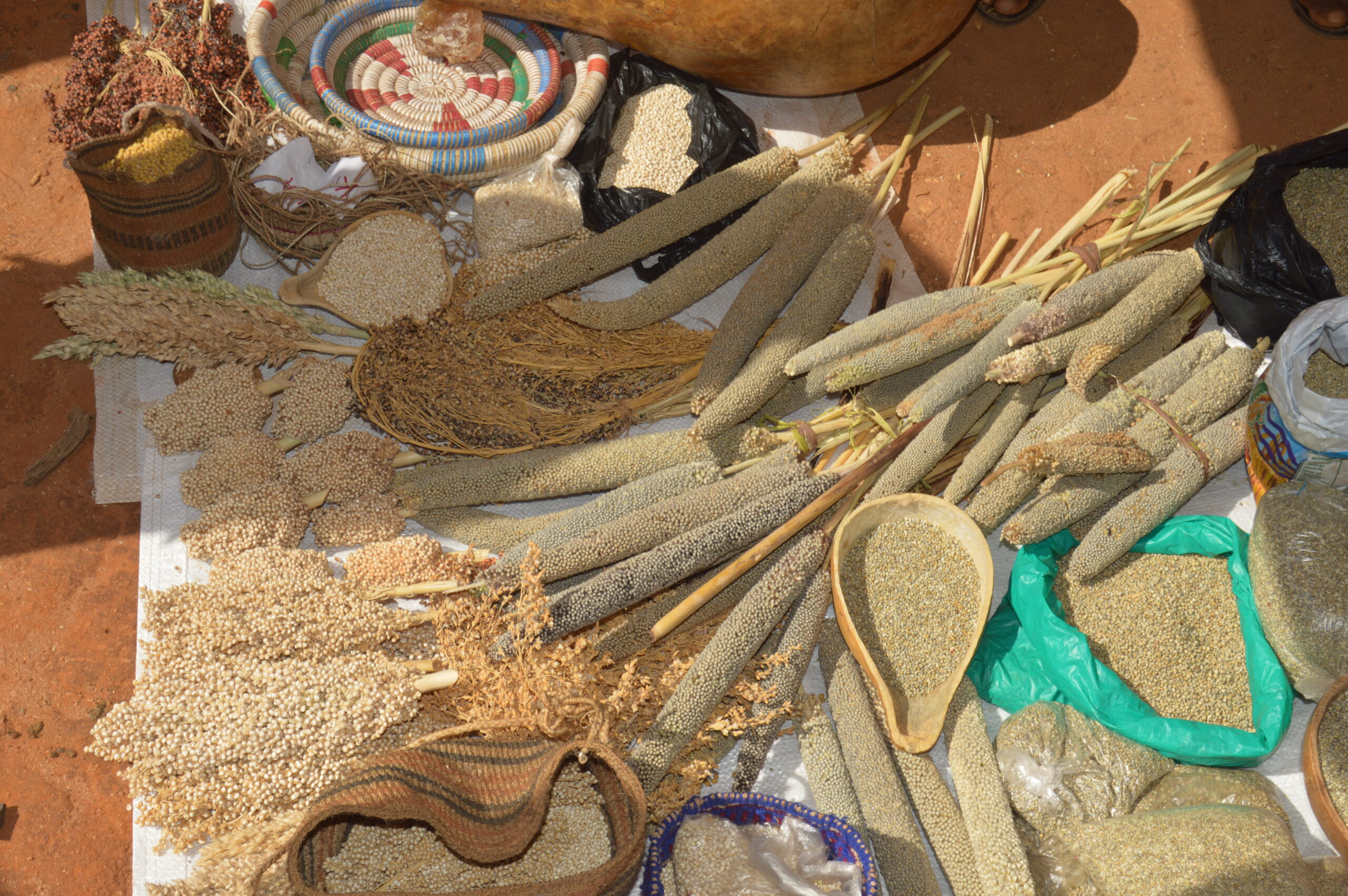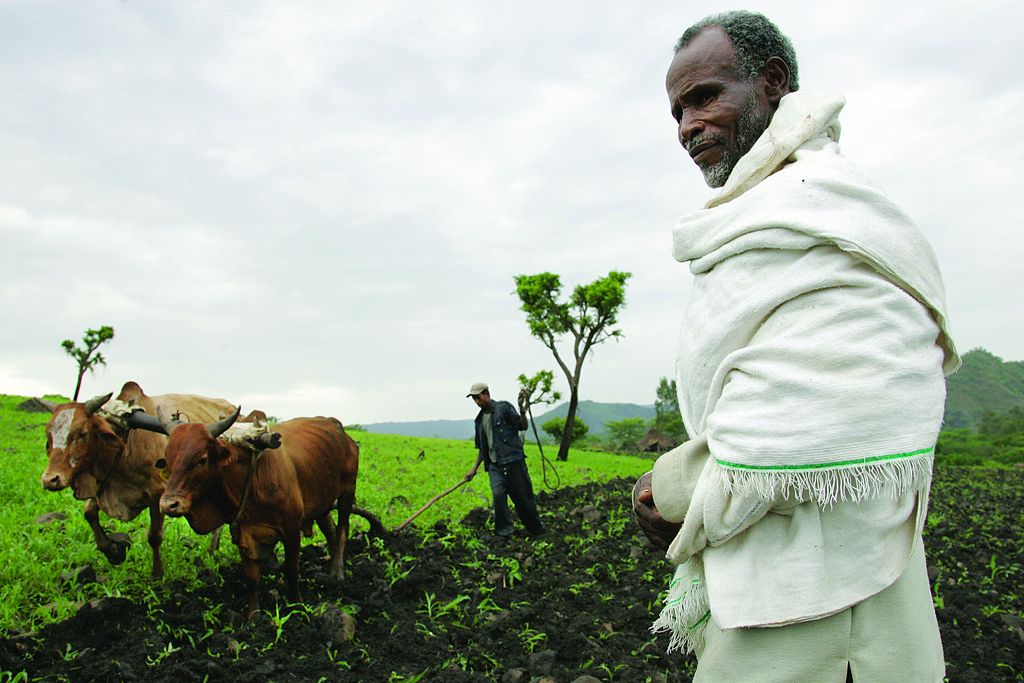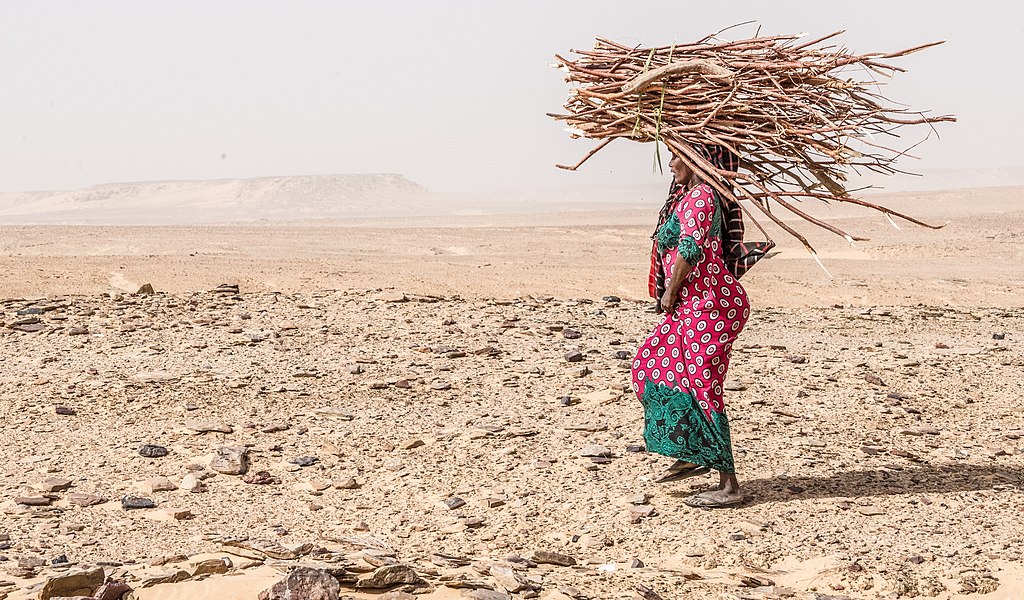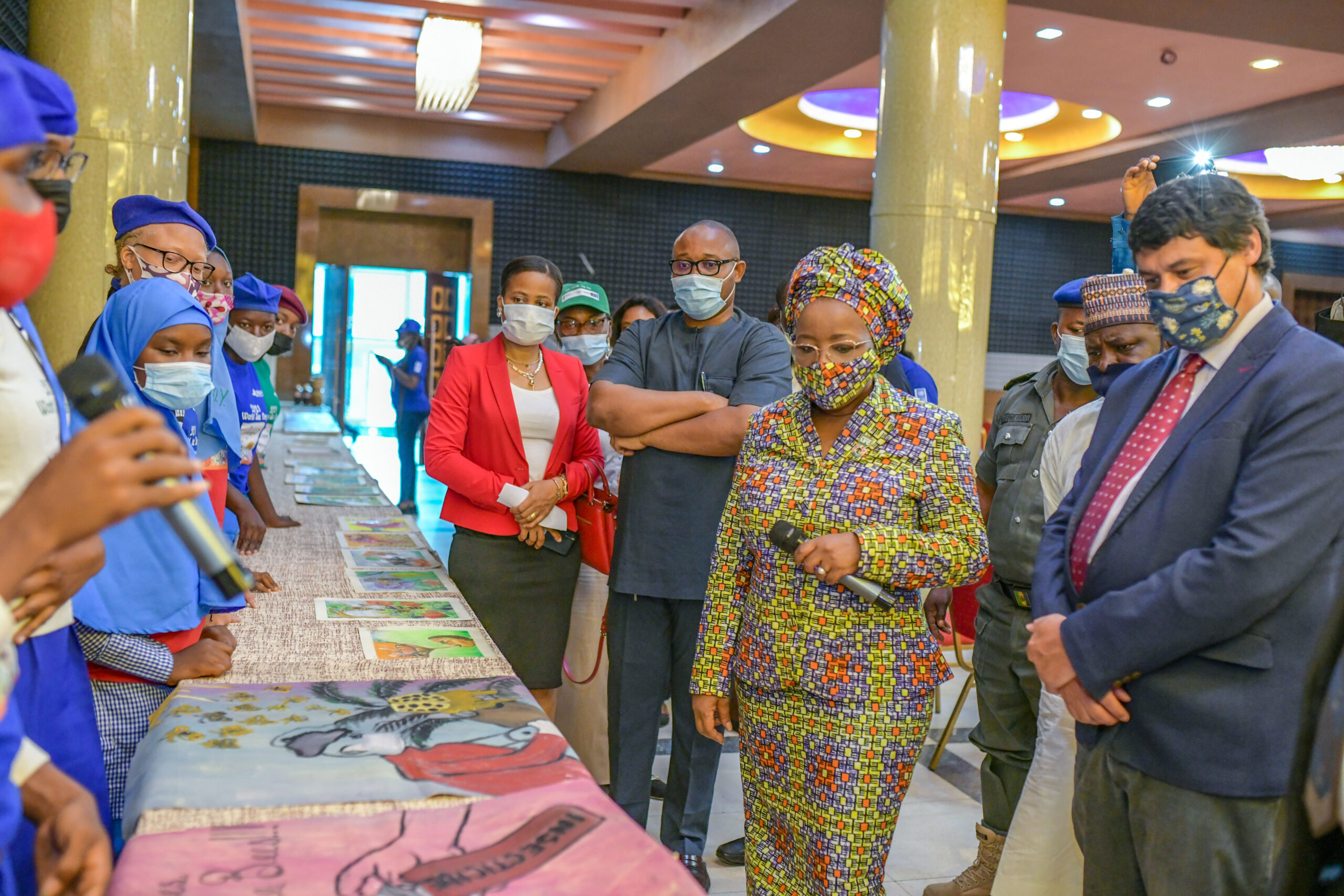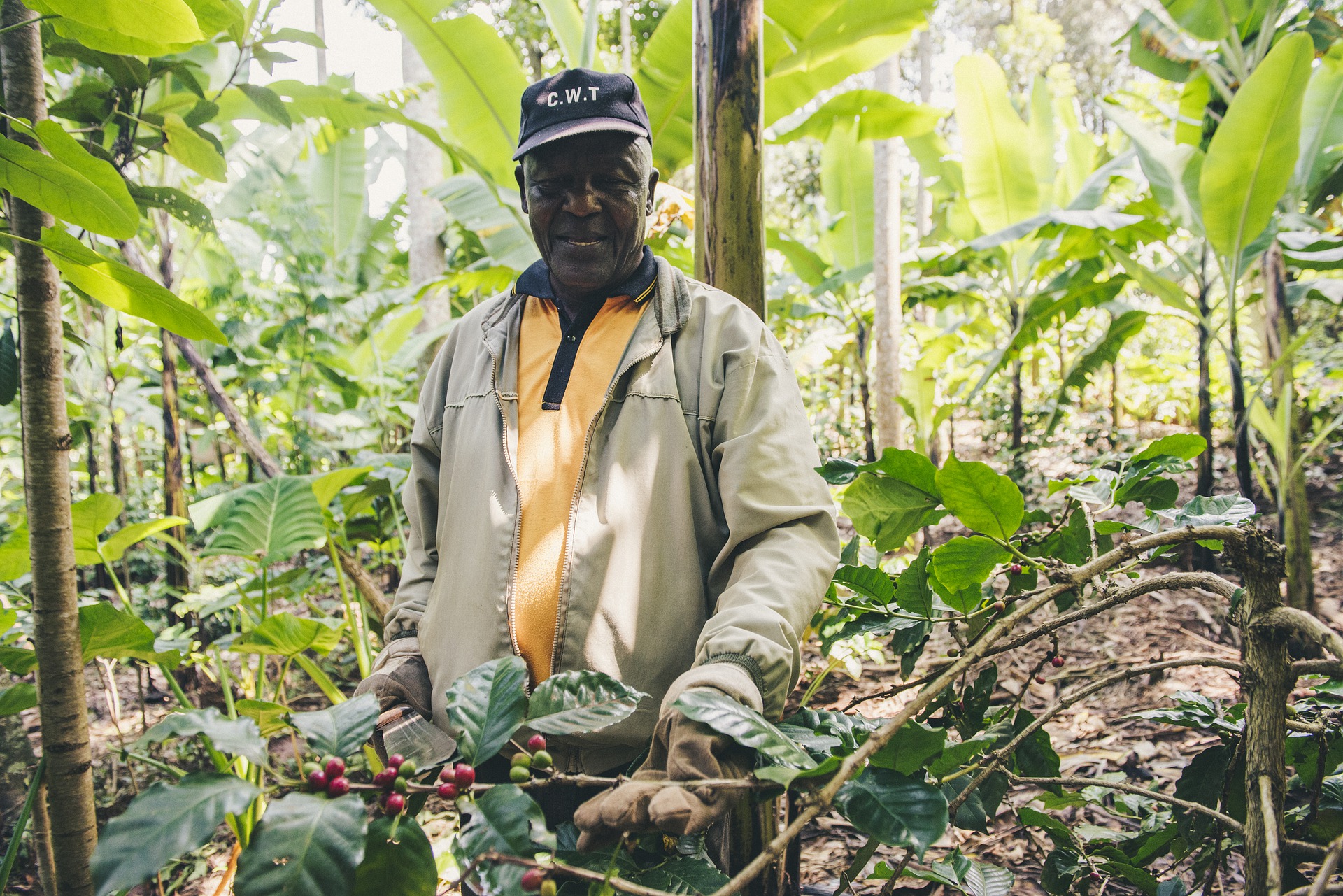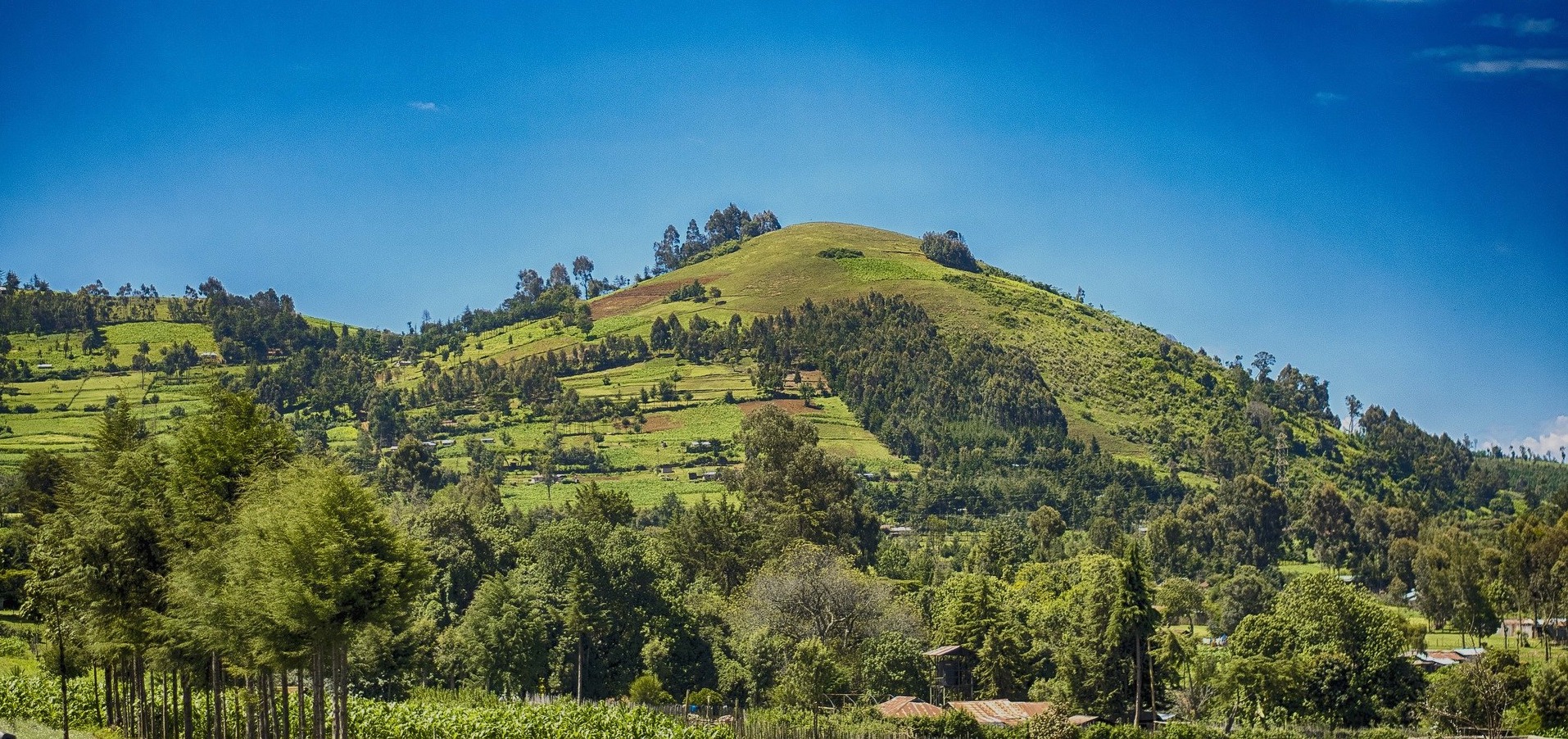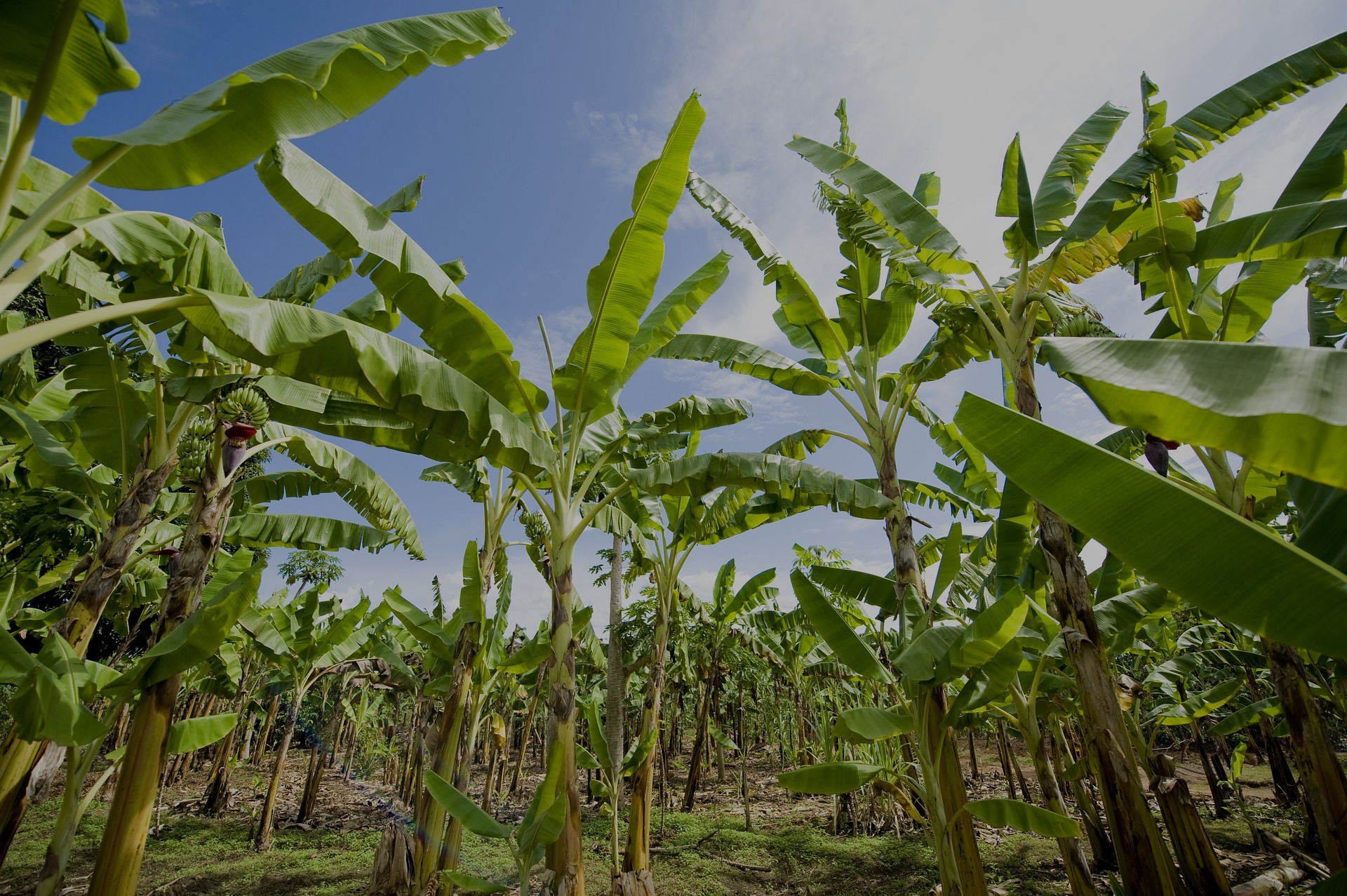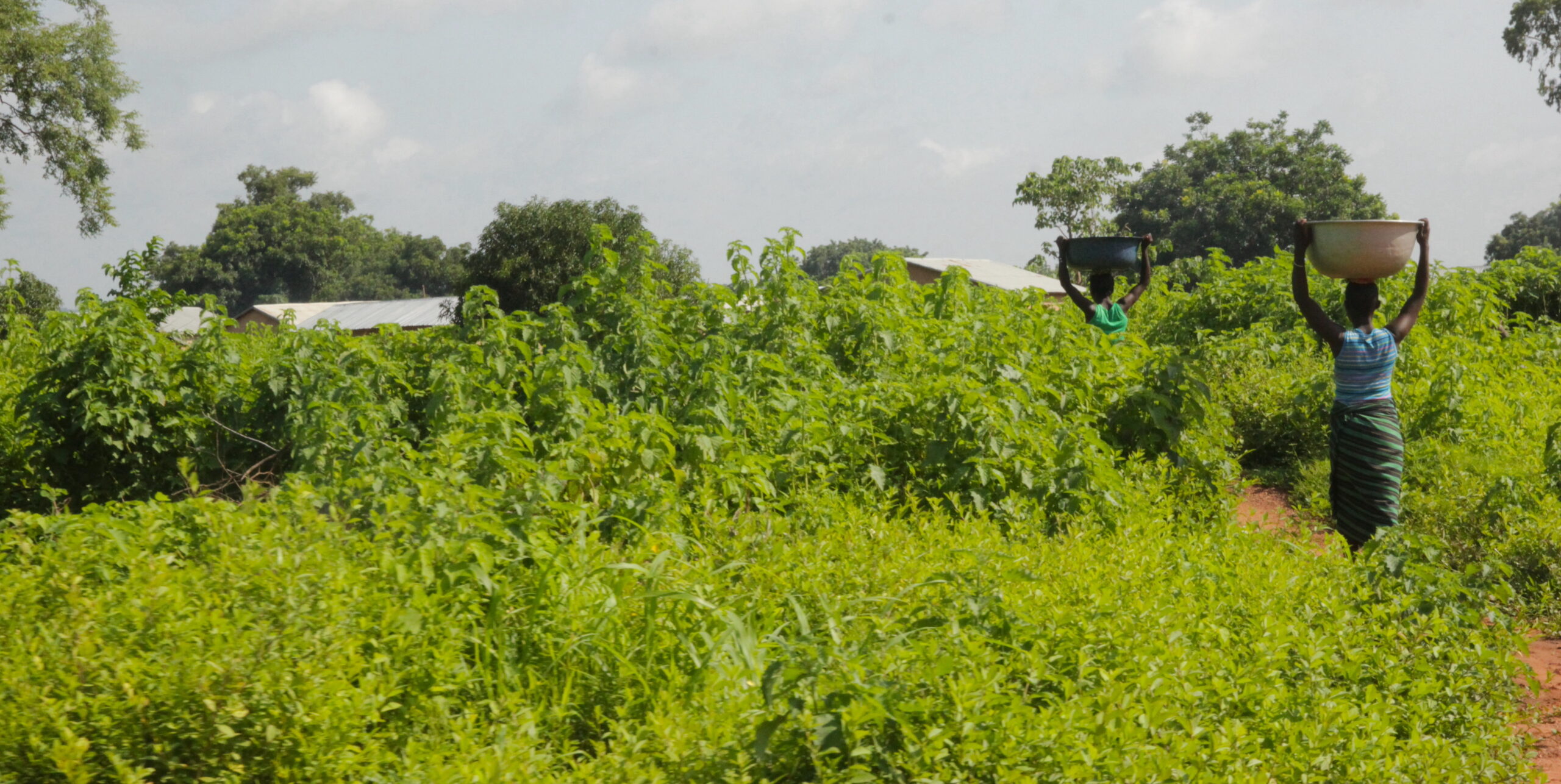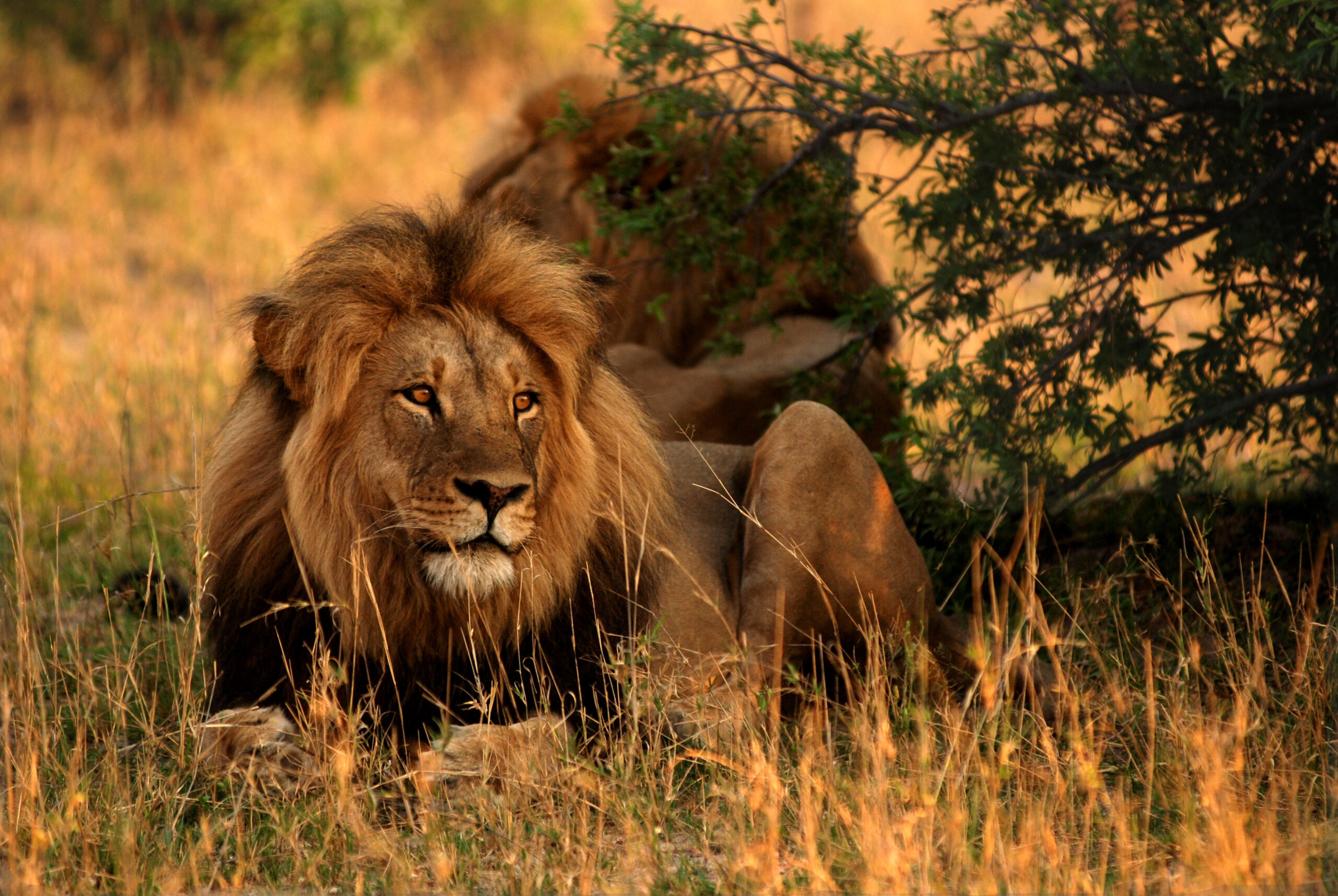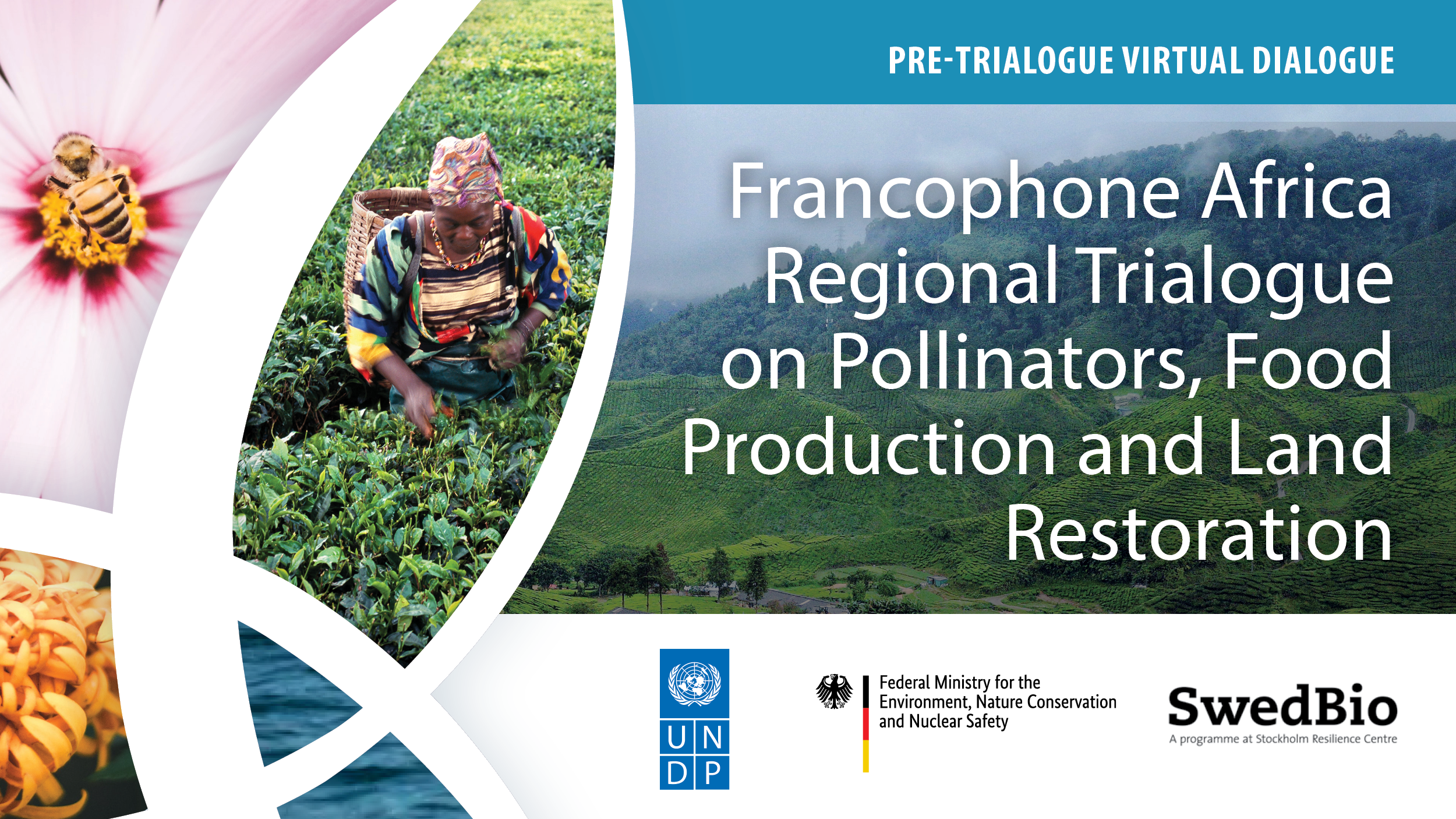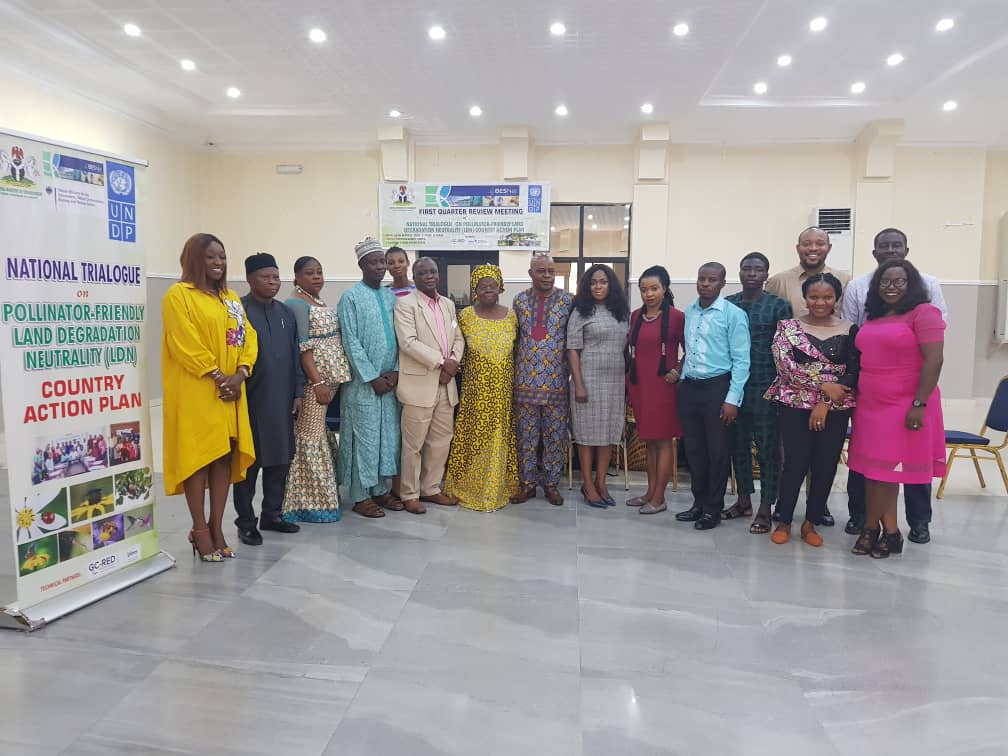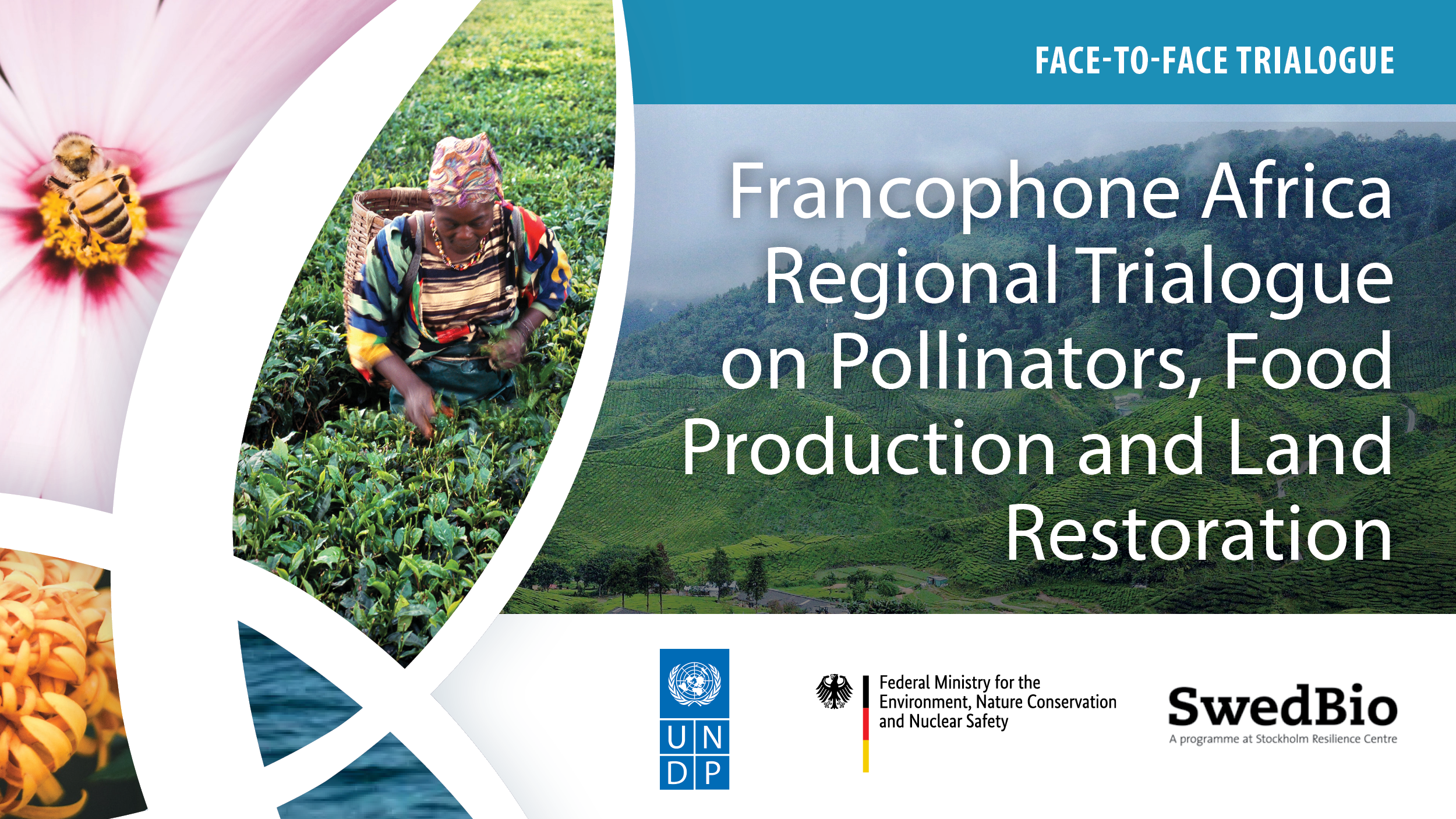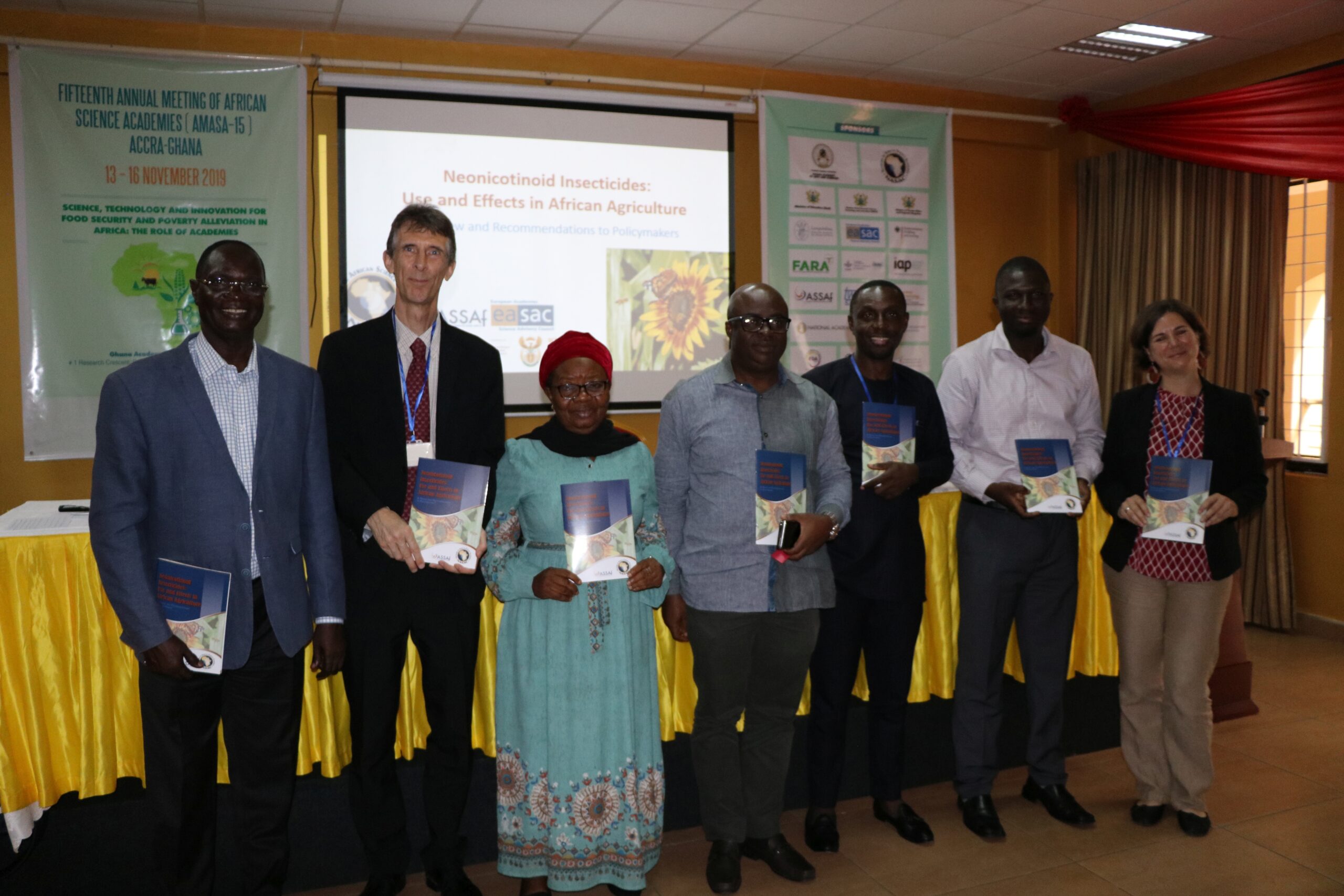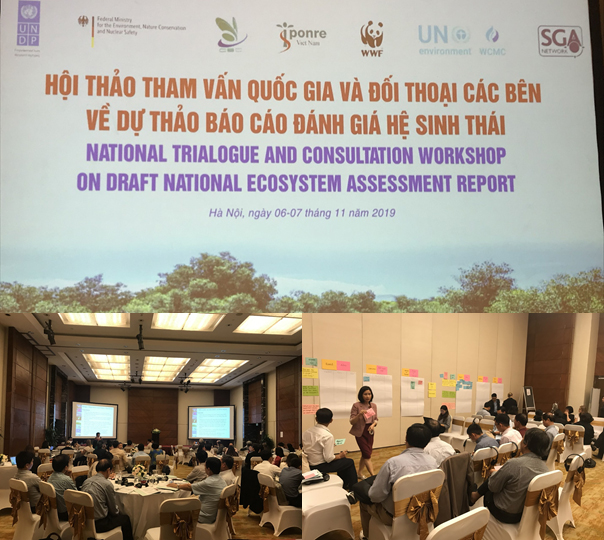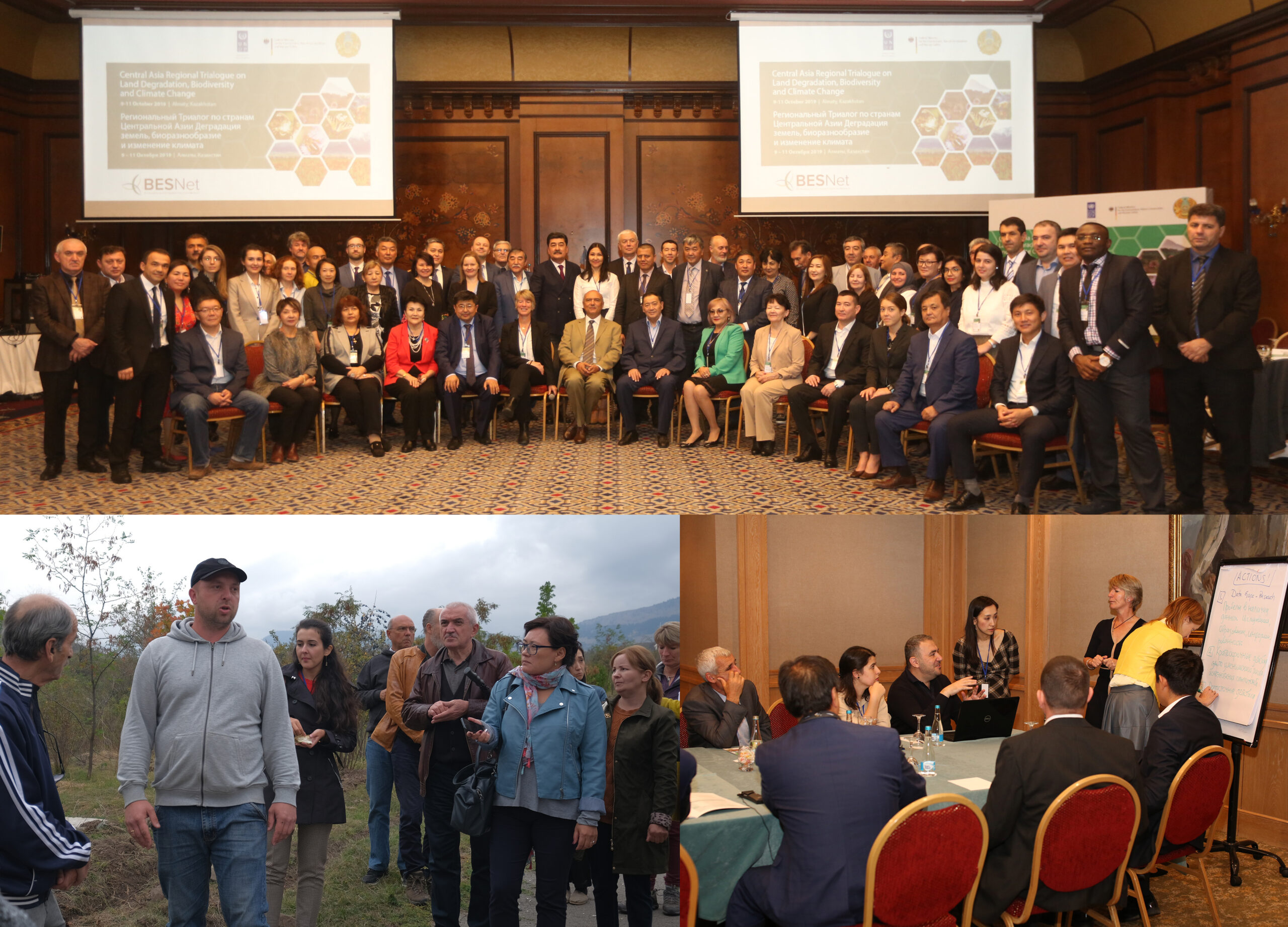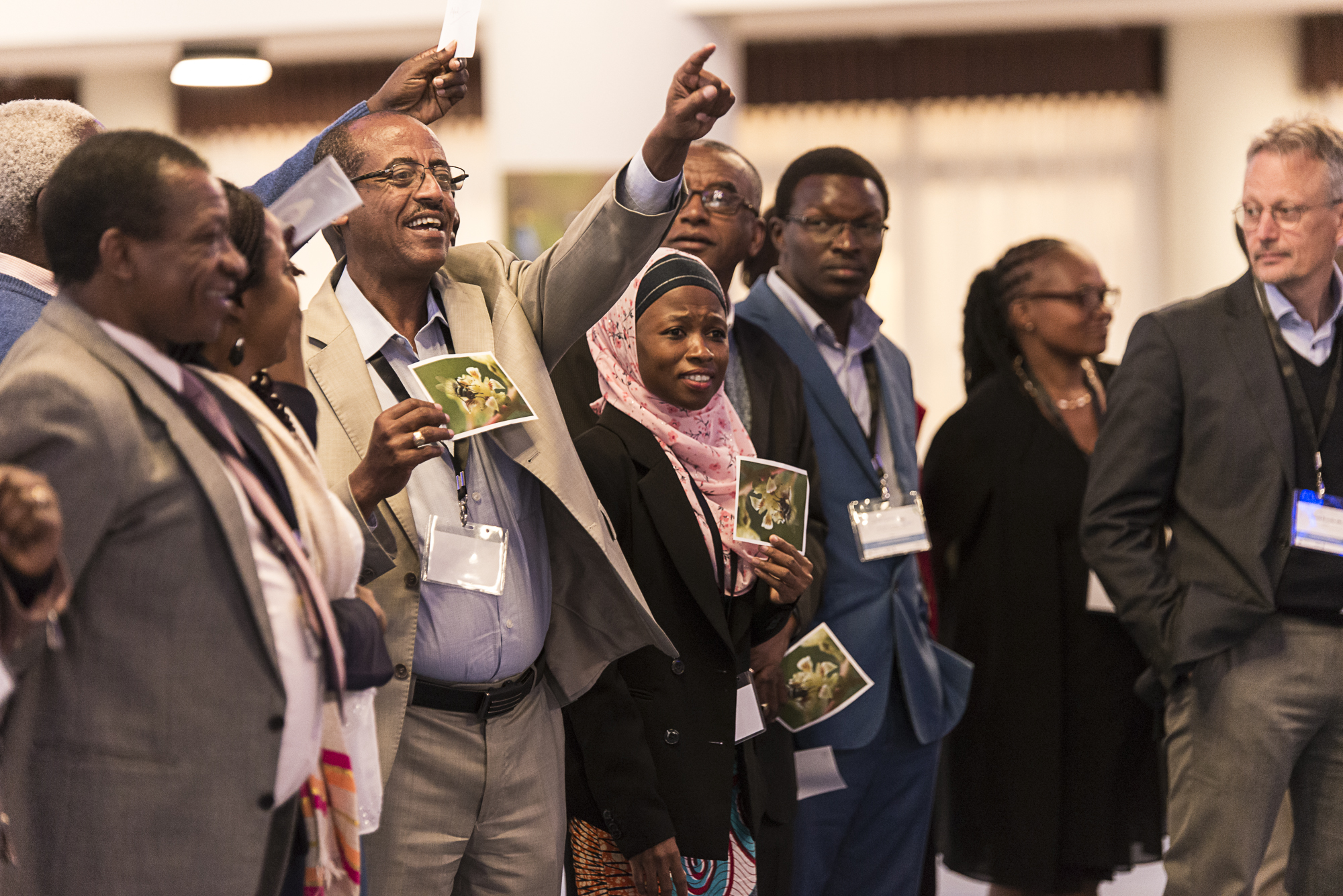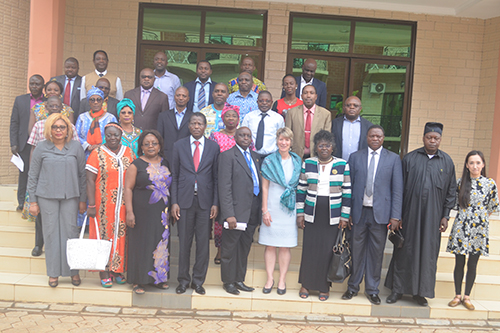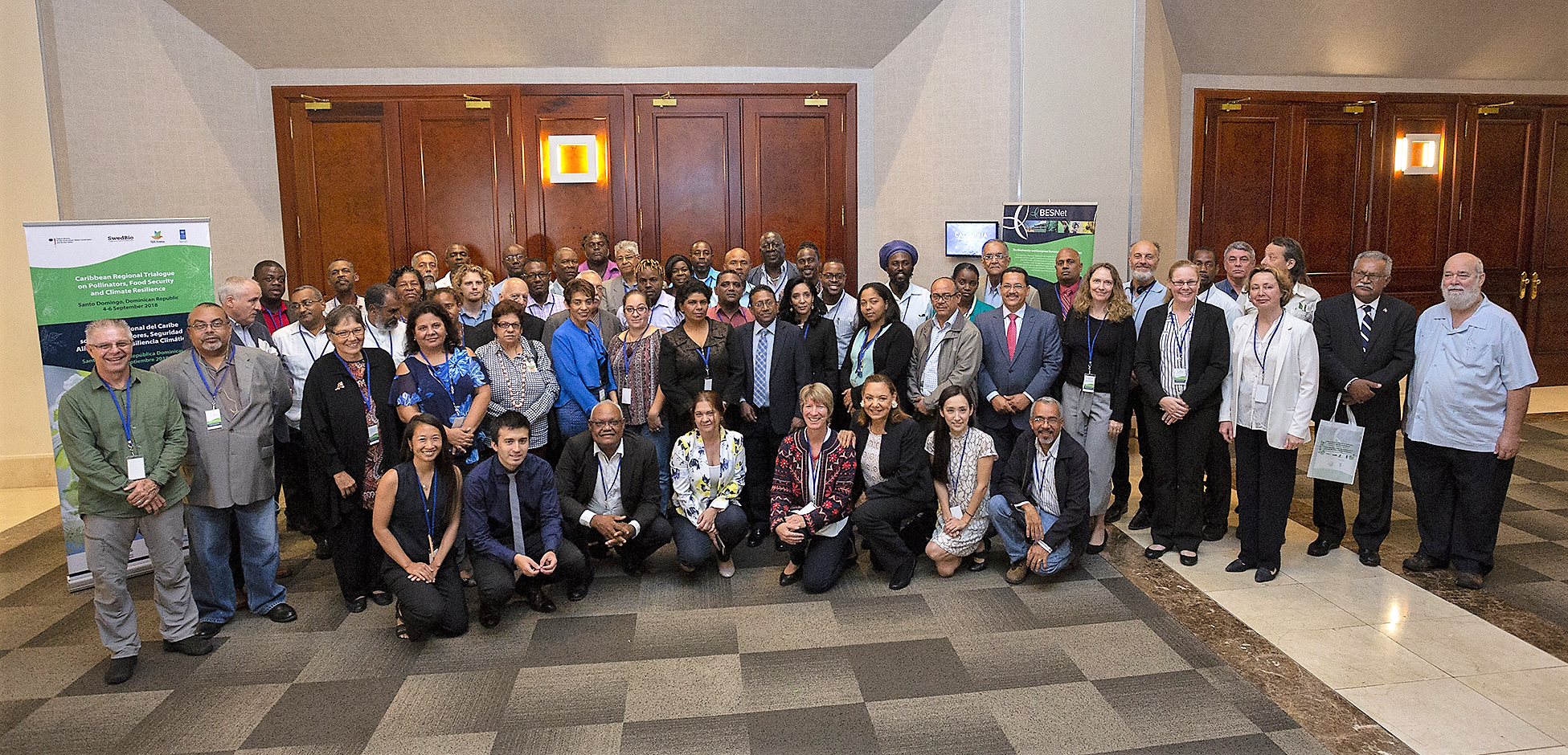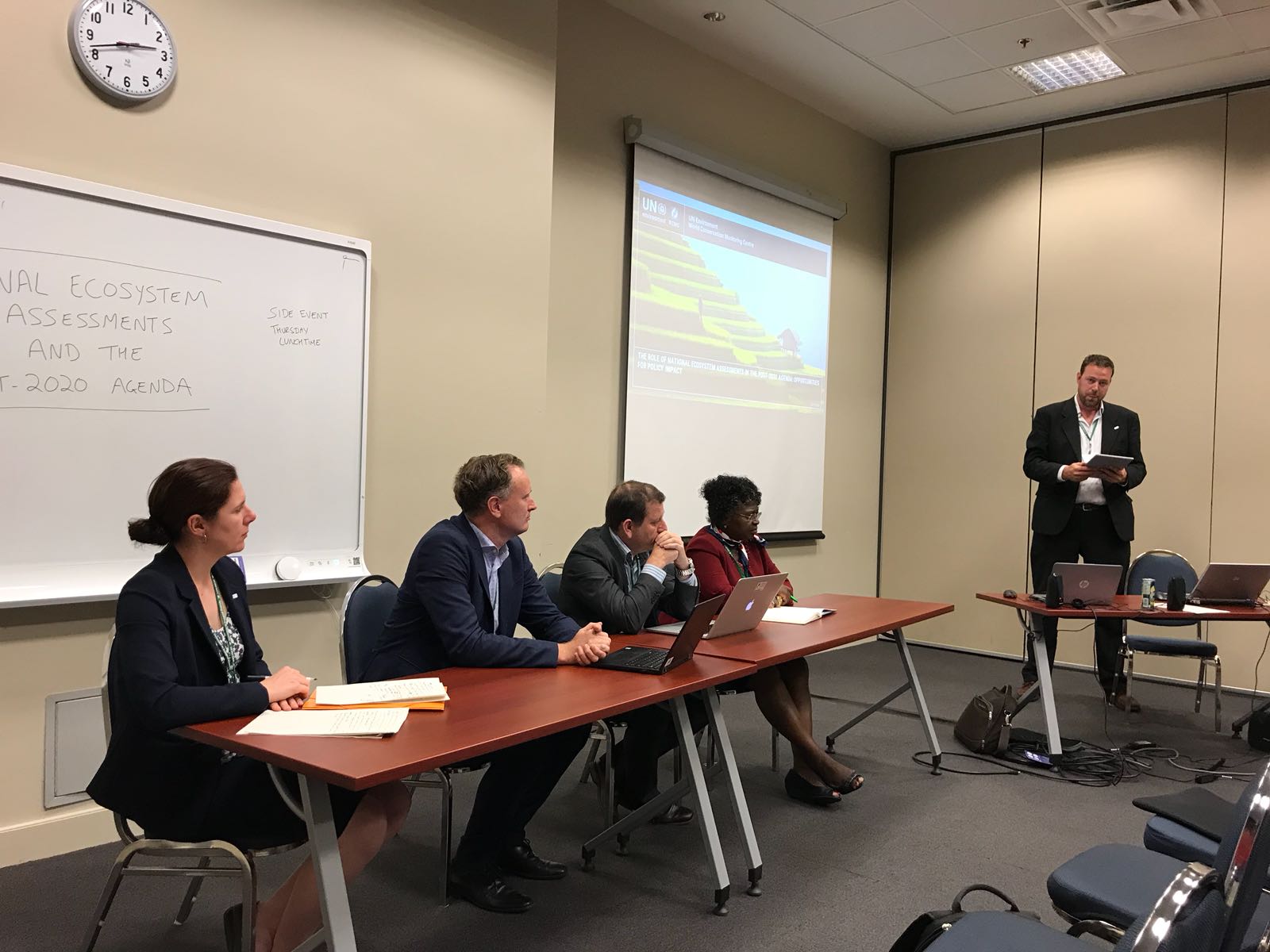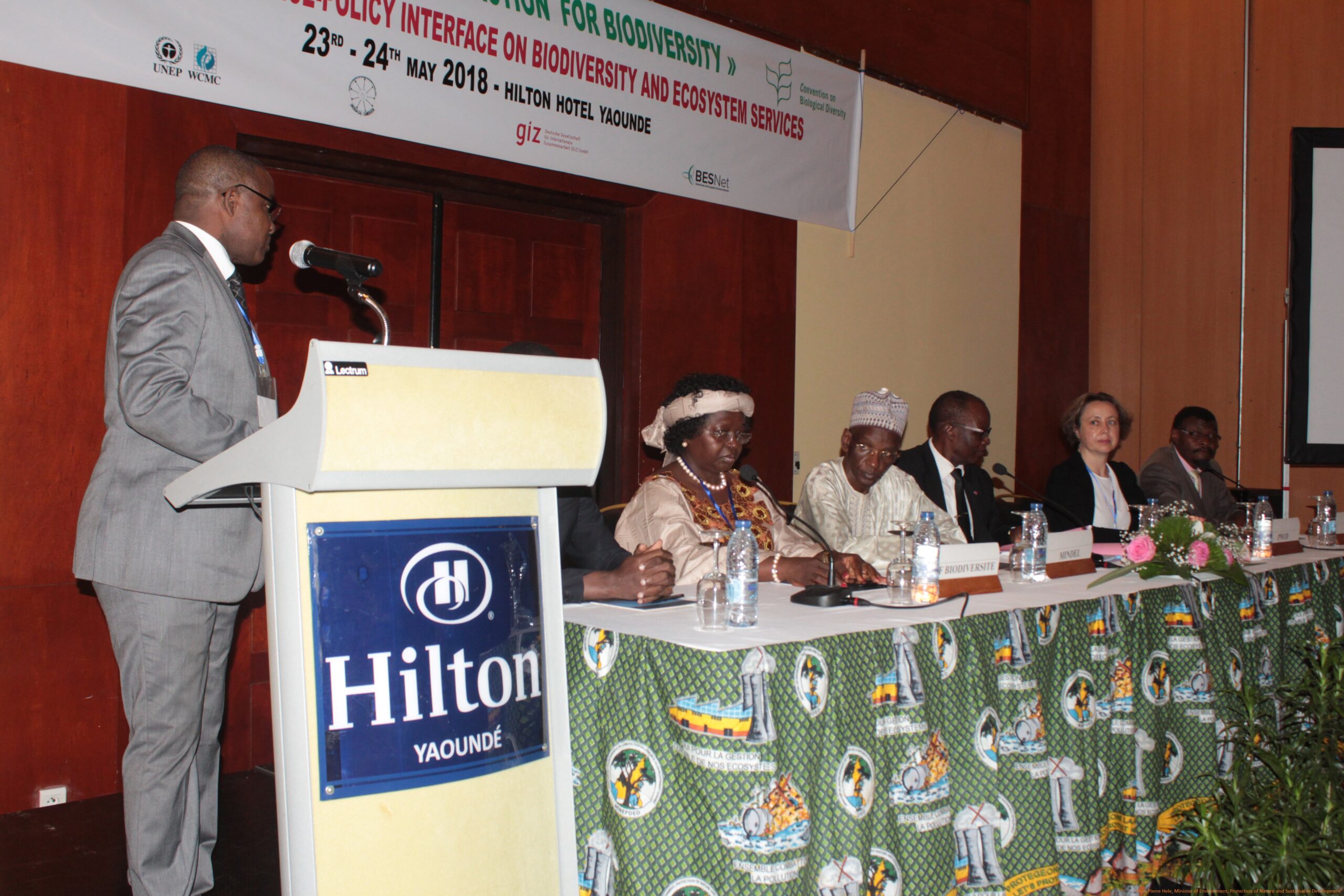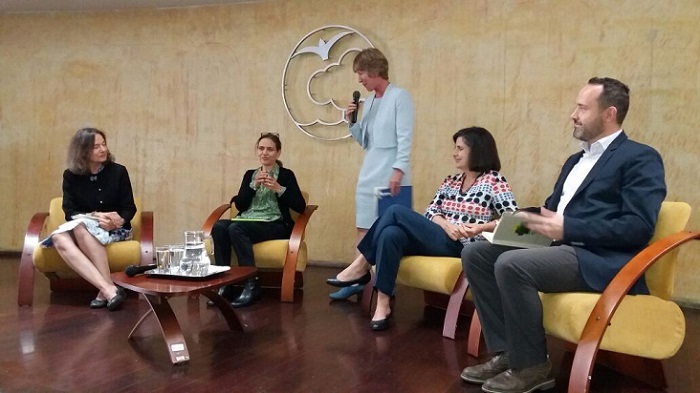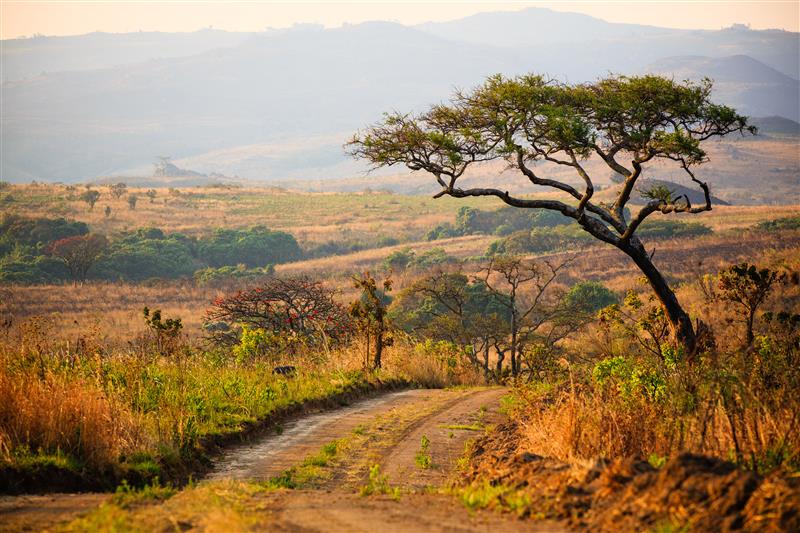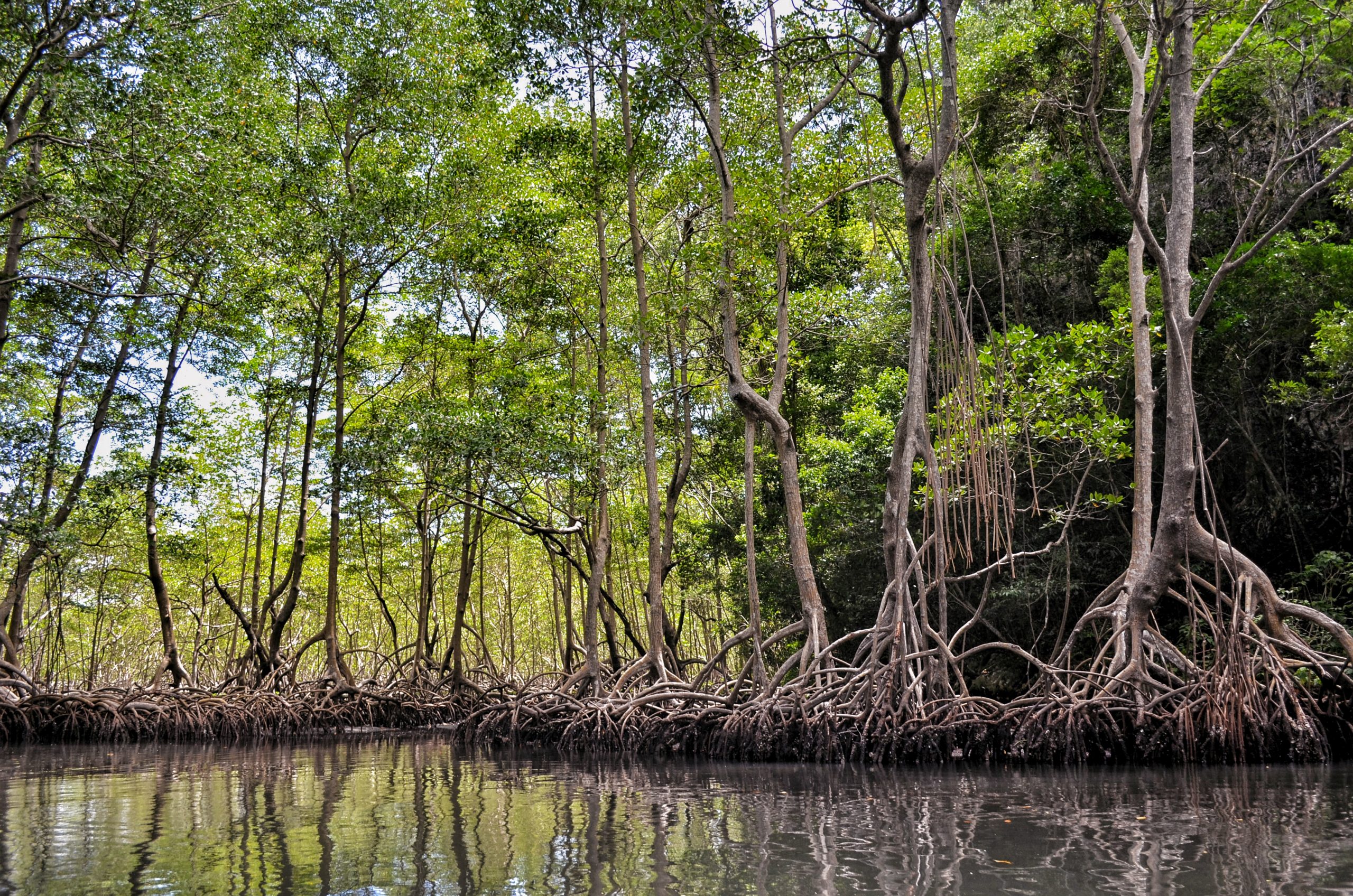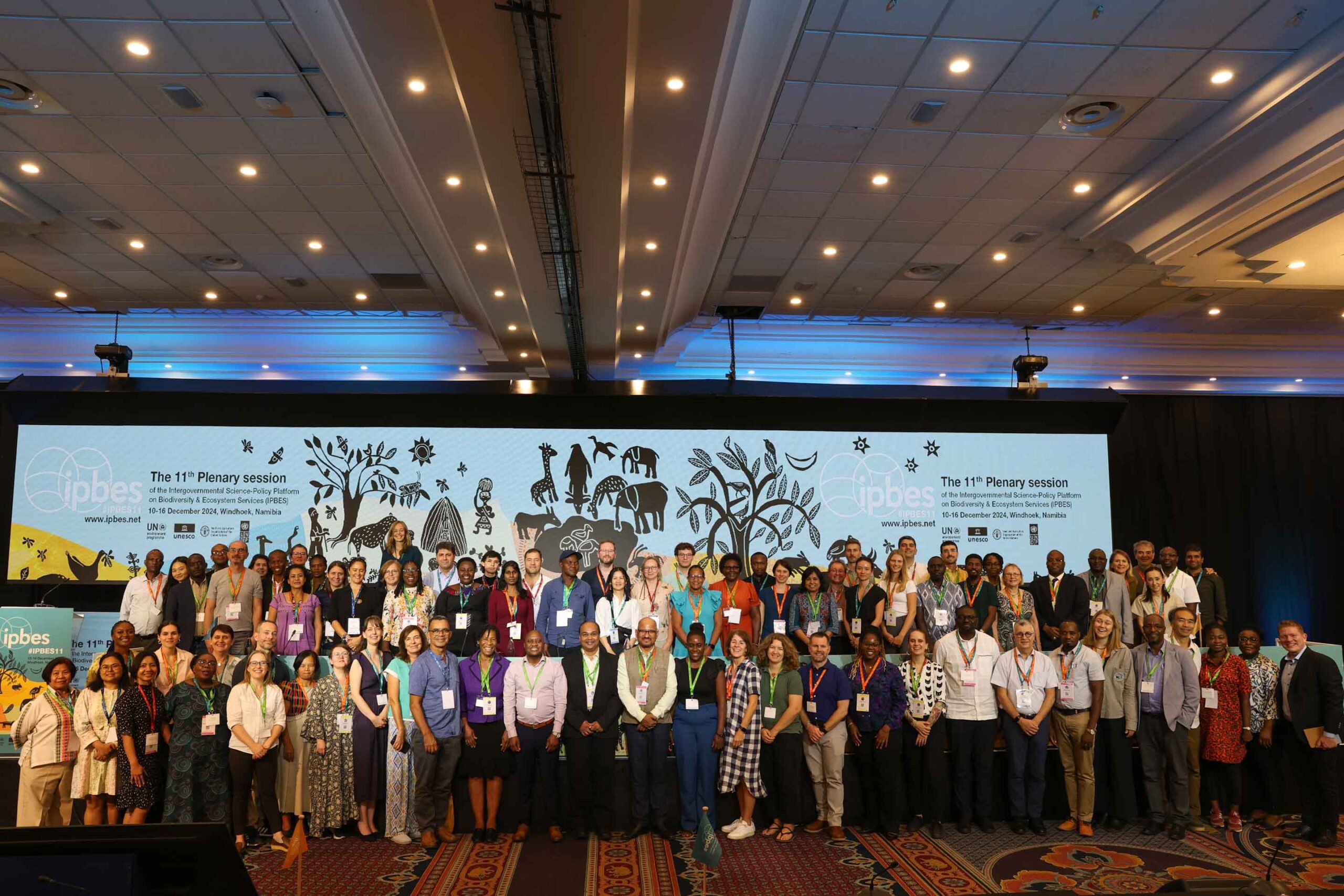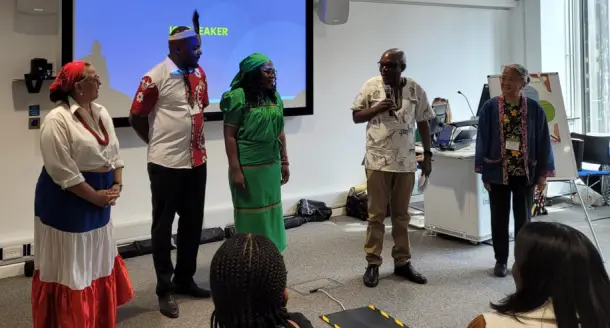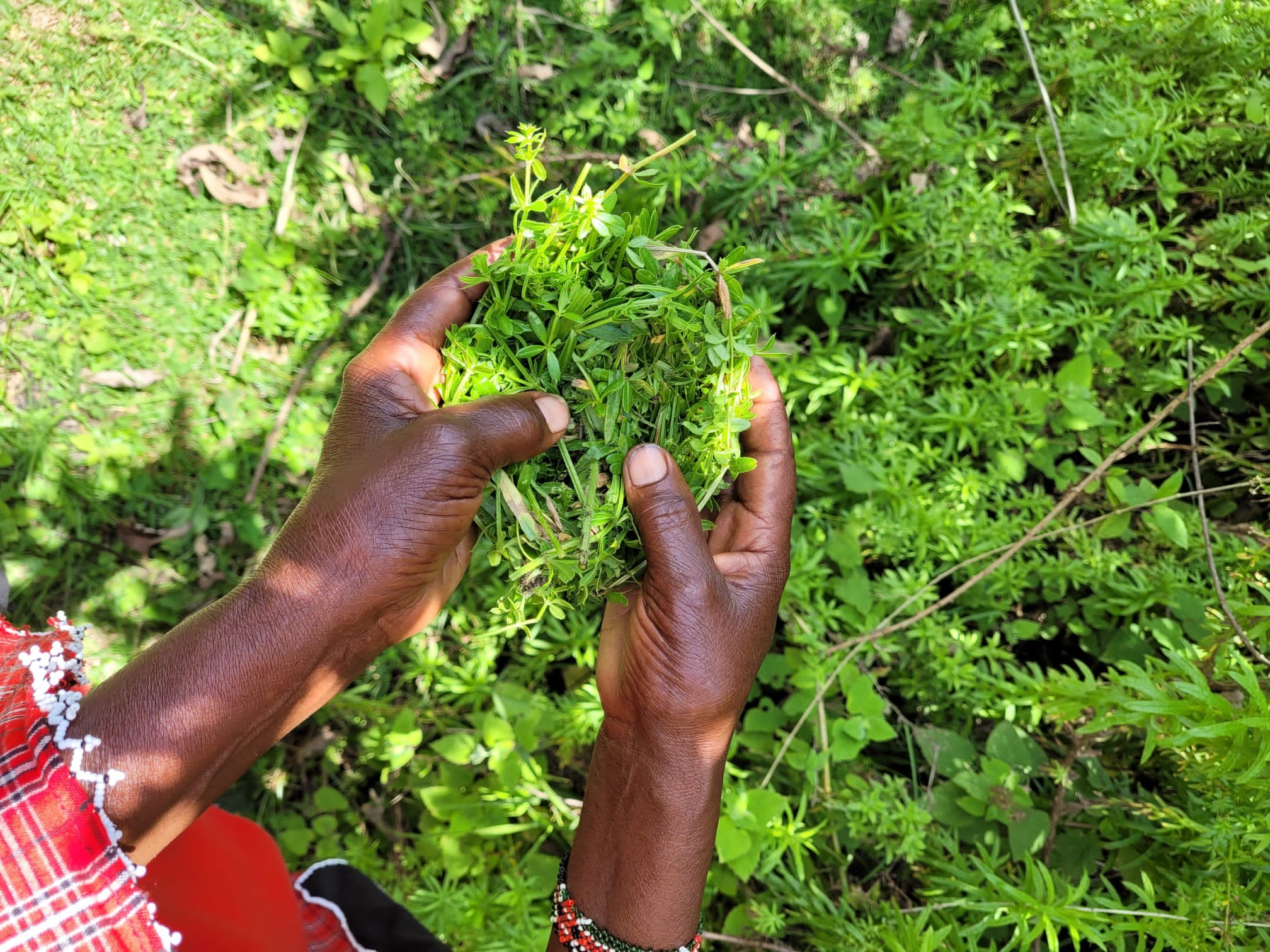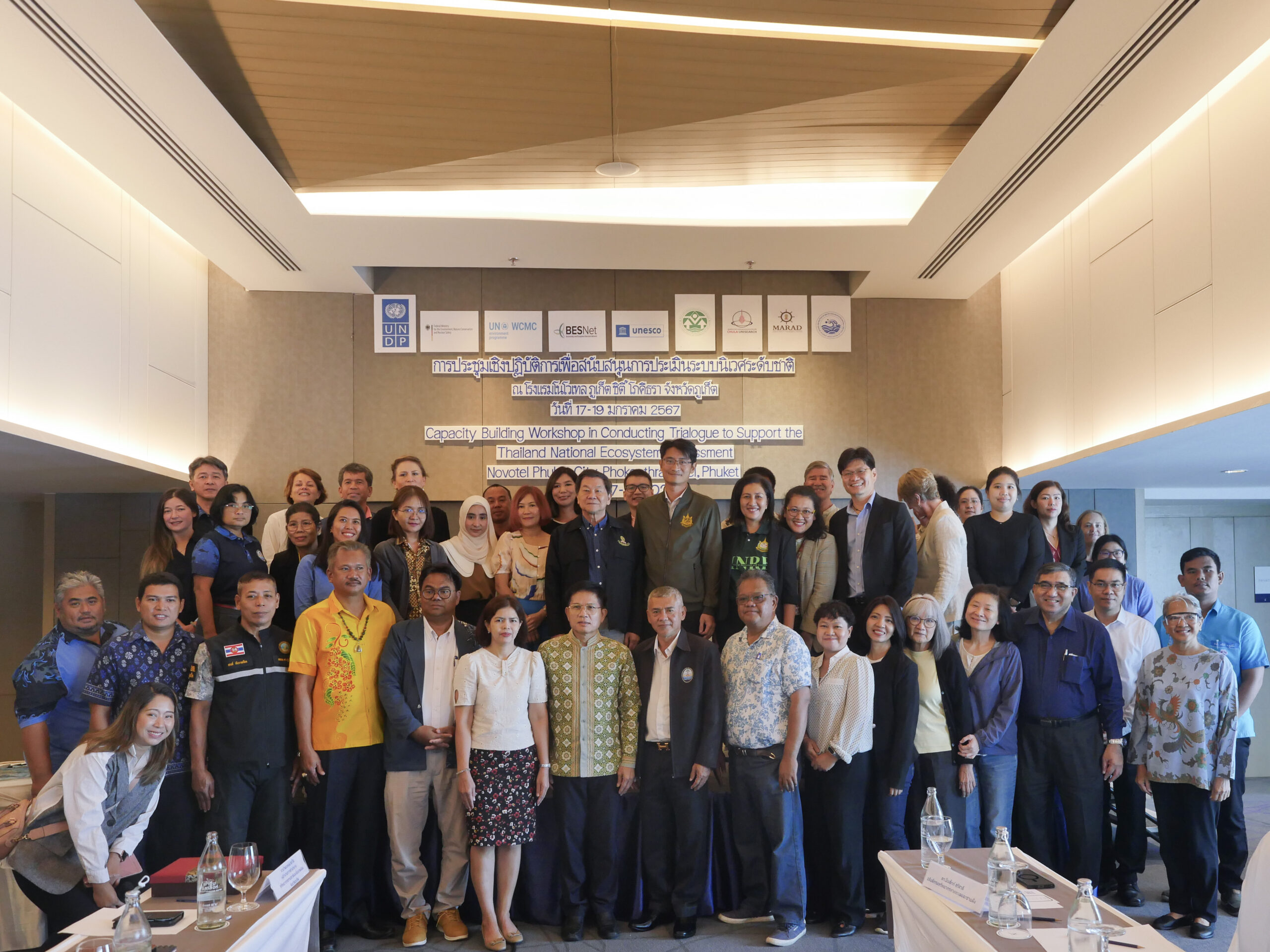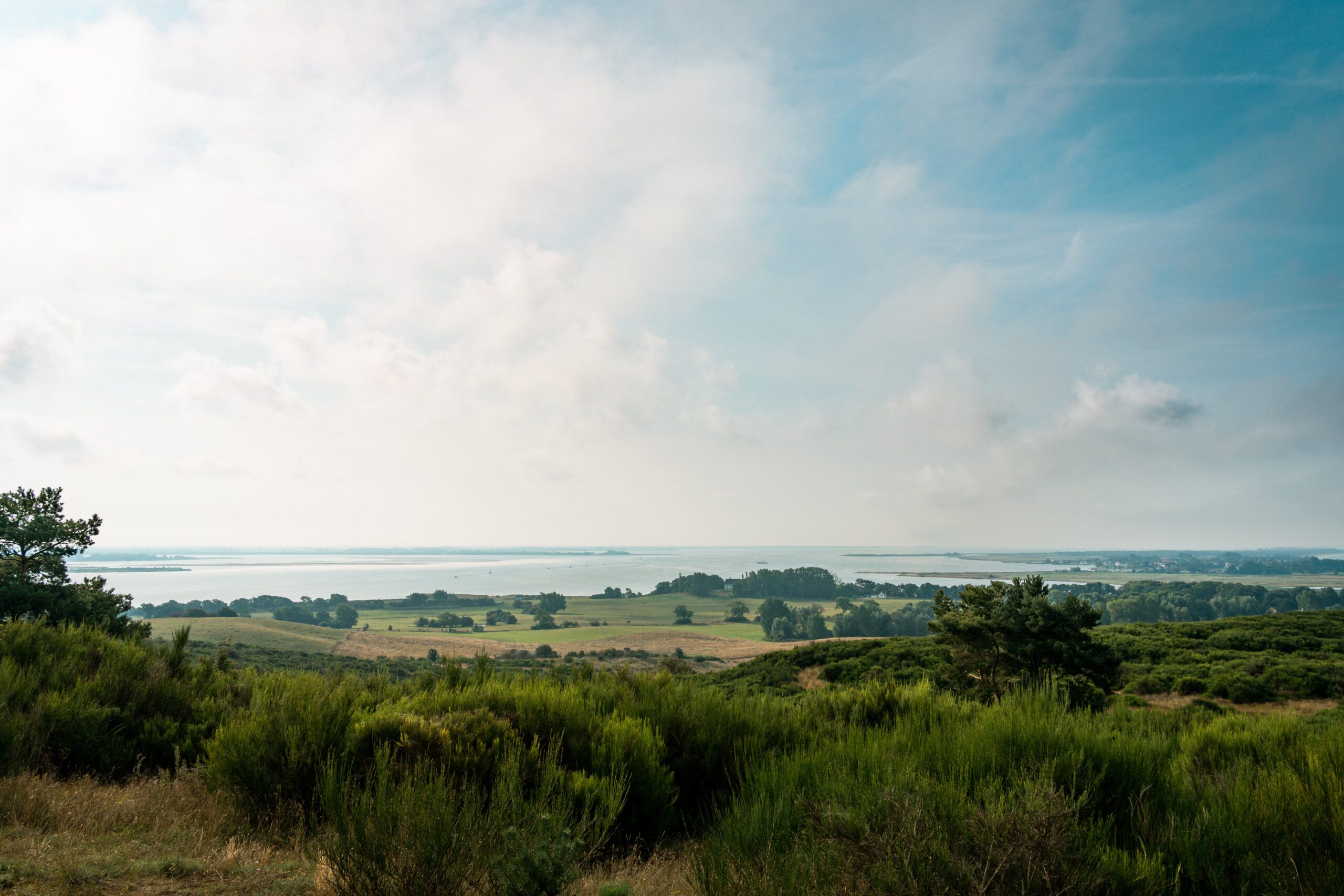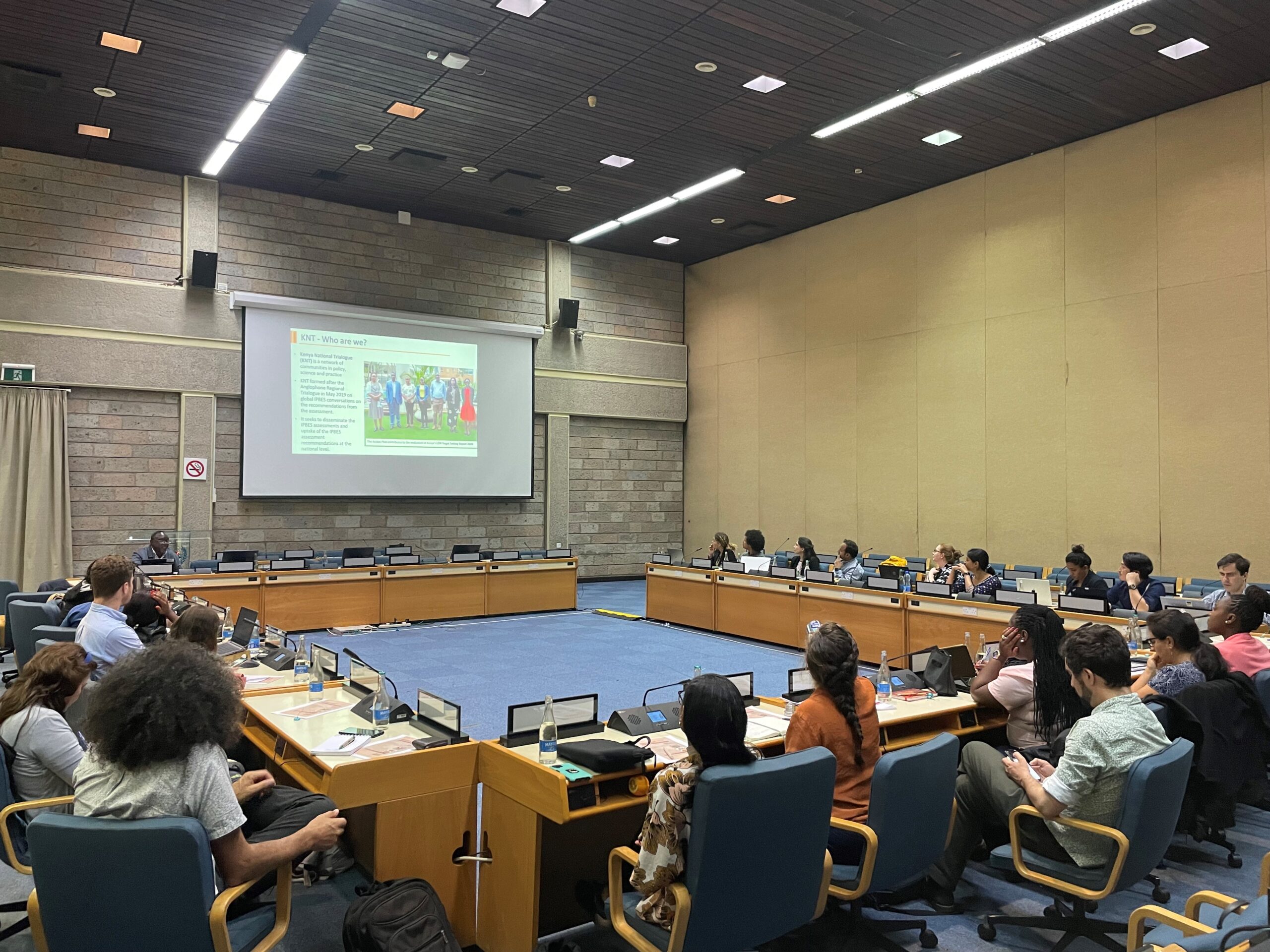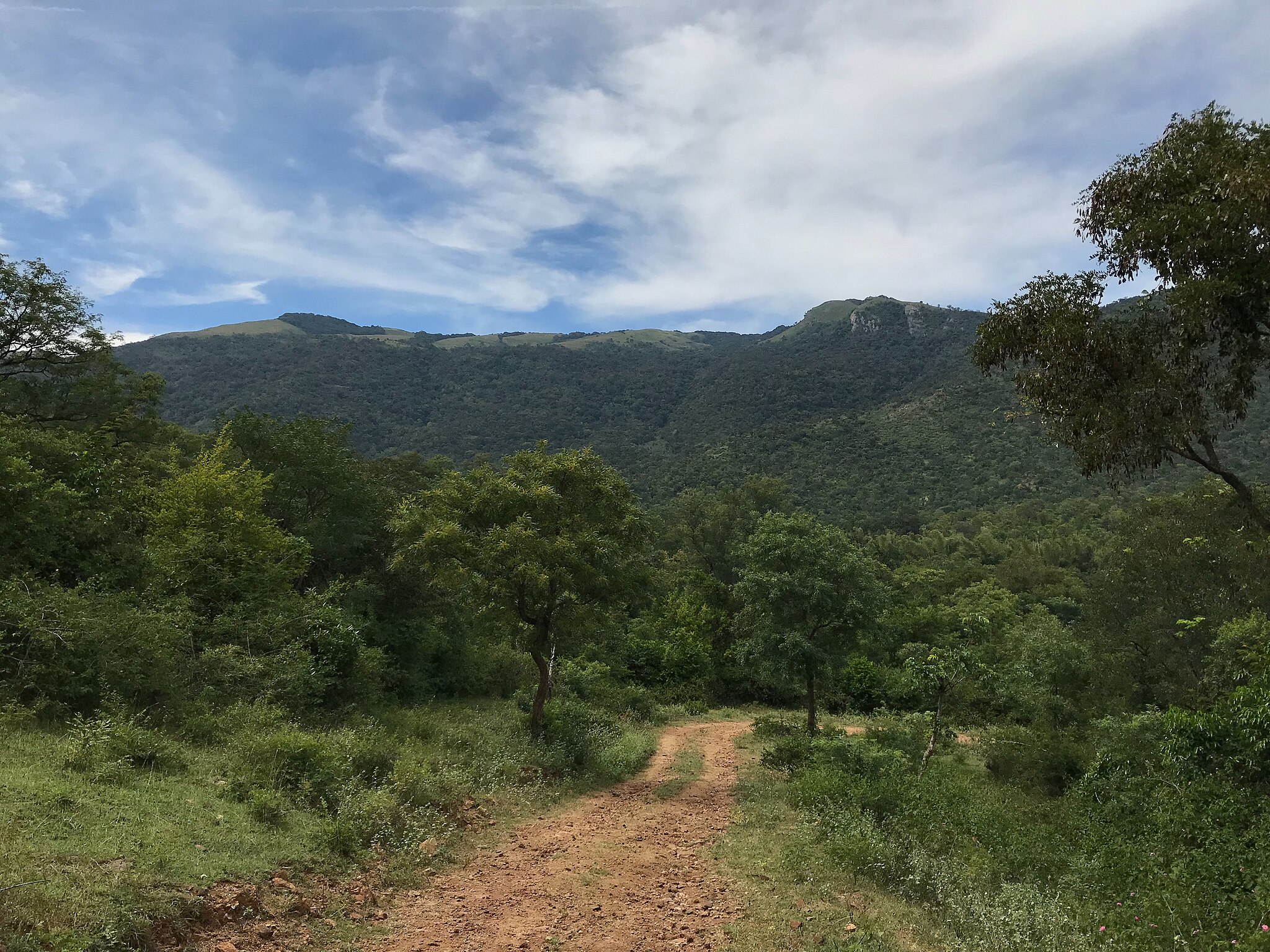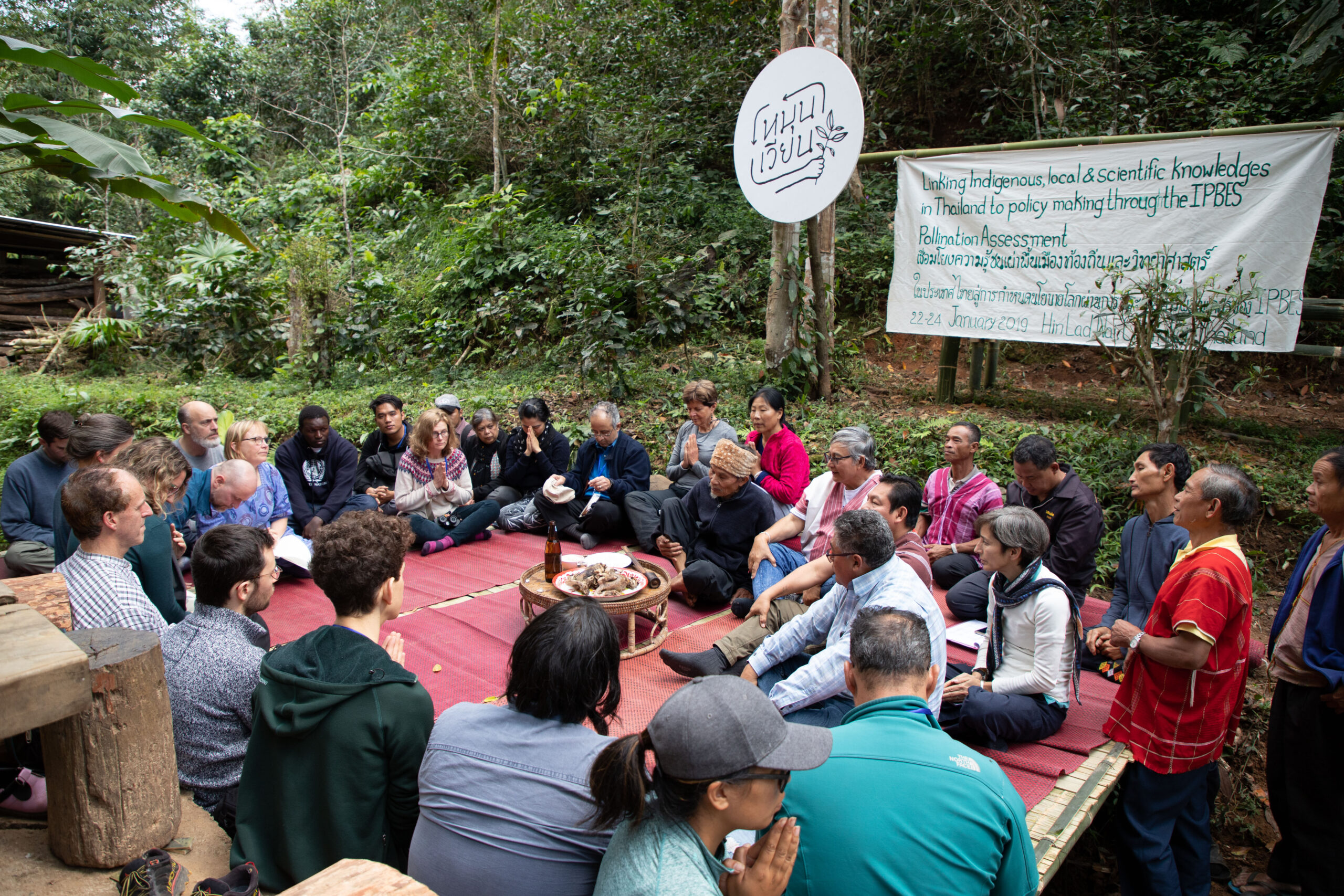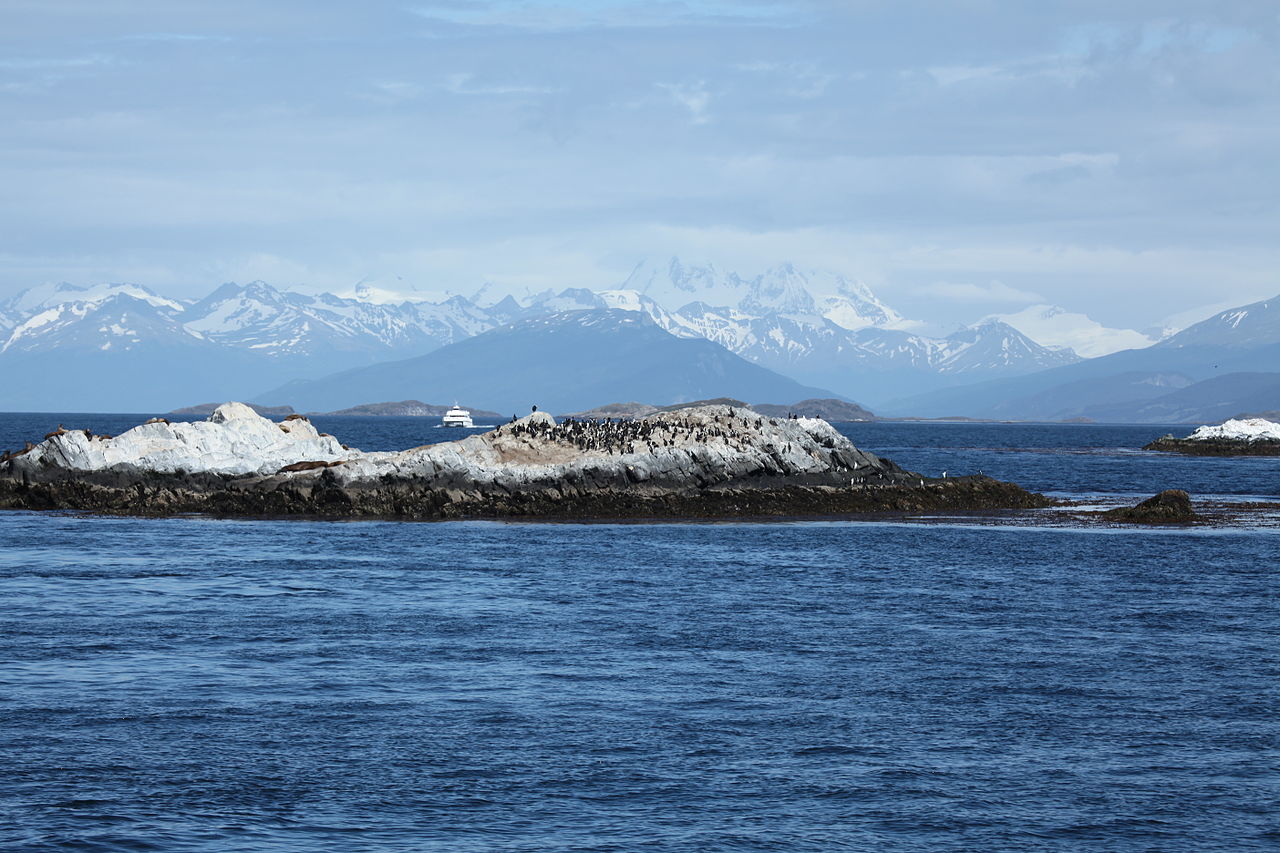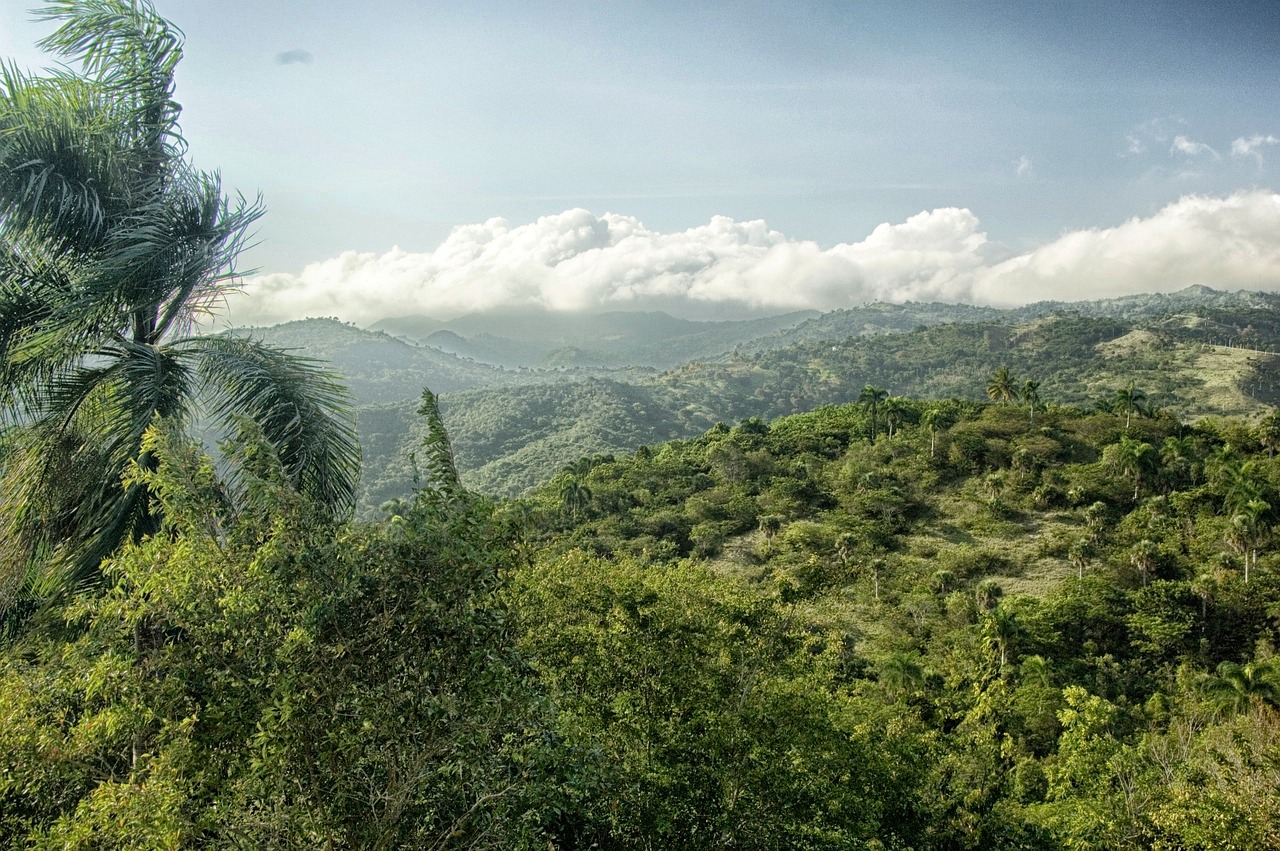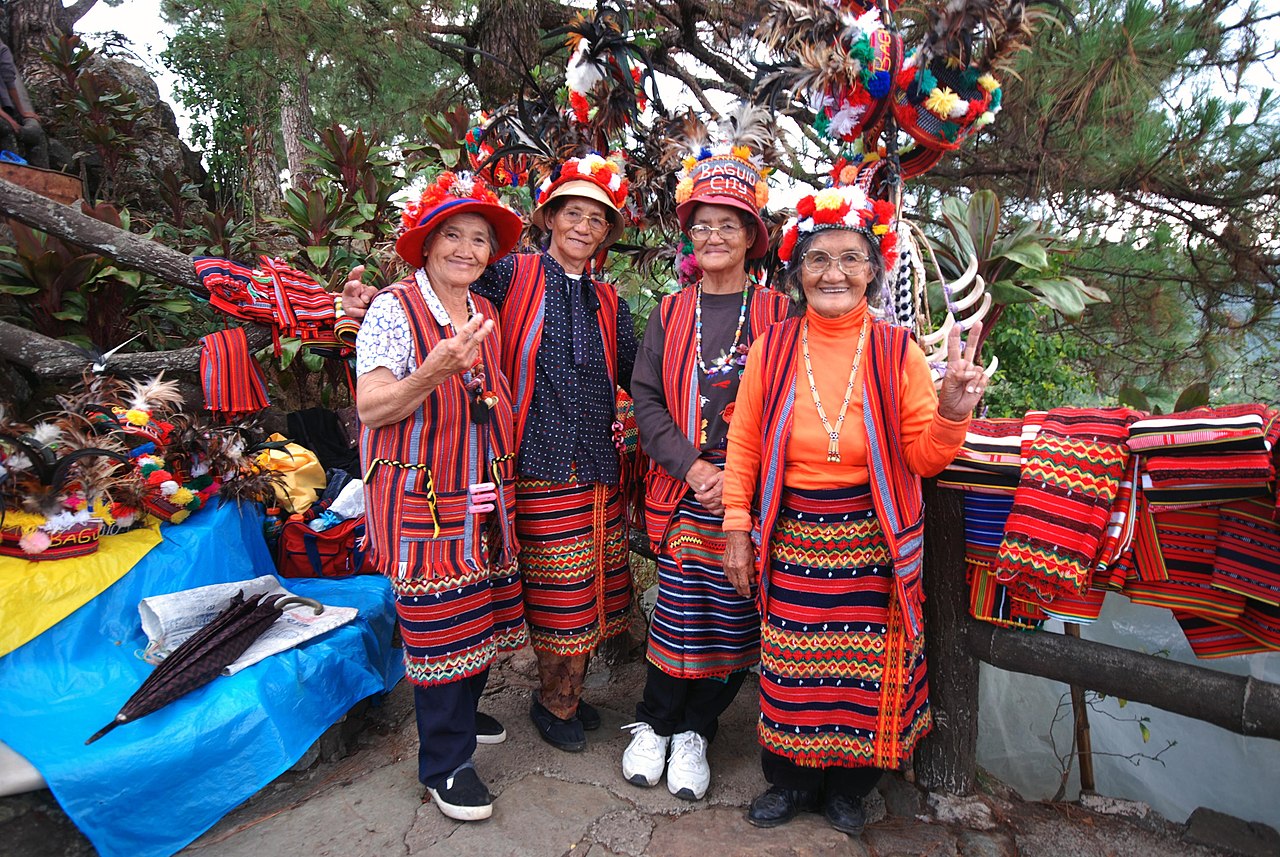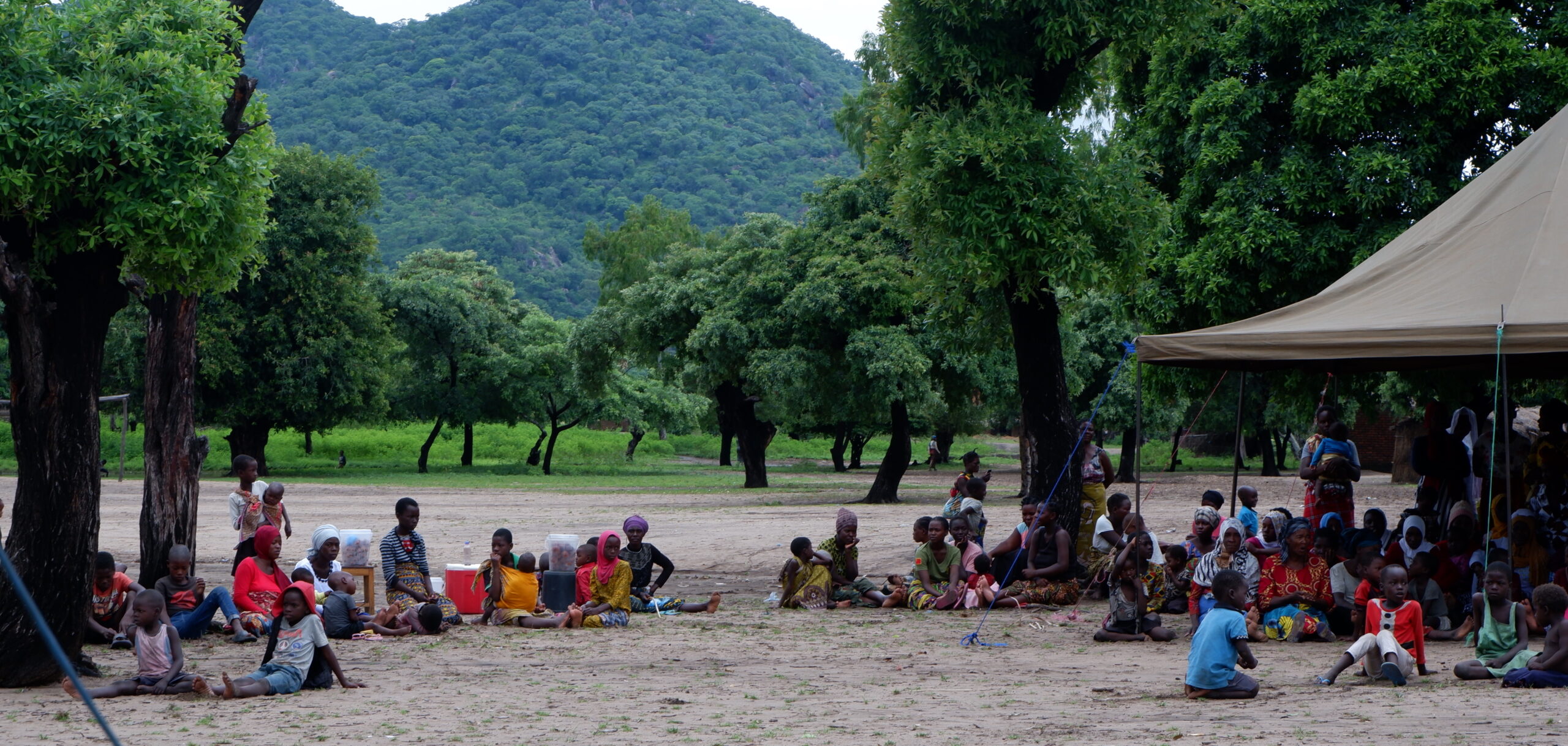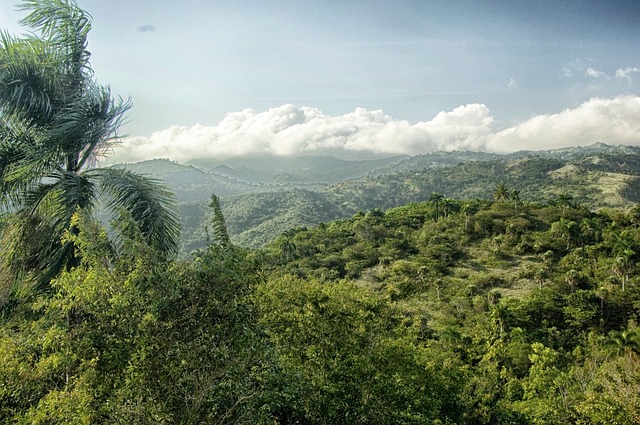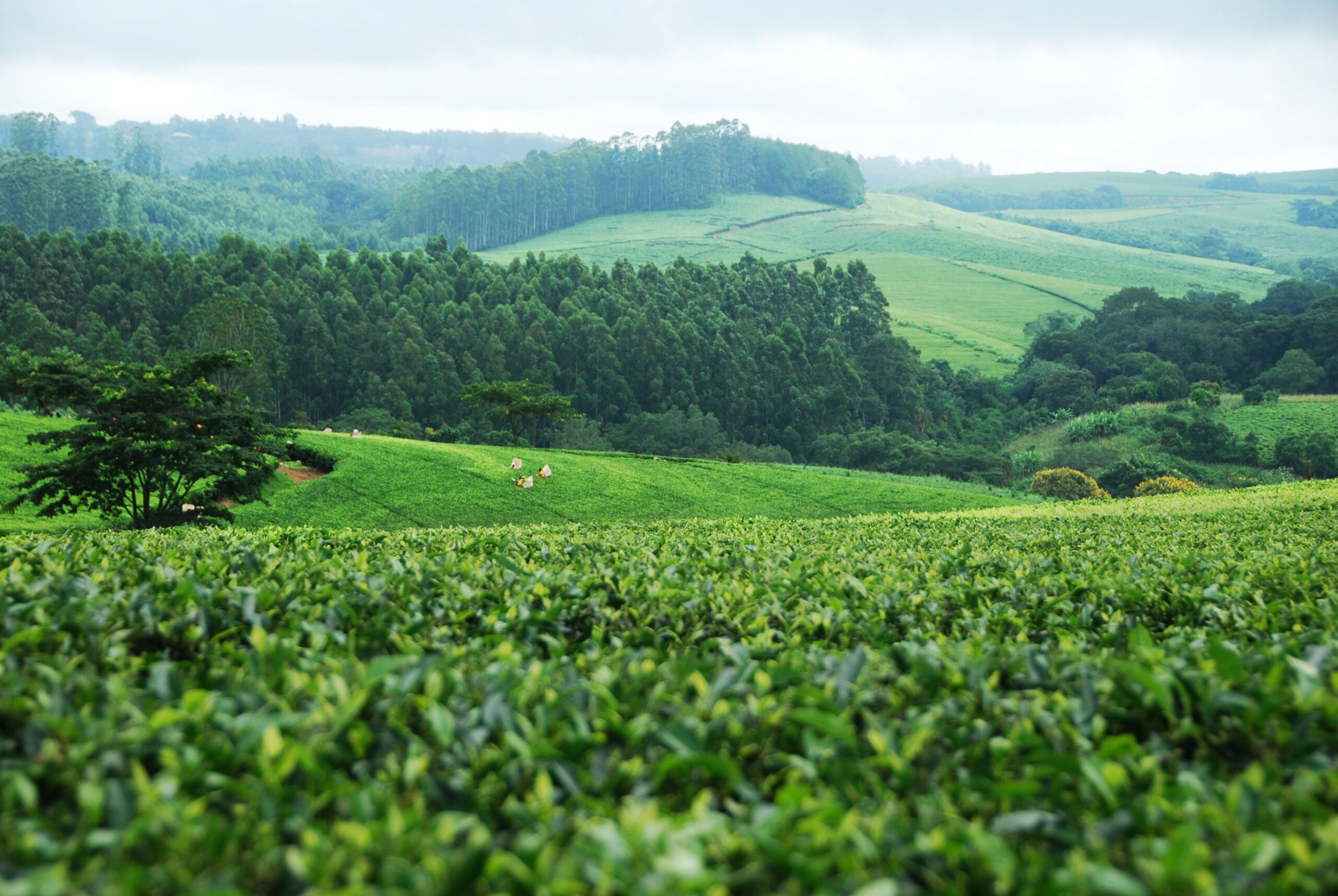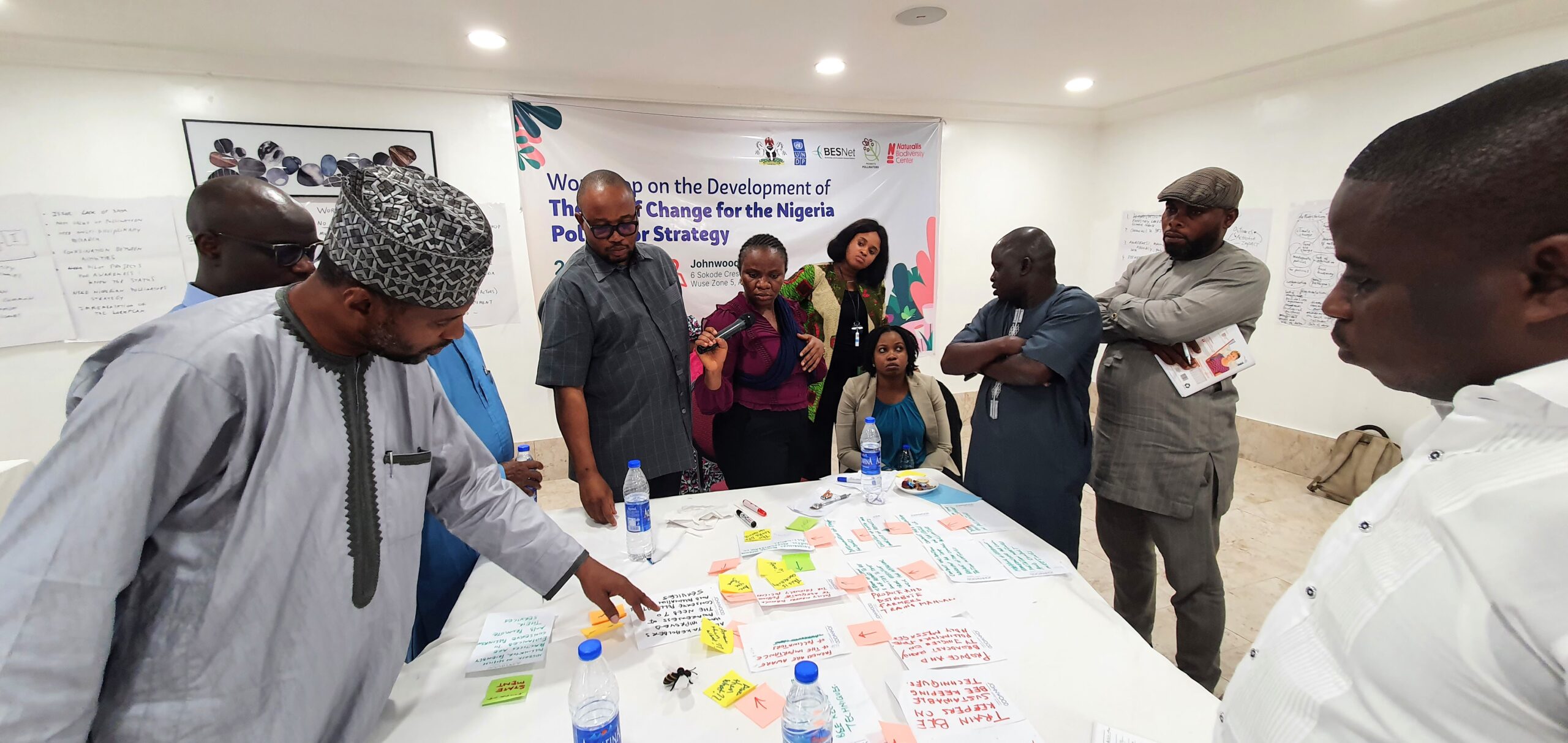The BES-Net Regional Trialogue for West and Central Africa
Connecting Knowledge and Action for Biodiversity Conservation

Throughout Africa, the continent’s rich biodiversity and cultural heritage are increasingly endangered by challenges like climate change and biodiversity loss. A significant driver of biodiversity decline is the spread of invasive alien species (IAS), which threatens not only the diversity of ecosystems but also food security and livelihoods, particularly for vulnerable populations in Africa.
Throughout Africa, the continent’s rich biodiversity and cultural heritage are increasingly endangered by challenges like climate change and biodiversity loss. A significant driver of biodiversity decline is the spread of invasive alien species (IAS), which threatens not only the diversity of ecosystems but also food security and livelihoods, particularly for vulnerable populations in Africa.
The need for collective action
Recognizing these urgent challenges, the Regional Trialogue for Central and West Africa was held in Abidjan, Côte d’Ivoire, on 11–13 June 2024. Organized by the Biodiversity and Ecosystem Services Network (BES-Net), this event aimed to translate global knowledge on biodiversity threats – such as IAS and the unsustainable use of wildlife – into actionable strategies. The Trialogue brought together over 55 key stakeholders, including policymakers, scientists, researchers and local community representatives from six countries in the region: Benin, Côte d’Ivoire, the Democratic Republic of Congo, Gabon, Senegal and Togo – to collaborate and reflect on recent Intergovernmental Science-Policy Platform for Biodiversity and Ecosystem Services (IPBES) assessments on IAS and on the sustainable use of wild species and turn these insights into concrete actions.
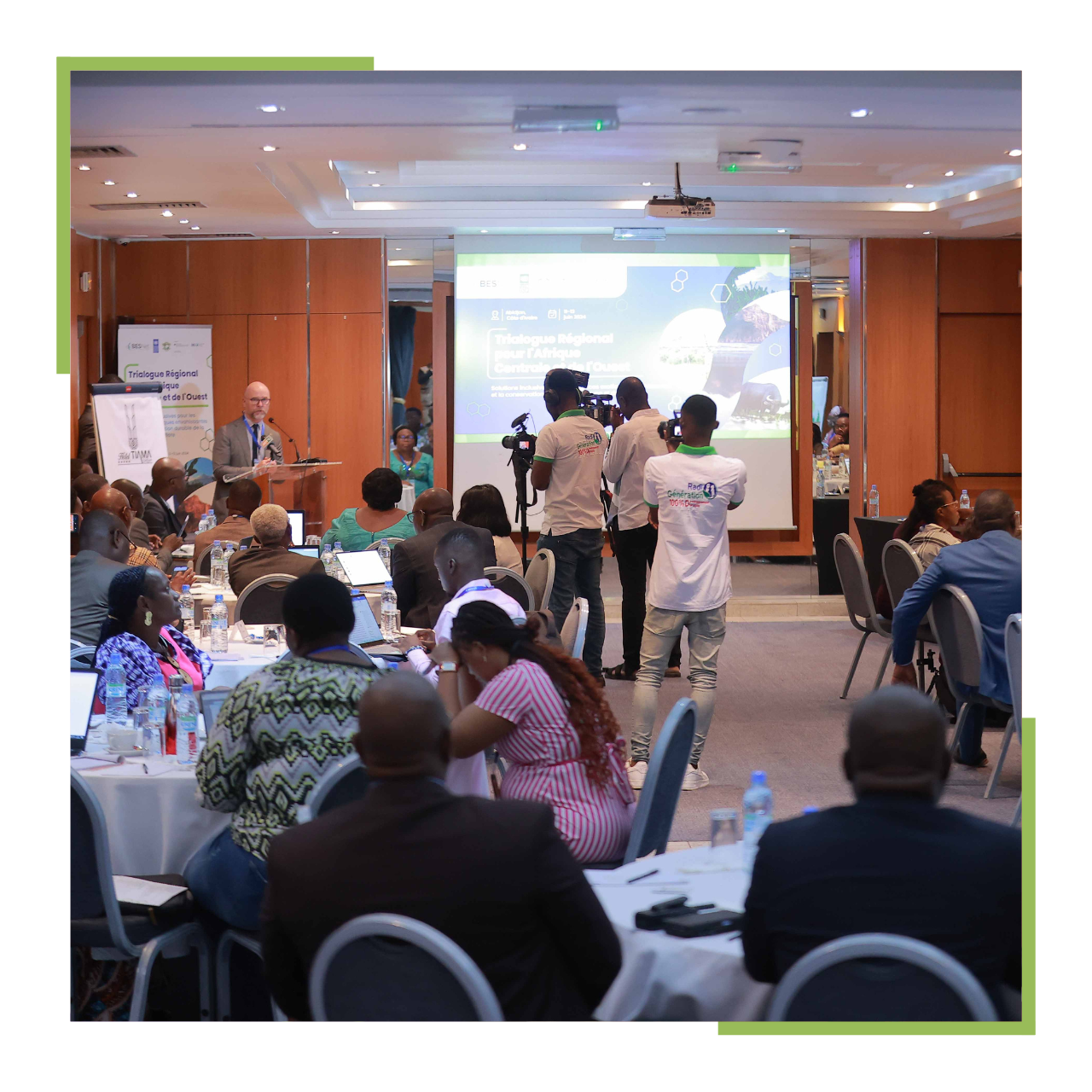
IAS, one of the top direct drivers of biodiversity loss worldwide, are particularly serious in parts of this region. In addition to jeopardizing the diversity of plant and animal species, IAS also pose serious threats to food security and livelihoods – particularly to Indigenous Peoples whose livelihood is inherently linked to nature. There is also an urgent need to ensure the sustainable use of wild species, which local communities significantly depend on for food, medicine and other resources. However, without the wide use of sustainable practices, this dependence on increasingly fragile ecosystems could lead to economic stress and social challenges. These threats are further compounded by the region’s increasing population, making it vital to develop sustainable solutions that can exist in harmony with nature.
IAS also pose a serious threats to food security and livelihoods – particularly to Indigenous Peoples whose livelihood is inherently linked to nature.
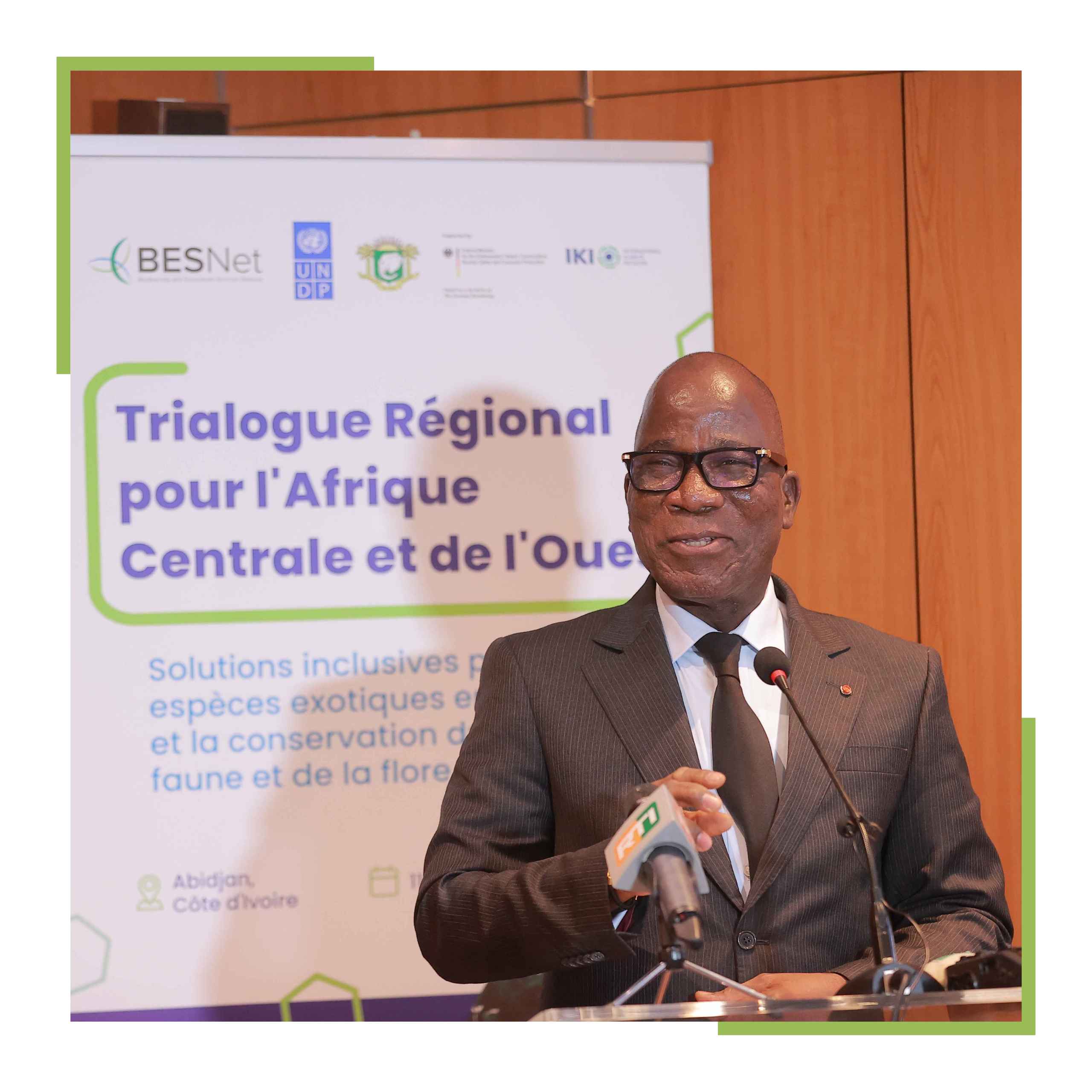
The need for collective action

Recognizing these urgent challenges, the Regional Trialogue for Central and West Africa was held in Abidjan, Côte d’Ivoire, on 11–13 June 2024. Organized by the Biodiversity and Ecosystem Services Network (BES-Net), this event aimed to translate global knowledge on biodiversity threats – such as IAS and the unsustainable use of wildlife – into actionable strategies. The Trialogue brought together over 55 key stakeholders, including policymakers, scientists, researchers and local community representatives from six countries in the region: Benin, Côte d’Ivoire, the Democratic Republic of Congo, Gabon, Senegal and Togo – to collaborate and reflect on recent Intergovernmental Science-Policy Platform for Biodiversity and Ecosystem Services (IPBES) assessments on IAS and on the sustainable use of wild species and turn these insights into concrete actions.

IAS, one of the top direct drivers of biodiversity loss worldwide, are particularly serious in parts of this region. In addition to jeopardizing the diversity of plant and animal species, IAS also pose serious threats to food security and livelihoods – particularly to Indigenous Peoples whose livelihood is inherently linked to nature. There is also an urgent need to ensure the sustainable use of wild species, which local communities significantly depend on for food, medicine and other resources. However, without the wide use of sustainable practices, this dependence on increasingly fragile ecosystems could lead to economic stress and social challenges. These threats are further compounded by the region’s increasing population, making it vital to develop sustainable solutions that can exist in harmony with nature.
IAS also pose a serious threats to food security and livelihoods – particularly to Indigenous Peoples whose livelihood is inherently linked to nature.
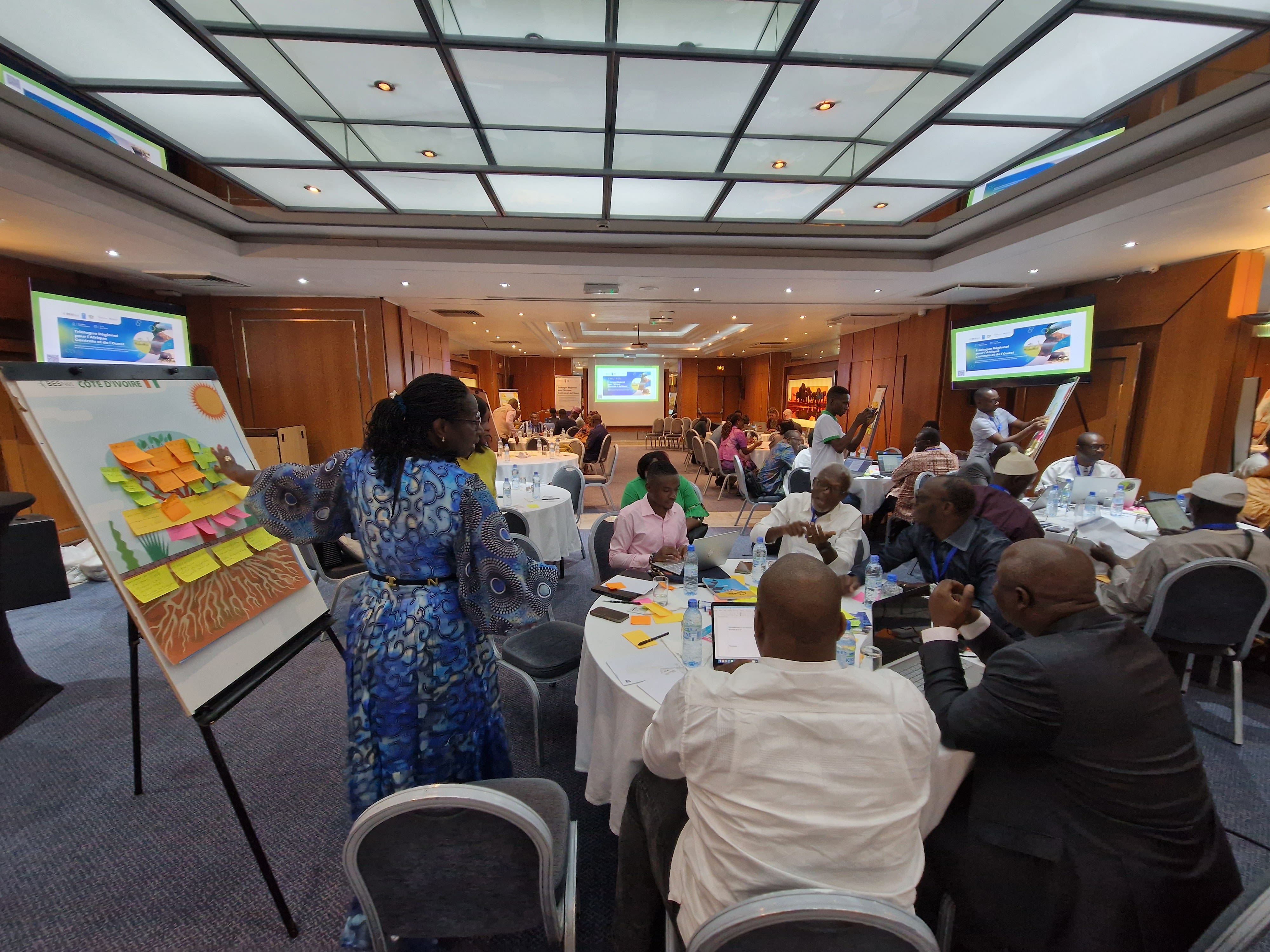
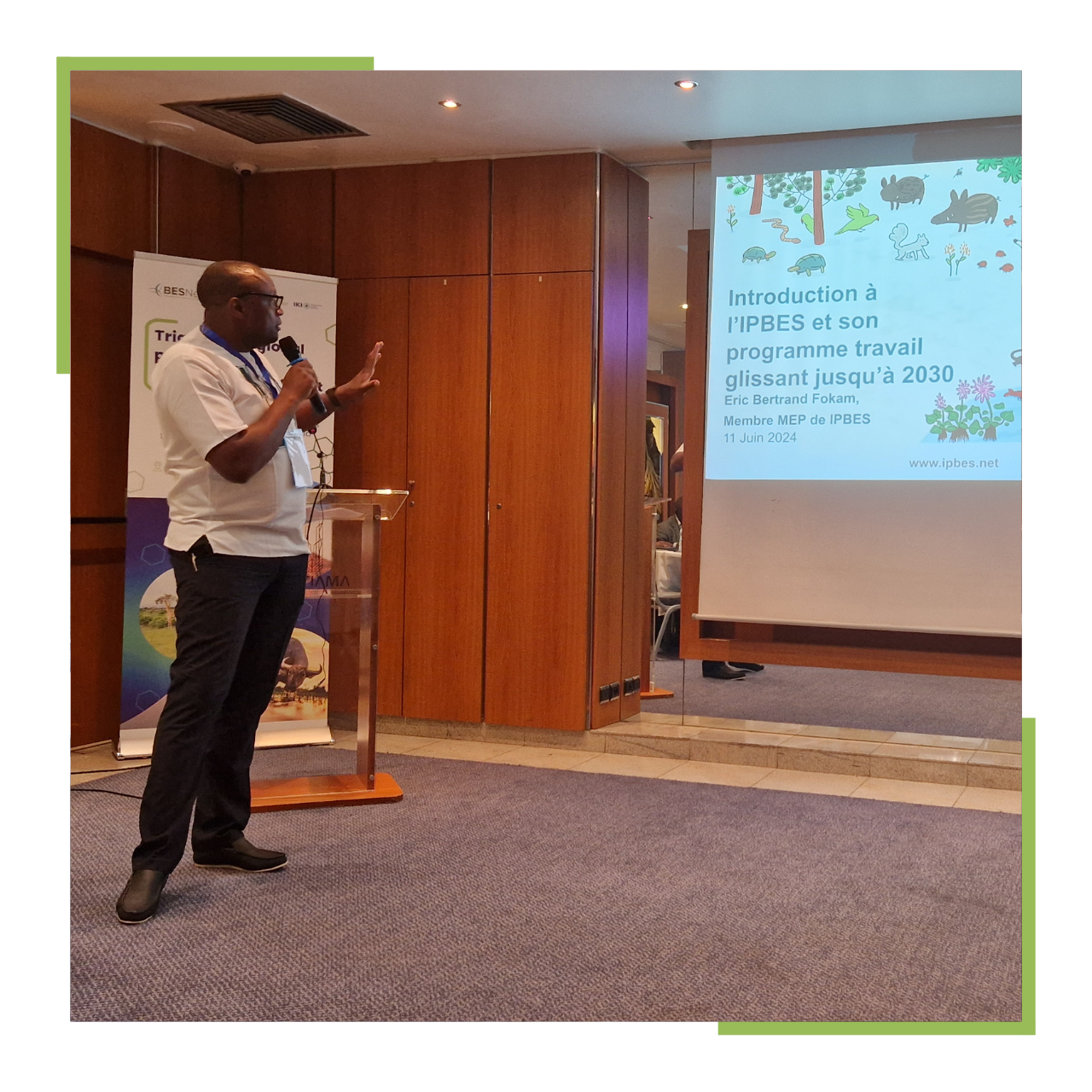
Professor Éric Bertrand Fokam giving a presentation on IPBES and its rolling work programme up to 2030
Professor Éric Bertrand Fokam giving a presentation on IPBES and its rolling work programme up to 2030
Building on solid scientific foundations
The Trialogue was grounded in the latest findings of IPBES assessments, particularly the assessments on the Sustainable Use of Wild Species (2022) and Invasive Alien Species (2023). These assessments provided a solid multiple evidence knowledge base, including scientific and Indigenous and local knowledge, which the Trialogue aimed to contextualize for regional and national application.
The event kicked off with inspiring opening statements from several high-level speakers: H.E. Assahore Konan Jacques, Minister of Environment and Sustainable Development from Cote d’Ivoire; Carol Flore-Smereczniak, UNDP Resident Representative in Côte d'Ivoire; H.E. Matthias Veltin, German Ambassador to Côte d'Ivoire; and Nigel Crawhall, Chief of Section LINKS at UNESCO. They underscored the importance of the issues addressed by the Trialogue, establishing a backdrop for the discussions and activities. A local poet also performed at the event, representing the communities dedicated to protecting Africa’s natural wealth.
Thematic sessions were led by Professor Eric Fokam, a member of the IPBES Capacity-building Task Force and Multidisciplinary Expert Panel, who guided participants through these assessments and sparked discussions on how to integrate knowledge into actionable strategies. Participating country teams were invited to reflect on the key messages and co-create national action plans informed by global knowledge and relevant to their specific socioeconomic and ecological context.
Building on solid scientific foundations
The Trialogue was grounded in the latest findings of IPBES assessments, particularly the assessments on the Sustainable Use of Wild Species (2022) and Invasive Alien Species (2023). These assessments provided a solid multiple evidence knowledge base, including scientific and Indigenous and local knowledge, which the Trialogue aimed to contextualize for regional and national application.
The event kicked off with inspiring opening statements from several high-level speakers: H.E. Assahore Konan Jacques, Minister of Environment and Sustainable Development from Cote d’Ivoire; Carol Flore-Smereczniak, UNDP Resident Representative in Côte d'Ivoire; H.E. Matthias Veltin, German Ambassador to Côte d'Ivoire; and Nigel Crawhall, Chief of Section LINKS at UNESCO. They underscored the importance of the issues addressed by the Trialogue, establishing a backdrop for the discussions and activities. A local poet also performed at the event, representing the communities dedicated to protecting Africa’s natural wealth.

Professor Éric Bertrand Fokam giving a presentation on IPBES and its rolling work programme up to 2030
Professor Éric Bertrand Fokam giving a presentation on IPBES and its rolling work programme up to 2030
Thematic sessions were led by Professor Eric Fokam, a member of the IPBES Capacity-building Task Force and Multidisciplinary Expert Panel, who guided participants through these assessments and sparked discussions on how to integrate knowledge into actionable strategies. Participating country teams were invited to reflect on the key messages and co-create national action plans informed by global knowledge and relevant to their specific socioeconomic and ecological context.
The “Tree of Life” metaphor
A lesson in interconnectedness
At the heart of the Trialogue was the “Tree of Life” – a tool developed by BES-Net to strengthen the science-policy-practice interface through meaningful dialogue among diverse stakeholders.
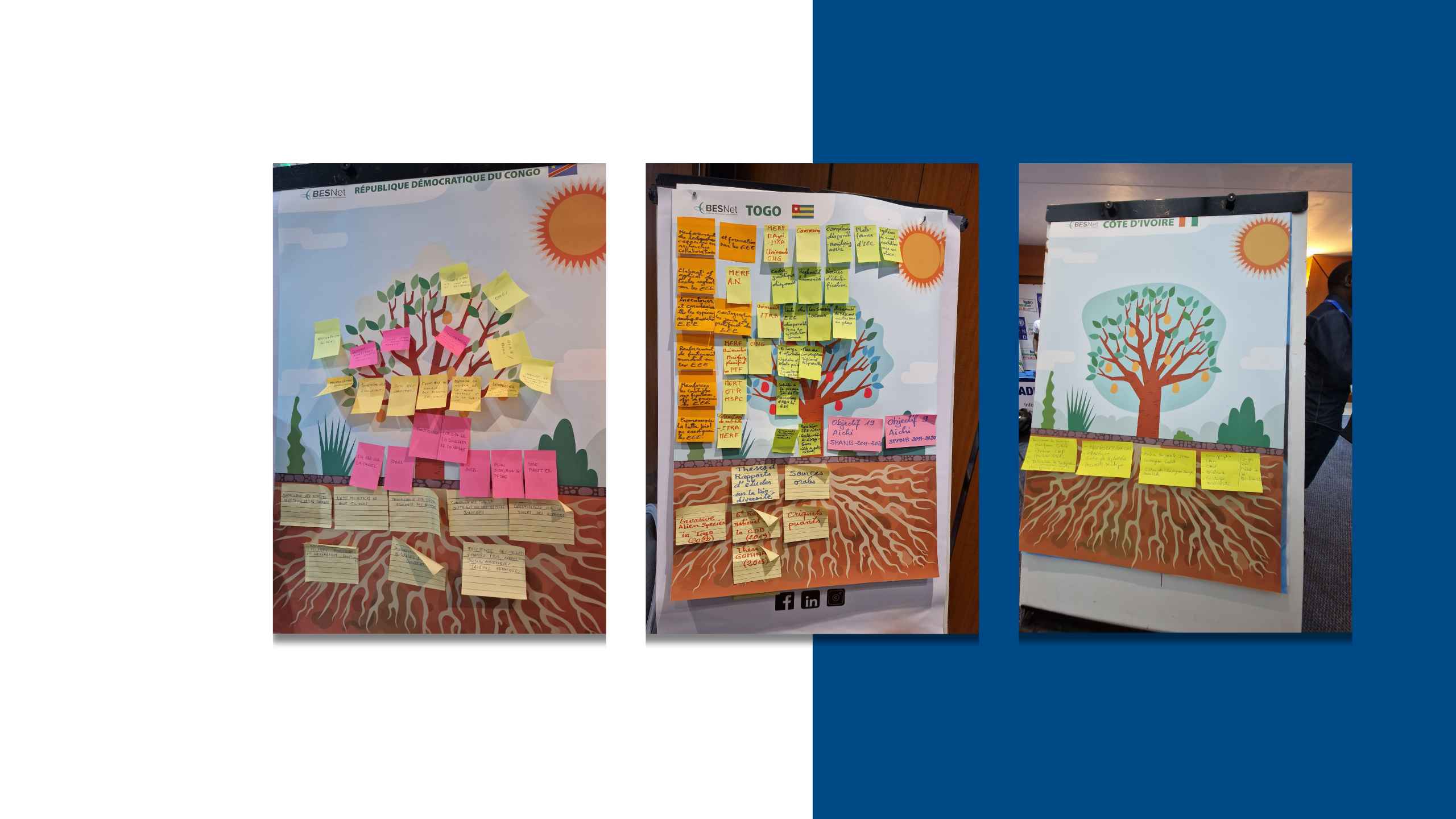
This metaphor is inspired by the concept of mycelium networks found in nature, where the roots of trees are interconnected by vast fungal networks beneath the soil, known as the “wood-wide-web”. Just as mycelium connects individual trees, allowing them to share resources and communicate for mutual survival, the “Tree of Life” in the Trialogue emphasized and nourished interconnectedness and cooperation among diverse stakeholders.
Participants began by exploring the “roots” – the foundational knowledge essential to understanding their countries’ unique biodiversity.
They then moved up the “trunk”, identifying strategic frameworks before branching out into actionable strategies.
Finally, they mapped out key stakeholders (“leaves”)...
...and envisioned the outcomes (“fruits”) of their collaborative efforts.
This metaphor is inspired by the concept of mycelium networks found in nature, where the roots of trees are interconnected by vast fungal networks beneath the soil, known as the “wood-wide-web”. Just as mycelium connects individual trees, allowing them to share resources and communicate for mutual survival, the “Tree of Life” in the Trialogue emphasized and nourished interconnectedness and cooperation among diverse stakeholders.
Participants began by exploring the “roots” – the foundational knowledge essential to understanding their countries’ unique biodiversity.
They then moved up the “trunk”, identifying strategic frameworks before branching out into actionable strategies.
Finally, they mapped out key stakeholders (“leaves”)...
...and envisioned the outcomes (“fruits”) of their collaborative efforts.
Interweaving Indigenous knowledge with scientific research
One of the key sessions was a panel discussion led by Mr. Nigel Crawhall, who facilitated an insightful dialogue between Mr. Ambroise N’Koh from Côte d’Ivoire and Mr. Appollinaire from Benin, focusing on the importance of interweaving scientific research with Indigenous knowledge in biodiversity conservation.
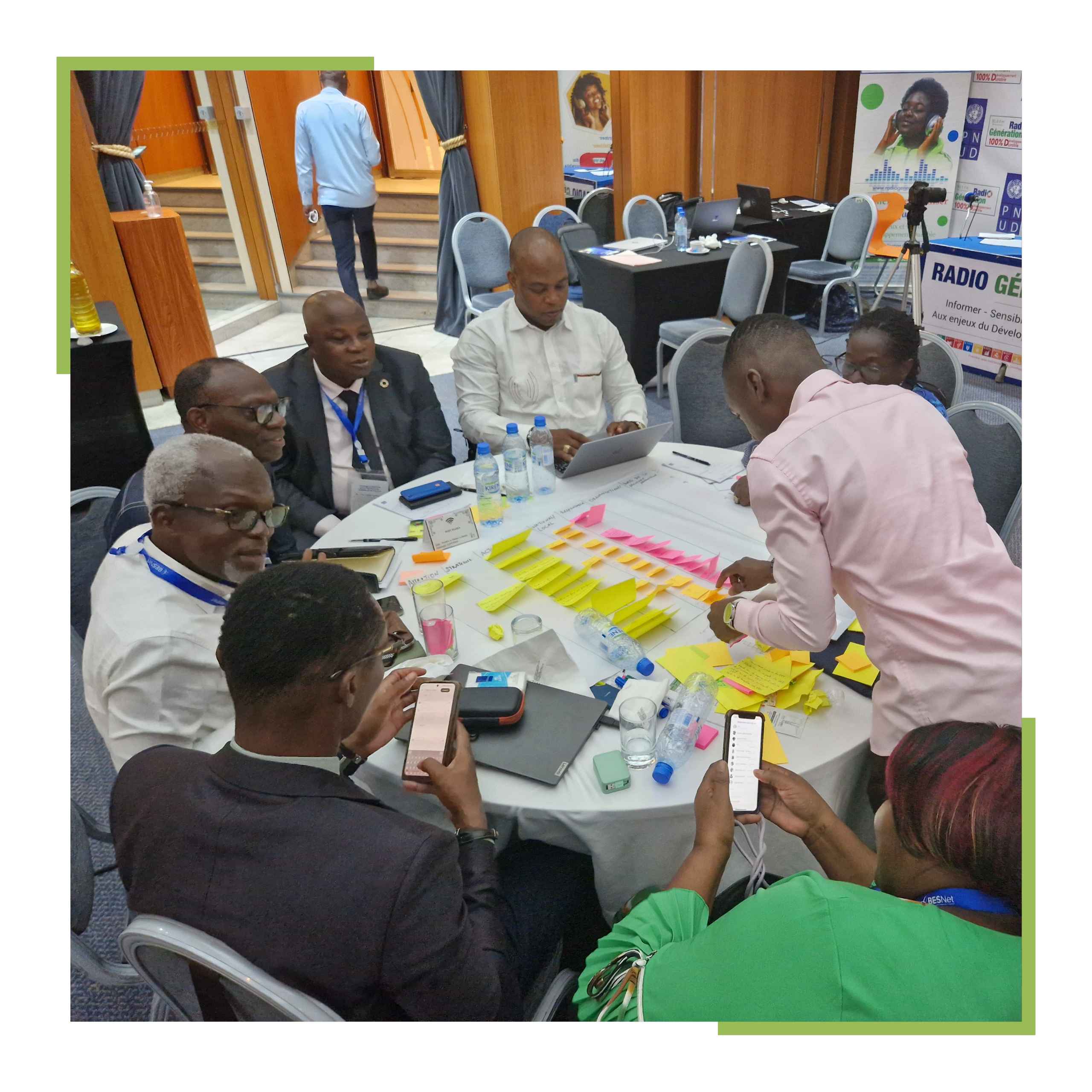
Building on this conversation, the World Café session allowed participants to discuss the key ingredients for effective science-policy interaction and the challenges of oral knowledge transmission. Insights from these small group discussions were shared in a plenary session, emphasizing the importance of fostering ongoing, respectful dialogue between scientists and practitioners, ensuring the inclusion of Indigenous Peoples and local communities and highlighting the need for clear communication, cultural sensitivity and equitable sharing of research findings to bridge the gap between scientific knowledge and traditional practices.
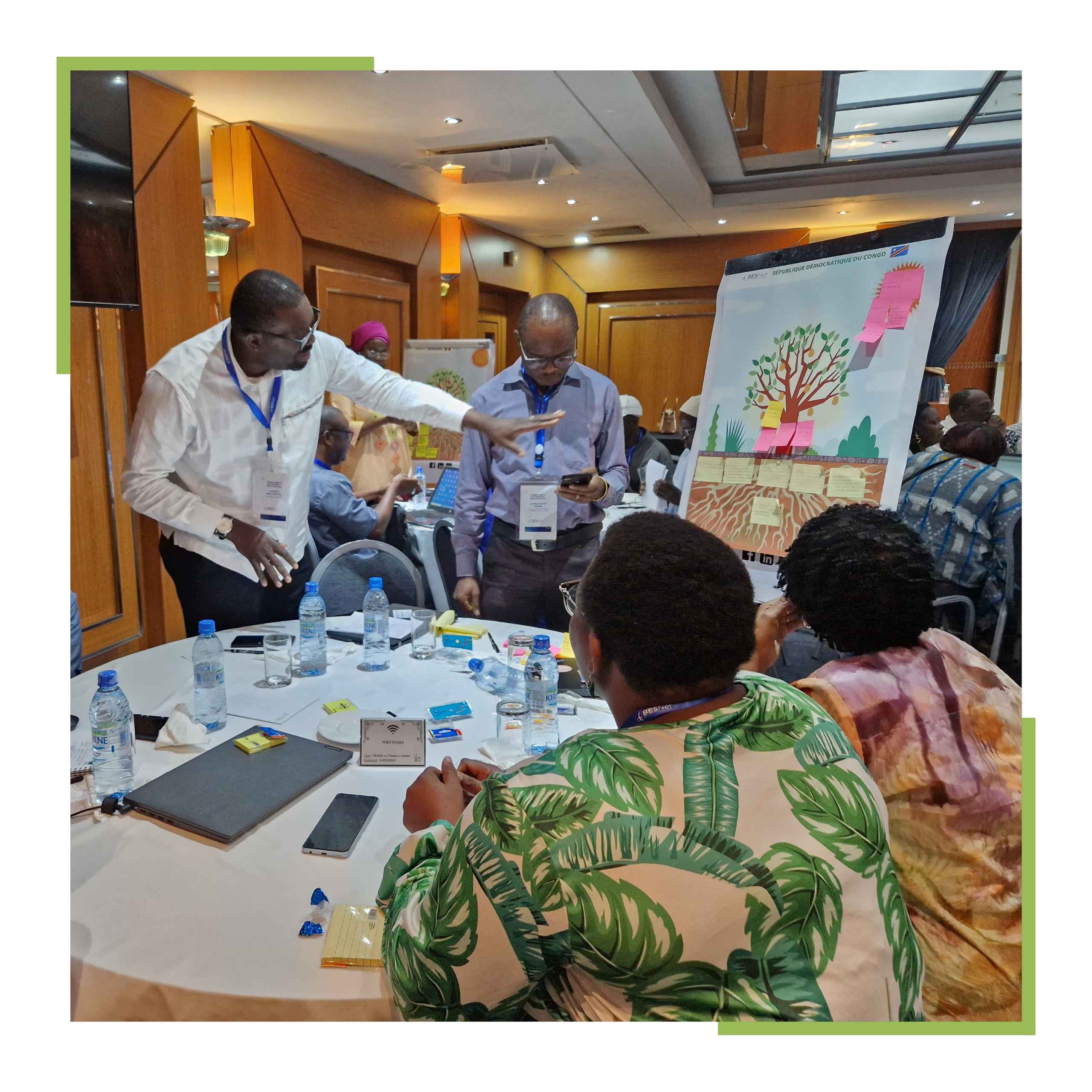
Interweaving Indigenous knowledge with scientific research

One of the key sessions was a panel discussion led by Mr. Nigel Crawhall, who facilitated an insightful dialogue between Mr. Ambroise N’Koh from Côte d’Ivoire and Mr. Appollinaire from Benin, focusing on the importance of interweaving scientific research with Indigenous knowledge in biodiversity conservation.

Building on this conversation, the World Café session allowed participants to discuss the key ingredients for effective science-policy interaction and the challenges of oral knowledge transmission. Insights from these small group discussions were shared in a plenary session, emphasizing the importance of fostering ongoing, respectful dialogue between scientists and practitioners, ensuring the inclusion of Indigenous Peoples and local communities and highlighting the need for clear communication, cultural sensitivity and equitable sharing of research findings to bridge the gap between scientific knowledge and traditional practices.
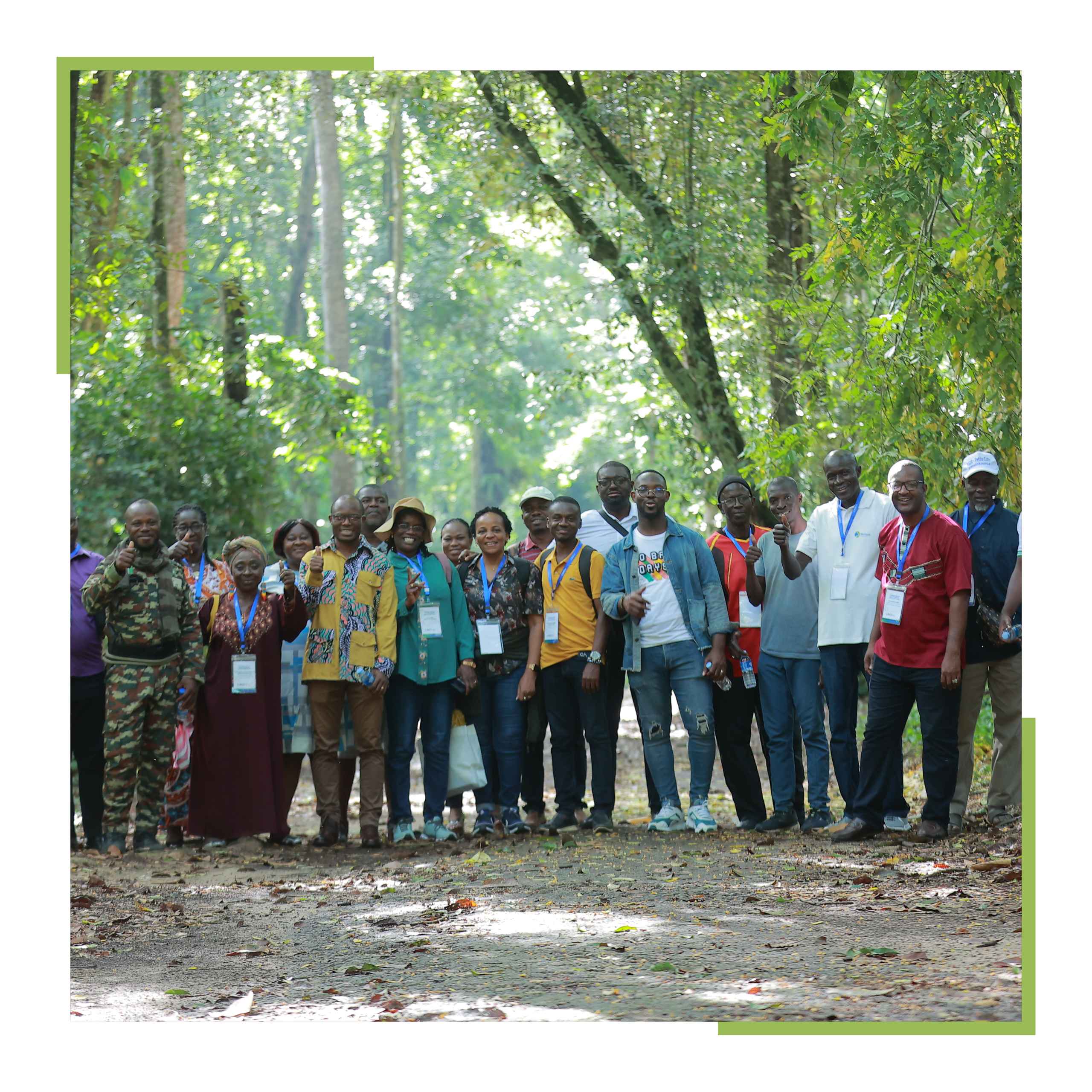
Learning through experience: Field visits and practical insights
Building on the time spent working on national actions in the conference space, field visits further enriched the discussions, with one group visiting Mr. N’Koh’s sustainable cacao plantation in Azaguié and another exploring the Banco Forest, Africa’s only urban primary tropical forest. These visits provided practical insights into local conservation efforts and challenges and sparked further conversations and insights inspired by immersive nature walks.
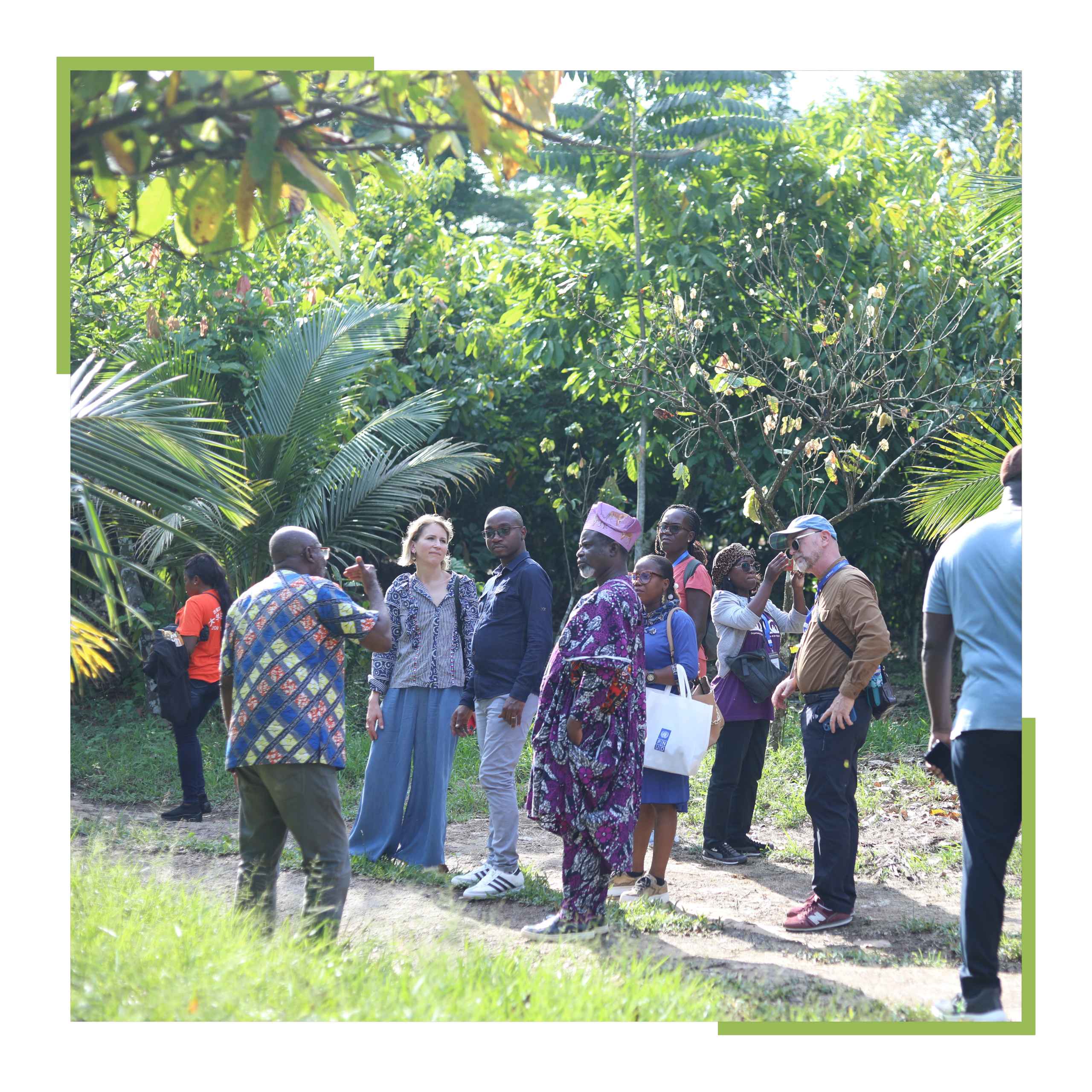
These visits provided practical insights into local conservation efforts and challenges and sparked further conversations and insights inspired by immersive nature walks.
Learning through experience: Field visits and practical insights

Building on the time spent working on national actions in the conference space, field visits further enriched the discussions, with one group visiting Mr. N’Koh’s sustainable cacao plantation in Azaguié and another exploring the Banco Forest, Africa’s only urban primary tropical forest. These visits provided practical insights into local conservation efforts and challenges and sparked further conversations and insights inspired by immersive nature walks.

These visits provided practical insights into local conservation efforts and challenges and sparked further conversations and insights inspired by immersive nature walks.
Youth as catalysts for change
Another moment that offered a valuable perspective on future opportunities was the “Innovative Youth Solutions for Conservation” session, moderated by Mr. Jean Paul Aka and Ms. Francine Afouda from UNDP Côte d’Ivoire. This session showcased contributions from four young Ivorian conservation leaders.
The participation of youth as catalysts for change, showcasing solutions from green mobility to impactful grassroots communications, was instrumental in providing new perspectives and inspiring ideas in operationalizing action plans. The youth’s perspective encouraged critical thinking and innovative solutions, demonstrating the plans’ potential to drive sustainable impact.
The youth’s perspective encouraged critical thinking and innovative solutions, demonstrating the plans’ potential to drive sustainable impact.
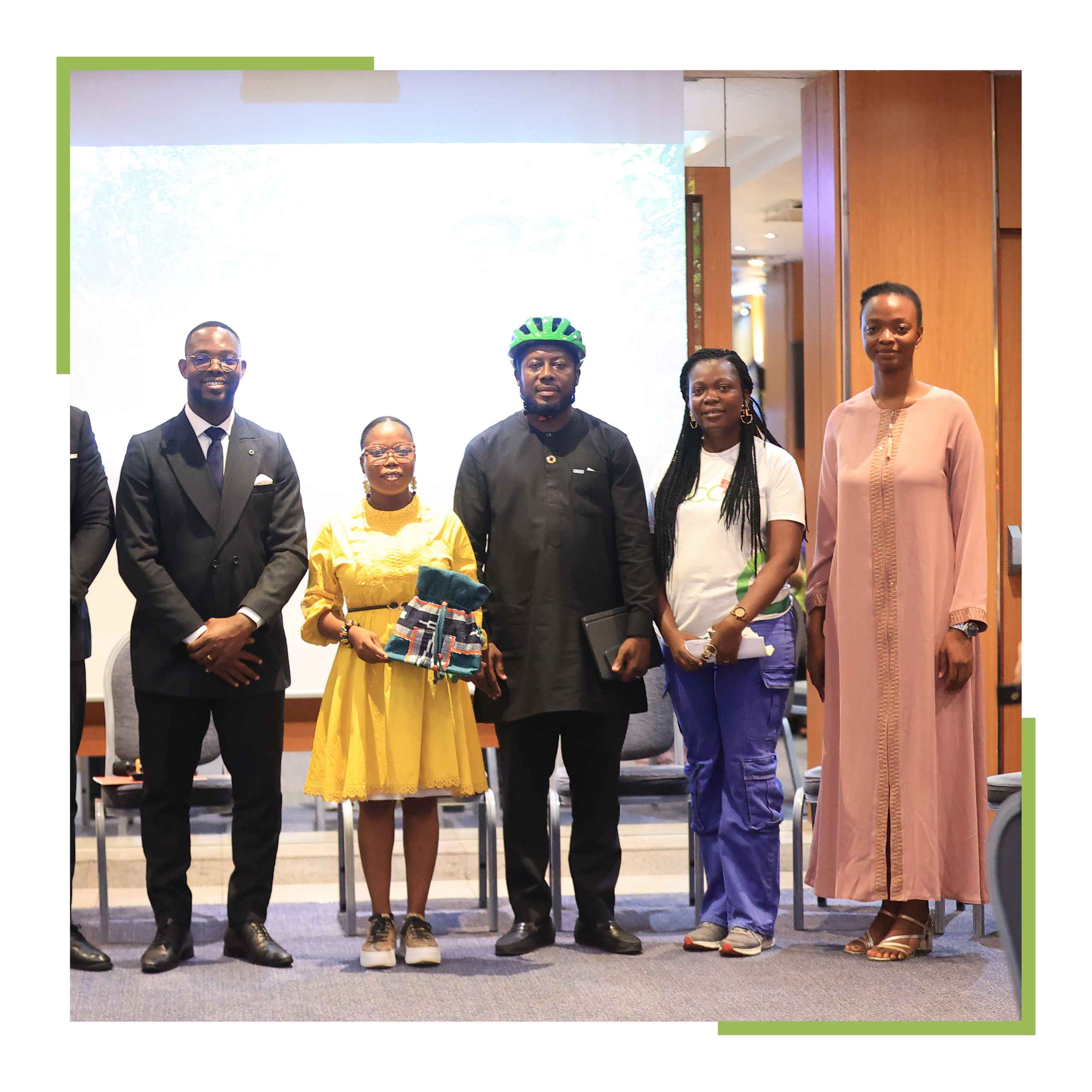
Youth as catalysts for change
Another moment that offered a valuable perspective on future opportunities was the “Innovative Youth Solutions for Conservation” session, moderated by Mr. Jean Paul Aka and Ms. Francine Afouda from UNDP Côte d’Ivoire. This session showcased contributions from four young Ivorian conservation leaders.

The participation of youth as catalysts for change, showcasing solutions from green mobility to impactful grassroots communications, was instrumental in providing new perspectives and inspiring ideas in operationalizing action plans. The youth’s perspective encouraged critical thinking and innovative solutions, demonstrating the plans’ potential to drive sustainable impact.
The youth’s perspective encouraged critical thinking and innovative solutions, demonstrating the plans’ potential to drive sustainable impact.
Collaborative action plans and a commitment to the future
Over the course of the Trialogue, participants contributed valuable inputs to the discussions, sharing examples of traditional knowledge and the latest sustainability practices that have been effectively implemented in their home countries. These contributions enriched the dialogue, setting the stage for a valuable exchange of ideas and the exploration of potential partnerships in the future. These shared experiences stressed the importance of sharing successes and lessons learned in biodiversity conservation, which strengthened the common resolve of participants to develop regionally relevant solutions.
The collaborative efforts shared during the Trialogue culminated in the development of detailed national action plans tailored to each participating country. These plans, rooted in the unique socioeconomic and ecological contexts of Benin, Côte d’Ivoire, the Democratic Republic of Congo, Gabon, Senegal and Togo, are designed to combat the spread of IAS and promote the sustainable use of wild species. Each plan emphasizes stronger national policies, enhanced regional cooperation and the inclusion of Indigenous knowledge into conservation strategies. The country-specific action plans provide a clear roadmap for achieving these goals, reflecting the collective commitment of the region to preserving its biodiversity for future generations.
Collaborative action plans and a commitment to the future
Over the course of the Trialogue, participants contributed valuable inputs to the discussions, sharing examples of traditional knowledge and the latest sustainability practices that have been effectively implemented in their home countries. These contributions enriched the dialogue, setting the stage for a valuable exchange of ideas and the exploration of potential partnerships in the future. These shared experiences stressed the importance of sharing successes and lessons learned in biodiversity conservation, which strengthened the common resolve of participants to develop regionally relevant solutions.
The collaborative efforts shared during the Trialogue culminated in the development of detailed national action plans tailored to each participating country. These plans, rooted in the unique socioeconomic and ecological contexts of Benin, Côte d’Ivoire, the Democratic Republic of Congo, Gabon, Senegal and Togo, are designed to combat the spread of IAS and promote the sustainable use of wild species. Each plan emphasizes stronger national policies, enhanced regional cooperation and the inclusion of Indigenous knowledge into conservation strategies. The country-specific action plans provide a clear roadmap for achieving these goals, reflecting the collective commitment of the region to preserving its biodiversity for future generations.
COUNTRY ACTION PLANS
BENIN
Benin’s participation in the Trialogue proved to be a significant step forward in the process of improving the management of IAS and the sustainable use of wild plant species. One of Benin’s targets is to harness both traditional and scientific knowledge in an effort against IAS. Key ideas included enhancing knowledge and practices through studies and workshops, developing a national strategy for IAS control and creating economic models around the sustainable management of wild plant species. These discussions serve as a starting point for further national deliberation, with a focus on incorporating community knowledge and fostering collaboration among various stakeholders.
The exchange of regional experiences and technical knowledge gained from IPBES assessments during the Trialogue brought significant insight into shaping these strategies, highlighting the importance of approaches that combine traditional knowledge with sustainable use. Furthermore, the focus placed on Benin’s approach to linking traditional practices with modern conservation techniques reflects the extensive discussions on this key topic during the Trialogue.
CÔTE D’IVOIRE
Côte d’Ivoire emerged from the Trialogue with a clear intention to focus on IAS. The event sparked discussions around strengthening legal and institutional frameworks for managing IAS. Participants stressed the importance of capacity-building, inventorying IAS and promoting public awareness. Proposed actions, such as establishing a monitoring mechanism and developing a coordination platform, reflect the collaborative spirit of the Trialogue. These ideas provide a foundation for continued dialogue at the national level, with the goal of refining and implementing these strategies in the future.
A topic that stood out during the Trialogue was the recognition of the need for community involvement in IAS management. Inspired by the discussions, the Côte d’Ivoire team has suggested including community perceptions in its national strategy, ensuring that local voices can be heard and considered in conservation efforts. The event also highlighted the value of collaboration and partnerships, leading to a focus on developing educational programmes and raising national awareness about IAS management. These strategies reflect the broader regional cooperation and knowledge exchange facilitated by the Trialogue, which provided Côte d’Ivoire with a stronger foundation for its conservation initiatives.
GABON
Gabon’s ambitions are firmly rooted in increasing knowledge of IAS and the sustainable use of wild species, as well as developing a legal framework to address IAS. Discussions during the Trialogue highlighted the need for comprehensive inventories, training for taxonomists and the involvement of local communities. The proposal to create a national science-policy platform underscores the importance of cross-sector collaboration.
Another key focus in Gabon’s strategy would be the revision of its National Biodiversity Strategy and Action Plan to include effective IAS management. This revision, aligned with global biodiversity targets, is aimed at setting up a more comprehensive and responsive legal framework. The discussions during the Trialogue emphasized the necessity of integrating the latest scientific data into national strategies to address emerging challenges. The event’s focus on collaboration and regional cooperation also inspired Gabon to support regional collaboration on IAS in the hopes of enhancing cross-border conservation efforts.
These initial ideas reflect the collective insights from the Trialogue and will require further national consultation and refinement.
DEMOCRATIC REPUBLIC OF CONGO (DRC)
The main Trialogue takeaways for the DRC team motivated them to formulate ambitions to strengthen legal and institutional frameworks, improve research infrastructure and enhance knowledge generation on IAS and wild species. Key suggestions included
strengthening networks, improving knowledge and revising legal frameworks. The emphasis was on mobilizing stakeholders and enhancing research infrastructure.
Through the collaborative reflection on the importance of research and data-sharing in effective biodiversity management, the Trialogue discussions provided further insights into the ongoing work in the DRC. The country plans to bolster its research infrastructure, enabling more robust and country-relevant studies that will inform both policy and practice. Additionally, the DRC aims to create opportunities for engagement among stakeholders, fostering a collaborative environment that was strongly advocated during the Trialogue. The insights gained from regional exchanges and IPBES assessments have ensured that the DRC’s strategies are also aligned with broader regional and global goals.
SENEGAL
Senegal’s representatives in the Trialogue explored strategies for restoring ecosystems damaged by IAS and sustainably managing marine resources, as well as strengthening shared governance and surveillance of natural resources. The country’s strategy advocates both mechanical and biological control methods for IAS, reflecting a comprehensive and practical approach to managing these threats. The discussions also highlighted the importance of local community involvement and knowledge-sharing.
A significant influence on Senegal’s strategy was the Trialogue’s emphasis on sustainable resource management and stakeholder collaboration. The inclusion of zoning and the establishment of biological rest zones in fisheries is a reflection of Senegal’s deep understanding of its own marine ecosystems and the challenges they face. Additionally, the creation of artificial reefs and the implementation of pollution control measures are important steps tailored to Senegal’s ecosystems. These strategies are driven by a vision of the long-term sustainability of fisheries, which are vital to the country’s economy and the livelihoods of its coastal communities. These proposed actions, while still in the early stages, reflect the collaborative energy of the Trialogue and will serve as a basis for further national discussions.
TOGO
Togo’s participation in the Trialogue reinforced its ambitions to reduce the spread of IAS by 2030 and to promote the sustainable use of wild species. This strategy includes developing and implementing regulatory tools, promoting biological control methods and enhancing regional and international cooperation. The Trialogue’s discussions on capacity-building and the importance of engaging various stakeholders have shaped Togo’s approach and inspired the country team to seek out solutions to involve local communities in conservation efforts.
Togo also aims to generate a centralized database on IAS, reflecting the Trialogue’s influence in encouraging better data management and information sharing, supporting the creation of specialized French language materials. Additionally, the country plans to promote the sustainable use of wild species through educational programmes and the development of economic models tailored to benefit local communities.
The Trialogue concluded with palpable energy from the participants and a strong commitment to implement the strategies uncovered during the workshop. They developed national action plans that concentrate on creating stronger national policies, better regional cooperation and more effectively including Indigenous knowledge in formal conservation efforts. The consensus was clear: the region must move forward with a united, coordinated approach to safeguard its biodiversity.
COUNTRY ACTION PLANS
BENIN
Benin’s participation in the Trialogue proved to be a significant step forward in the process of improving the management of IAS and the sustainable use of wild plant species. One of Benin’s targets is to harness both traditional and scientific knowledge in an effort against IAS. Key ideas included enhancing knowledge and practices through studies and workshops, developing a national strategy for IAS control and creating economic models around the sustainable management of wild plant species. These discussions serve as a starting point for further national deliberation, with a focus on incorporating community knowledge and fostering collaboration among various stakeholders.
The exchange of regional experiences and technical knowledge gained from IPBES assessments during the Trialogue brought significant insight into shaping these strategies, highlighting the importance of approaches that combine traditional knowledge with sustainable use. Furthermore, the focus placed on Benin’s approach to linking traditional practices with modern conservation techniques reflects the extensive discussions on this key topic during the Trialogue.
CÔTE D’IVOIRE
Côte d’Ivoire emerged from the Trialogue with a clear intention to focus on IAS. The event sparked discussions around strengthening legal and institutional frameworks for managing IAS. Participants stressed the importance of capacity-building, inventorying IAS and promoting public awareness. Proposed actions, such as establishing a monitoring mechanism and developing a coordination platform, reflect the collaborative spirit of the Trialogue. These ideas provide a foundation for continued dialogue at the national level, with the goal of refining and implementing these strategies in the future.
A topic that stood out during the Trialogue was the recognition of the need for community involvement in IAS management. Inspired by the discussions, the Côte d’Ivoire team has suggested including community perceptions in its national strategy, ensuring that local voices can be heard and considered in conservation efforts. The event also highlighted the value of collaboration and partnerships, leading to a focus on developing educational programmes and raising national awareness about IAS management. These strategies reflect the broader regional cooperation and knowledge exchange facilitated by the Trialogue, which provided Côte d’Ivoire with a stronger foundation for its conservation initiatives.
GABON
Gabon’s ambitions are firmly rooted in increasing knowledge of IAS and the sustainable use of wild species, as well as developing a legal framework to address IAS. Discussions during the Trialogue highlighted the need for comprehensive inventories, training for taxonomists and the involvement of local communities. The proposal to create a national science-policy platform underscores the importance of cross-sector collaboration.
Another key focus in Gabon’s strategy would be the revision of its National Biodiversity Strategy and Action Plan to include effective IAS management. This revision, aligned with global biodiversity targets, is aimed at setting up a more comprehensive and responsive legal framework. The discussions during the Trialogue emphasized the necessity of integrating the latest scientific data into national strategies to address emerging challenges. The event’s focus on collaboration and regional cooperation also inspired Gabon to support regional collaboration on IAS in the hopes of enhancing cross-border conservation efforts.
These initial ideas reflect the collective insights from the Trialogue and will require further national consultation and refinement.
DEMOCRATIC REPUBLIC OF CONGO (DRC)
The main Trialogue takeaways for the DRC team motivated them to formulate ambitions to strengthen legal and institutional frameworks, improve research infrastructure and enhance knowledge generation on IAS and wild species. Key suggestions included
strengthening networks, improving knowledge and revising legal frameworks. The emphasis was on mobilizing stakeholders and enhancing research infrastructure.
Through the collaborative reflection on the importance of research and data-sharing in effective biodiversity management, the Trialogue discussions provided further insights into the ongoing work in the DRC. The country plans to bolster its research infrastructure, enabling more robust and country-relevant studies that will inform both policy and practice. Additionally, the DRC aims to create opportunities for engagement among stakeholders, fostering a collaborative environment that was strongly advocated during the Trialogue. The insights gained from regional exchanges and IPBES assessments have ensured that the DRC’s strategies are also aligned with broader regional and global goals.
SENEGAL
Senegal’s representatives in the Trialogue explored strategies for restoring ecosystems damaged by IAS and sustainably managing marine resources, as well as strengthening shared governance and surveillance of natural resources. The country’s strategy advocates both mechanical and biological control methods for IAS, reflecting a comprehensive and practical approach to managing these threats. The discussions also highlighted the importance of local community involvement and knowledge-sharing.
A significant influence on Senegal’s strategy was the Trialogue’s emphasis on sustainable resource management and stakeholder collaboration. The inclusion of zoning and the establishment of biological rest zones in fisheries is a reflection of Senegal’s deep understanding of its own marine ecosystems and the challenges they face. Additionally, the creation of artificial reefs and the implementation of pollution control measures are important steps tailored to Senegal’s ecosystems. These strategies are driven by a vision of the long-term sustainability of fisheries, which are vital to the country’s economy and the livelihoods of its coastal communities. These proposed actions, while still in the early stages, reflect the collaborative energy of the Trialogue and will serve as a basis for further national discussions.
TOGO
Togo’s participation in the Trialogue reinforced its ambitions to reduce the spread of IAS by 2030 and to promote the sustainable use of wild species. This strategy includes developing and implementing regulatory tools, promoting biological control methods and enhancing regional and international cooperation. The Trialogue’s discussions on capacity-building and the importance of engaging various stakeholders have shaped Togo’s approach and inspired the country team to seek out solutions to involve local communities in conservation efforts.
Togo also aims to generate a centralized database on IAS, reflecting the Trialogue’s influence in encouraging better data management and information sharing, supporting the creation of specialized French language materials. Additionally, the country plans to promote the sustainable use of wild species through educational programmes and the development of economic models tailored to benefit local communities.
The Trialogue concluded with palpable energy from the participants and a strong commitment to implement the strategies uncovered during the workshop. They developed national action plans that concentrate on creating stronger national policies, better regional cooperation and more effectively including Indigenous knowledge in formal conservation efforts. The consensus was clear: the region must move forward with a united, coordinated approach to safeguard its biodiversity.
The Trialogue concluded with palpable energy from the participants and a strong commitment to implement the strategies uncovered during the workshop. They developed national action plans that concentrate on creating stronger national policies, better regional cooperation and more effectively including Indigenous knowledge in formal conservation efforts. The consensus was clear: the region must move forward with a united, coordinated approach to safeguard its biodiversity.


